
- •Plates
- •Maps
- •Notes on contributors
- •Acknowledgements
- •Note on the text
- •Abbreviations in notes and bibliography
- •archive collections and volumes of laws
- •journals
- •other abbreviations
- •Chronology
- •Introduction
- •1 Russia as empire and periphery
- •2 Managing empire: tsarist nationalities policy
- •Nationalities before Peter
- •Ukraine under Catherine
- •Partitions of Poland
- •Jewish question
- •Nicholas I
- •Expansion in the Caucasus and Central Asia
- •Baltic Provinces and Finland
- •Central Asia and Muslims
- •The Caucasus
- •The 1905 Revolution and after
- •First World War
- •3 Geographies of imperial identity
- •Introduction
- •Russia as a European empire
- •Russia as an anti-European empire
- •Russia as a national empire
- •4 Russian culture in the eighteenth century
- •Russia and the West: ‘catching up’
- •The reign of Peter I (1682–1725)
- •From Catherine I to Peter III: 1725–1762
- •Catherine the Great: 1762–1796
- •Conclusion
- •5 Russian culture: 1801–1917
- •Russian culture comes of age
- •Russian culture under Alexander II (1855–1881)
- •Russian culture under Alexander III (1881–1894)
- •Russian Culture Under Nicholas II (1894–1917)
- •6 Russian political thought, 1700–1917
- •From Muscovy to the Early Enlightenment: the problem of resistance to ungodly rulers
- •Enlightenment and Counter-Enlightenment: civic virtue, absolutism and liberty
- •In the French Revolution’s shadow: conservatism, constitutionalism and republicanism
- •National identity, representative government and the market
- •7 Russia and the legacy of 1812
- •Russian culture and society before 1812
- •The 1812 war and Russian nationalism
- •The war and Russian political culture
- •1812 and the problem of social stability
- •The legacy of the war
- •8 Ukrainians and Poles
- •9 The Jews
- •The pre-partition period
- •Early encounters
- •Into the whirlwind
- •10 Islam in the Russian Empire
- •11 The elites
- •12 The groups between: raznochintsy, intelligentsia, professionals
- •13 Nizhnii Novgorod in the nineteenth century: portrait of a city
- •Topography
- •Rhythms
- •People
- •Administration and institutions
- •Civic and cultural life
- •14 Russian Orthodoxy: Church, people and politics in Imperial Russia
- •Institutionalising Orthodoxy
- •The clergy
- •Episcopate
- •Monastic (‘black’) clergy
- •Secular (‘white’) clergy
- •Believers
- •Worldly teachings: from ‘reciprocity’ to social Orthodoxy
- •Orthodoxy in the Russian prerevolution
- •15 Women, the family and public life
- •The Petrine revolution and its consequences
- •Outside the circle of privilege
- •The reform era
- •1905 and after
- •16 Gender and the legal order in Imperial Russia
- •Noblewomen, inheritance, and the control of property
- •Gender conventions and the law of property in the eighteenth century
- •Transactions between husband and wife
- •Unlimited obedience: women and family law
- •Gender in criminal law
- •Conclusion
- •17 Law, the judicial system and the legal profession
- •Reform
- •The reformed judicial system and the peasants
- •Justice and empire
- •The reform of the reform
- •The justice system as a substitute constitution
- •18 Peasants and agriculture
- •19 The Russian economy and banking system
- •Introduction
- •The Catherine system
- •The era of Great Reforms
- •The policy of forced industrial development
- •Financial and commercial policy at the beginning of the twentieth century
- •Conclusion
- •20 Central government
- •Introduction
- •Subordinate organs (podchinennye organy)
- •Ministerial government
- •Supreme organs (Verkhovnye organy)
- •Autocrat and autocracy
- •Post 1905
- •Modernisation from above
- •21 Provincial and local government
- •Introduction
- •The Centre and the provinces
- •The operation of local administration
- •Corporate institutions
- •‘All-estate’ institutions
- •A local bureaucracy?
- •Epilogue
- •23 Peter the Great and the Northern War
- •24 Russian foreign policy, 1725–1815
- •Era of palace revolutions
- •Catherine II
- •The metamorphosis of the 1790s
- •Alexander I
- •Conclusion
- •25 The imperial army
- •Understanding Russian military success, 1700–1825
- •Accounting for Russian military failure, 1854–1917
- •Conclusion: the World War
- •26 Russian foreign policy: 1815–1917
- •From Holy Alliance to Crimean isolation
- •Recueillement
- •Decline and fall
- •The character of tsarist diplomacy
- •27 The navy in 1900: imperialism, technology and class war
- •28 The reign of Alexander II: a watershed?
- •The reasons and preconditions for the abolition of serfdom
- •The programme and conception of the reformers, the legislation of 19 February 1861 and the other Great Reforms
- •Legislation and life: the fate of the Great Reforms and the fate of the reformers
- •29 Russian workers and revolution
- •30 Police and revolutionaries
- •31 War and revolution, 1914–1917
- •The proximate causes of February 1917
- •Relative economic backwardness as a cause?
- •The Petrograd garrison and its mutiny
- •The army command and the February Revolution
- •The formation of the Progressive Bloc and the Provisional Government
- •Bibliography
Bibliography
1. primary sources: collected do cument s, official histories, antholo g ies and
directories
Adres-kalendar’. Obshchaia rospis’ nachal’stvuiushchikh i prochikh dolzhnostnykh lits, 135 vols. (St Petersburg: 1765–96; 1802–1916).
Adrianov, S. A., Ministerstvo vnutrennikh del. Istoricheskii ocherk 1 802–1 902 (St Petersburg,
1901).
Afanasiev, A., Russian Fairy Tales Collected by Aleksandr Afanasiev (New York: Pantheon,
1945).
Arkhiv gosudarstvennogo soveta, 5 vols. (St Petersburg: Tip. II otd., 1869–1904).
Arkhiv vneshnei politiki Rossisskoi imperii (Minneapolis: East View Publications, 1995). Bartenev, P. (ed.), Arkhiv kniaz’ia Vorontsova, 40 vols. (Moscow, 1870–95).
Bezotosnyi, V. M. (ed.), Otechestvennaia voina 1 81 2 goda. Entsiklopediia (Moscow: Rosspen,
2004).
Bil’basov, V. A. (ed.), Arkhiv grafov Mordvinovykh, 10 vols. (St Petersburg, 1901–3).
Edie, J., Scanlan, J. P., and Zeldin M.-B. (eds.) Russian Philosophy, 2 vols. (Chicago: Quadrangle Books, 1965).
Entsiklopedicheskii slovar’. Brokgauz i Efron, 43 vols. (St Petersburg: Brokgauz and Efron,
1890–1906).
Fondy Rossiiskogo gosudarstvennogo voenno-istoricheskogo arkhiva. Kratkii spravochnik (Moscow: Rosspen, 2001).
Golubstov, S. A. (ed.), Pugachevshchina, 3 vols. (Moscow: Tsentrarkhiv, 1926–31).
Gosudarstvennaia duma. Stenograficheskie otchoty, 1 906–1 91 6, 4 sessions (St Petersburg,
1906–17).
Gosudarstvennyi sovet. Stenograficheskie otchoty, 1 906–1 6, 4 sessions (St Petersburg, 1906–16). Istoriia Pravitel’stvuiushchego Senata za dvesti let. 1 7 1 1 –1 91 1 , 5 vols. (St Petersburg: Senatskaia
tip. 1911).
Ivanov, I. S. (ed.), Ocherki istorii Ministerstva Inostrannykh del Rossii, 3 vols. (Moscow: OLMA Press, 2002).
Katorga i ssylka, 115 vols. (Moscow: Obshchestvo byvshikh politicheskikh katorzhan,
1921–35).
670
Bibliography
Kelly, C. (ed. and tr.), An Anthology of Russian Women’s Writing, 1 7 7 7 –1 992 (Oxford: Oxford University Press, 1994).
Korkunov, N. M., Russkoe gosudarstvennoe pravo, 2 vols. (St Petersburg: Tsinzerling, 1909). Krasnyi Arkhiv, 106 vols. (Moscow: Tsentrarkhiv, 1922–41).
Leatherbarrow, W., and Offord, D. (eds.), A Documentary History of Russian Thought from the Enlightenment to Marxism (Ann Arbor: Ardis, 1987).
Martens, F., Sobranie traktatov i konventsii, zakliuchennikh Rossiei i inostrannymi derzhavami,
15 vols. (St Petersburg: Tip. ministerstva put’ei soobshchenniia, 1874–1909).
Mezhdunarodnye otnosheniia v epokhu imperializma. Dokumenty iz arkhivov tsarskogo i vremennogo pravitel’stv, 1 87 8–1 91 7 , 2nd series, 6 vols. (Moscow and Leningrad: Gospolitizdat, 1938–40).
Mezhdunarodnye otnosheniia v epokhu imperializma. Dokumenty iz arkhivov tsarskogo i vremennogo pravitel’stv, 1 87 8–1 91 7 , 3rd series, 10 vols. (Moscow and Leningrad: Gos. sotsial’no-ekonomicheskoe izd., 1931–8).
Ministerstvo finansov. 1 802–1 902, 2 vols. (St Petersburg: Expeditsiia zagotovleniia gos. bumag,
1902).
Ministerstvo iustitsii za sto let. 1 802–1 902. Istoricheskii ocherk (St Petersburg: Senatskaia tip.,
1902)
Mironenko, S. V., and Freeze, G. (eds.), Gosudarstvennyi arkhiv Rossiiskoi Federatsii. Putevoditel’. Fondy Gosudarstvennogo arkhiva Rossiiskoi Federatsii po istorii Rossii XIX–nachala XX vv., vol. I (Moscow: Blagovest, 1994).
Padenie tsarskogo rezhima. Stenograficheskie otchoty doprosov i pokazanii, 7 vols. (Leningrad: Gos. izd., 1925).
Pervaia vseobshchaia perepis’ naseleniia Rossiiskoi imperii 1 897 g. (St Petersburg, 1897–1905).
Pis’ma i bumagi Imperatora Petra Velikogo, 11 vols.: vols. I–VII (St Petersburg: Gos. tip., 1887– 1918); vols. VIII–XI (Moscow: AN SSSR, 1948–64).
Pol’noe sobranie zakonov Rossiiskoi imperii, 1st series, 45 vols. (St Petersburg: Tip. II otd., 1830). Pol’noe sobranie zakonov Rossiiskoi imperii, 2nd series, 55 vols. (St Petersburg: Tip. II otd.,
1830–84).
Pol’noe sobranie zakonov, 3rd series, 33 vols. (St Petersburg: Senatskaia tip., 1885–1917).
Pravoslavnaia entsiklopediia: Russkaia pravoslavnaia tserkov’, in progress, 7 vols. to date (Moscow: Tserkovno-nauchnyi tsentr ‘Pravoslavnaia entsiklopediia’, 1998–).
Prilozheniia k trudam redaktsionnykh komissii dlia sostavleniia polozhenii o krest’ianakh, vykhodiashchikh iz krepostnoi zavisimosti, 6 vols. (St Petersburg, 1860).
Pypin, A. (ed.), Sochineniia (Ekateriny II), 12 vols. (St Petersburg, 1901).
Rozhdestvenskii, S. V., Istoricheskii obzor deiatel’nosti ministerstva narodnogo prosveshcheniia.
1 802–1 902 (St Petersburg: Izd. ministerstva narodnogo prosveshcheniia, 1902).
Russian State Historical Archives: St Petersburg. Annotated Register (St Petersburg: Russian-Baltic Information Center – Blitz, 1994).
Russkaia Starina, 175 vols. (St Petersburg: various publishers, 1870–1918). Russkii Arkhiv (Moscow: Izd. P. Barteneva, 1863–1917).
Sbornik Imperatortskogo Russkogo istoricheskogo obshchestva, 148 vols. (St Petersburg: Tip. M. M. Stasiulevicha, 1867–1916).
Shilov, D., Gosudarstvennye deiateli Rossiiskoi imperii. 1 802–1 91 7 (St Petersburg: Dmitrii Bulanin, 2001).
671
Bibliography
Spisok grazhdanskim chinam pervykh chetyrekh klassov po starshinstvu, 1 841 –1 85 8, 24 vols. (St Petersburg: Senatskaia tip., 1841–58).
Spisok grazhdanskim chinam pervykh chetyrekh klassov, 1 87 6–1 91 6, 80 vols. (St Petersburg: Senatskaia tip., 1876–1916).
Stoletie voennogo ministerstva. 1 802–1 902, 13 vols. (St Petersburg: various publishers, 1902–14). Svod zakonov Rossiiskoi imperii, 15 vols. (St Petersburg: Tip. II otd., 1832).
Trudy Vol’nogo Ekonomicheskogo Obshchestva k pooshchreniiu v Rossii zemledeliia i domostroitel’stva, 280 vols. (St Petersburg, 1765–1915).
Ustav dukhovnykh konsistorii (St Petersburg, 1841).
Vernadsky, G. et al (eds.), A Source Book for Russian History from Ancient Times to 1 91 7 , 3 vols. (New Haven: Yale University Press, 1972).
Vneshnaia politika Rossii XIX i nachala XX veka. Dokumenty rossiiskogo ministerstva inostrannykh del, 1 801 –1 81 5 , 1st series, 8 vols. (Moscow and Leningrad: Gospolitizdat, 1960–72).
Vneshnaia politika Rossii XIX i XX veka. Dokumenty rossiiskogo ministerstva inostrannykh del,
1 81 5 –1 83 0, 2nd series, 7 vols. (Moscow and Leningrad: Gospolitizdat, 1974–76). Zaionchkovskii, P. (ed.), Istoriia dorevoliutsionnoi Rossii v dnevnikakh i vospominaniiakh, 19
vols. (Moscow: Kniga, 1976–89).
Spravochniki po istorii dorevoliutsionnoi Rossii. Bibliograficheskii ukazatel’, 2nd edn (Moscow: Kniga, 1978).
2. g ener al histories: reig ns and rulers: g overnment
Alexander, J. T., Catherine the Great: Life and Legend (New York: Oxford University Press,
1989).
Ananich, B. V., and Ganelin, R. Sh., Sergei Iulevich Vitte i ego vremia (St Petersburg: Dmitrii Bulanin, 1999).
Ananich, B. V., Ganelin, R. Sh., and Paneiakh V. M. (eds.), Vlast’ i reformy: ot samoderzhavnoi k Sovetskoi Rossii (St Petersburg: Dmitrii Bulanin, 1996).
Anisimov, E. V., Empress Elizabeth: Her Reign and Her Russia, trans. J. T. Alexander (Gulf Breeze: Academic International Press, 1995).
Vremia petrovskikh reform (Leningrad: Lenizdat, 1989).
Bil’basov, V. A., Istoriia Ekateriny Vtoroi, 3 vols. (Berlin: Gottgeiner, 1896–1900). Bogdanovich, M. I., Istoriia tsarstvovaniia Imperatora Aleksandra I i Rossiia v ego vremiia, 6 vols.
(St Petersburg: Tip. F. Sushchinskogo, 1869).
Bogoslavskii, M. M., Petr I: Materialy dlia biografii, 5 vols. (Moscow: 1940–8). Bokhanov, A., Imperator Aleksandr III (Moscow: Russkoe slovo, 1998).
Bushkovitch, P., Peter the Great: The Struggle for Power 1 67 1 –1 7 25 (Cambridge: Cambridge University Press, 2001).
Byrnes, R., Pobedonostsev: His Life and Thought (Bloomington: Indiana University Press,
1968).
Cherniavsky, M., Tsar and People: Studies in Russian Myths (New Haven: Yale University Press,
1961).
Crisp, O., and Edmondson, L. (eds.), Civil Rights in Imperial Russia (Oxford: Oxford University Press, 1989).
672
Bibliography
Diakin, V. S., Burzhuaziia, dvorianstvo i tsarizm v 1 91 1 –1 91 4gg: razlozhenie tret’eiun’skoi sistemy
(Leningrad: Nauka, 1988).
Dixon, S., Catherine the Great (London: Longman, 2001). Dzhanshiev, G., Epokha velikikh reform (Moscow: Tip. Rassvet, 1896). Eidel’man, N. Ya. ‘Revoliutsiia sverkhu’ v Rossii (Moscow: 1989).
Eklof, B., Bushnell, J., and Zakharova, L. (eds.), Russia’s Great Reforms 1 85 5 –1 881 (Bloomington: Indiana University Press, 1994).
Emmons, T., The Formation of Political Parties and the First National Elections in Russia
(Cambridge, Mass.: Harvard University Press, 1983).
Emmons, T., and Vucinich, W. (eds.), The Zemstvo in Russia: An Experiment in Local SelfGovernment (New York: Cambridge University Press, 1982).
Field, D., Rebels in the Name of the Tsar (Boston: Houghton Mifflin, 1976).
The End of Serfdom: Nobility and Bureaucracy in Russia, 1 85 5 –1 861 (Cambridge, Mass.: Harvard University Press, 1976).
Freeze, G., ‘The Soslovie (Estate) Paradigm in Russian Social History’, AHR 91 (1986). Galai, S., The Liberation Movement in Russia, 1 900–1 905 (Cambridge: Cambridge University
Press, 1973).
Gershenzon, M. O. (ed.), Epokha Nikolaia (Moscow: Obozrenie, 1910).
Haimson, L., ‘The Problem of Social Stability in Urban Russia, 1905–1917’, SR 23, 4 (1964):
619–42 and 24, 1 (1965): 1–22.
(ed.), The Politics of Rural Russia (Bloomington: Indiana University Press, 1979).
Hamm, M. (ed.), The City in Late Imperial Russia (Bloomington: Indiana University Press,
1986).
Hartley, J., Alexander I (Harlow: Longman, 1994).
A Social History of the Russian Empire (London: Longman, 1999).
Hosking, G., The Russian Constitutional Experiment: Government and Duma, 1 907 –1 91 4
(Cambridge: Cambridge University Press, 1973).
Russia: People and Empire, 1 5 5 2–1 91 7 (Cambridge, Mass.: Harvard University Press, 1997). Hughes, L., Russia in the Age of Peter the Great (New Haven: Yale University Press, 1998).
(ed.), Peter the Great and the West: New Perspectives (Basingstoke: Palgrave, 2000). Kassow, S., Students, Professors and the State in Tsarist Russia (Berkeley: California University
Press, 1989).
Klochkov, M., Ocherki pravitel’stvennoi deiatel’nosti vremeni Pavla i (Petrograd: Senatskaia tip.,
1916).
LeDonne, J., Ruling Russia: Politics and Administration in the Age of Absolutism, 1 7 62–1 7 96
(Princeton: Princeton University Press, 1984).
Absolutism and the Ruling Class: The Formation of the Russian Political Order, 1 7 00–1 825 (New York: Oxford University Press, 1991).
Leonard, C., Reform and Regicide: The Reign of Peter III of Russia (Bloomington: Indiana University Press, 1992).
Lieven, D., Nicholas II: Emperor of all the Russias (London: John Murray, 1993).
Lincoln, W. B., Nicholas I: Emperor and Autocrat of all the Russias (Bloomington: Indiana University Press, 1978).
Lindenmeyr, A., Poverty is not a Vice: Charity, Society and the State in Imperial Russia (Princeton: Princeton University Press, 1996).
673
Bibliography
Litvak, B., Perevorot 1 861 goda v Rossii: pochemu ne realizovalas’ reformatorskaia al’ternativa
(Moscow: Izd. politicheskoi literatury, 1991).
Macey, D., Government and Peasant in Russia, 1 861 –1 91 7 (DeKalb: Northern Illinois University Press, 1987).
McGrew, R. E., Paul I of Russia (Oxford: Oxford University Press, 1992).
Madariaga, I. de, Russia in the Age of Catherine the Great (London: Weidenfeld and Nicholson,
1981).
Makarov, S., Sovet ministrov Rossiiskoi imperii, 1 85 7 –1 91 7 (St Petersburg: Izd. SPbU, 2000). Manning, R. T., The Crisis of the Old Order in Russia: Gentry and Government (Princeton:
Princeton University Press, 1982).
Mironenko, S., Samoderzhavie i reformy: politicheskaia bor’ba v Rossii v nachale XIX v. (Moscow: Nauka, 1989).
Mironov, B., A Social History of Imperial Russia, 1 7 00–1 91 7 , 2 vols. (Boulder: Westview, 2000). Montefiore, S., Prince of Princes: The Life of Potemkin (London: Weidenfeld and Nicolson,
2000).
Nikolai Mikhailovich, Grand Duke, Imperator Aleksandr I (Moscow: Bogorodskii Pechatnik,
1999).
Oldenburg, S. S., Last Tsar, 4 vols. (Gulf Breeze: Academic International Press, 1975). Orlovsky, D., The Limits of Reform: The Ministry of Internal Affairs in Imperial Russia, 1 802–1 881
(Cambridge, Mass.: Harvard University Press, 1981). Pavlenko, N. I., Petr pervyi (Moscow: Molodaia gvardiia, 1975).
Pearson, T., Russian Officialdom in Crisis: Autocracy and Local Self-Government 1 861 –1 900
(Cambridge: Cambridge University Press, 1989).
Peterson, C., Peter the Great’s Administrative and Judicial Reforms: Swedish Antecedents and the Process of Reception (Stockholm: Rattshistorisk forskning 29, 1979).
Pintner, W., and Rowney, D. (eds.), Russian Officialdom: The Bureaucratisation of Russian Society from the Seventeenth to the Twentieth Century (London: Macmillan, 1980).
Pypin, A., Obshchestvennoe dvizhenie pri Aleksandre I (Petrograd: Izd. Ogni, 1918).
Raeff, M., Plans for Political Reform in Imperial Russia (Englewood Cliffs: Prentice-Hall,
1966).
Imperial Russia 1 682–1 825 (New York: Knopf, 1971).
The Well-Ordered Police State: Social and Institutional Change through Law in the Germanies and Russia (New Haven: Yale University Press, 1983).
Ragsdale, H. (ed.), Paul I: A Reassessment of His Life and Reign (Pittsburgh: Pittsburgh University Press, 1979).
Ransel, D., The Politics of Catherinian Russia (New Haven: Yale University Press, 1975). Riasanovsky, N. V., Nicholas I and Official Nationality in Russia (Berkeley: University of Cali-
fornia Press, 1959).
A Parting of Ways. Government and the Educated Public in Russia 1 801 –1 85 5 (Oxford: Clarendon Press, 1976).
The Image of Peter the Great in Russian History and Thought (New York: Oxford University Press, 1985).
Robbins, R., Famine in Russia, 1 891 –1 892 (New York: Columbia University Press, 1975).
The Tsar’s Viceroys: Russian Provincial Governors in the Last Years of Empire (Ithaca: Cornell University Press, 1987).
674
Bibliography
Ruud, C., Fighting Words: Imperial Censorship and the Russian Press, 1 804–1 906 (Toronto: University of Toronto Press, 1982).
Safonov, M., Problema reform v pravitel’stvennoi politike Rossii na rubezhe XVIII i XIX vv.
(Leningrad: Nauka, 1988).
Seton-Watson, H., The Russian Empire, 1 801 –1 91 7 (Oxford: Clarendon Press, 1967). Shepelev, L., Tituly, mundiry i ordena Rossiiskoi imperii (Moscow: Tsentrpoligraph, 2004). Shil’der, N., Imperator Aleksandr pervyi: ego zhizn’ i tsarstvovanie, 4 vols. (St Petersburg: Izd.
A. S. Suvorin, 1897–98).
Sinel, A., The Classroom and the Chancellery: State Education Reform in Russia under Count Dmitry Tolstoi (Cambridge, Mass., Harvard University Press, 1973).
Starr, S. F., Decentralisation and Self-Government in Russia. 1 83 0–7 0 (Princeton: Princeton University Press, 1972).
Tatishchev, S. S., Aleksandr II: ego zhizn’ i tsarstvovanie, 2 vols. (St Petersburg: Izd. A. S. Suvorin, 1903).
Troitskii, S. M., Russkii absoliutizm i dvorianstvo v XVIIIv: Formirovanie biurokratii (Moscow: Nauka, 1974).
Verner, A., The Crisis of Russian Autocracy: Nicholas II and the 1 905 Revolution (Princeton: Princeton University Press, 1990).
Vyskochkov, L., Imperator Nikolai I (St Petersburg: Izd. SPbU 2001).
Wcislo, F., Reforming Rural Russia: State, Local Society and National Politics, 1 85 5 –1 91 4
(Princeton: Princeton University Press, 1990).
Whelan, H., Alexander III and the State Council: Bureaucracy and Counterreform in Late Imperial Russia (New Brunswick: Rutgers University Press, 1982).
Wittram, R., Peter I: Czar und Kaiser, 2 vols. (Gottingen:¨ Vandenhoeck and Ruprecht,
1964).
Wortman, R. S., Scenarios of Power: Myth and Ceremony in Russian Monarchy, 2 vols. (Princeton: Princeton University Press, 1995 and 2000).
Yaney, G., The Systematization of Russian Government: Social Evolution in the Domestic Administration of Imperial Russia (Urbana: University of Illinois Press, 1973).
Zaionchkovskii, P. A., Krizis samoderzhaviia na rubezhe 1 87 0–1 880-kh godov (Moscow: Izd. MGU, 1964).
The Russian Autocracy under Alexander III (Gulf Breeze: Academic International Press,
1976).
Pravitel’stvennyi apparat samoderzhavnoi Rossii XIX v. (Moscow: Mysl’, 1978).
Zakharova, L. G., Samoderzhavie i otmena krepostnogo prava v Rossii, 1 85 6–1 861 (Moscow: Izd. MGU, 1984).
3. political ideas
Bakunin, M., The Confession of Mikhail Bakunin, trans. R. C. Howes (Ithaca: Cornell University Press, 1977).
Baron, S. H., Plekhanov: The Father of Russian Marxism (Stanford: Stanford University Press,
1963).
Barran, T., Russia Reads Rousseau, 1 7 62–1 825 (Evanston: Northwestern University Press,
2002).
675
Bibliography
Berdyaev, N., Leontiev (Orono: Academic International Press, 1968).
Billington, J. H., Mikhailovsky and Russian Populism (Oxford: Clarendon Press, 1958). Blanc, S., Un disciple de Pierre Le Grand dans la Russie du XVIIIe siecle`. V. N. Tatishchev (1 686–
1 7 5 0), 2 vols. (Paris: Universite´ de Lille III, 1972).
Cahm, C., Kropotkin and the Rise of Revolutionary Anarchism 1 87 2–1 886 (Cambridge: Cambridge University Press, 1989).
Carr, E. H., Michael Bakunin (London: Macmillan, 1937).
Crummey, R. O., The Old Believers and the World of AntiChrist: The Vyg Community and the Russian State 1 694–1 85 5 (Madison: University of Wisconsin Press, 1970).
Daniels, R. L., V. N. Tatishchev: Guardian of the Petrine Revolution (Philadelphia: Franklin Publishing, 1973).
Danilevskii, N., Rossiia i Evropa (St Petersburg: Tip. brat’ev Panteleevykh, 1869). Durman, K., The Time of the Thunderer: Mikhail Katkov, Russian Nationalist Extremism and
the Failure of the Bismarckian System, 1 87 1 –1 887 (Boulder: Columbia University Press,
1988).
Eidel’man, N. I., Poslednii letopisets (Moscow: Kniga, 1983).
Gleason, W. J., Moral Idealists, Bureaucracy, and Catherine the Great (New Brunswick: Rutgers University Press, 1981).
Hamburg, G. M., Boris Chicherin and Early Russian Liberalism 1 828–1 866 (Stanford: Stanford University Press, 1992).
Hardy, D., Petr Tkachev: The Critic as Jacobin (Seattle: University of Washington Press,
1977).
Jones, W. G., Nikolay Novikov: Enlightener of Russia (Cambridge: Cambridge University Press,
1984).
Kelly, A., Mikhail Bakunin: A Study in the Psychology and Politics of Utopianism (Oxford: Clarendon Press, 1982).
Kolakowski, L., Main Currents of Marxism, 3 vols. (Oxford: Oxford University Press, 1978). Lampert, E., Sons against Fathers: Studies in Russian Radicalism and Revolution (Oxford: Claren-
don Press, 1965).
Lang, D. M., The First Russian Radical: Alexander Radishchev 1 7 49–1 802 (London: George Allen and Unwin, 1959).
Lavrov, Peter, Historical Letters, trans. J. P. Scanlan (Berkeley: University of California Press,
1967).
Lotman, I. M., Karamzin (St Petersburg: Iskusstvo-SPb, 1997).
McConnell, A., A Russian Philosophe: Alexander Radishchev 1 7 49–1 802 (The Hague: Martinus Nijhoff, 1964).
Madariaga, I. de, Politics and Culture in Eighteenth-Century Russia: Collected Essays. (London: Longman, 1998).
Makushin, A. V., and Tribunskii, P. A., Pavel Nikolaevich Miliukov: Trudy i dni (1 85 9–1 904)
(Riazan, 2001).
Martin, A. M., Romantics, Reformers, Reactionaries: Russian Conservative Thought and Politics in the Reign of Alexander I (DeKalb: Northern Illinois University Press, 1997).
Mazour, A. G., The First Russian Revolution. 1 825 . The Decembrist Movement: Its Origins, Development, and Significance (Stanford: Stanford University Press, 1937).
Miller, M., Kropotkin (Chicago: University of Chicago Press, 1976).
676
Bibliography
Pereira, N.G.O., The Thought and Teachings of N. G. Chernyshevskij (The Hague and Paris: Mouton, 1975).
Pipes, R., Karamzin’s Memoir on Ancient and Modern Russia: A Translation and Analysis (New York: Atheneum, 1969).
Struve, Liberal on the Left (Cambridge, Mass.: Harvard University Press, 1970). Struve, Liberal on the Right (Cambridge, Mass.: Harvard University Press, 1980).
Poe, Marshall, ‘What Did Russians Mean When They Called Themselves “Slaves of the Tsar”?’ SR 57, 3 (Fall 1998): 585–608.
Pomper, P., Peter Lavrov and the Russian Revolutionary Movement (Chicago: University of Chicago Press, 1972).
Raeff, M., The Decembrist Movement (Englewood Cliffs: Prentice-Hall, 1966).
Reddaway, W. F. (ed.), Documents of Catherine the Great: The Correspondence with Voltaire and the Instruction of 1 7 67 in the English Text of 1 7 68 (Cambridge: Cambridge University Press, 1931).
Rowland, D. ‘The Problem of Advice in Muscovite Tales about the Time of Troubles’,
Russian History/Histoire russe 6, 2 (1979): 259–83.
‘Did Muscovite Literary Ideology Place Limits on the Power of the Tsar (1540s–1660s)?’
RR 49 (1990): 125–55.
Shirinianets, A. A., Russkaia sotsial’no-politicheskaia mysl’ XIX–nachala XX veka. N. M. Karamzin (Moscow: Izd. Vorob’ev A. V., 2001).
Stockdale, M. K., Paul Miliukov and the Quest for a Liberal Russia, 1 880–1 91 8 (Ithaca: Cornell University Press, 1996).
Thaden, E. C., Conservative Nationalism in Nineteenth-Century Russia (Seattle: University of Washington Press, 1964).
Walicki, A., The Controversy over Capitalism: Studies in the Social Philosophy of the Russian Populists (Oxford: Clarendon Press, 1969).
The Slavophile Controversy: History of a Conservative Utopia in Nineteenth-Century Russian Thought, trans. H. Andrews-Rusiecka (Oxford: Clarendon Press, 1975).
A History of Russian Thought from the Enlightenment to Marxism (Stanford: Stanford University Press, 1979).
Legal Philosophies of Russian Liberalism (Oxford: Clarendon Press, 1987).
Weickhardt, G., ‘Political Thought in Seventeenth-Century Russia’, Russian History/Histoire russe 21, 3 (Fall 1994): 316–37.
Whittaker, C. H., The Origins of Modern Russian Education: An Intellectual Biography of Count Sergei Uvarov, 1 7 86–1 85 5 (DeKalb: Northern Illinois University Press, 1984).
Wirtschafter, E. K., The Play of Ideas: Russian Enlightenment Theater (DeKalb: Northern Illinois University Press, 2003).
Woodcock, G., and Avakumovic, I., The Anarchist Prince: A Biographical Study of Peter Kropotkin (London and New York: T. V. Boardman, 1950).
Wortman, R., The Crisis of Russian Populism (Cambridge: Cambridge University Press,
1967).
4. cultur al history
Ageeva, O., Velichaishii i slavneishii bolee vsekh gradov v svete: grad Sviatogo Petra (St Petersburg: Blits, 1999).
677
Bibliography
Alekseeva, M. A., Graviura Petrovskogo vremeni (Leningrad: Iskusstvo, 1990).
Androsov, S. O., ‘Painting and Sculpture in the Petrine Era’, in A. G. Cross (ed.), Russia in the Reign of Peter the Great: Old and New Perspectives (Cambridge: SGECR, 1998), pp. 161–72.
Zhivopisets Ivan Nikitin (St Petersburg: Dmitrii Bulanin, 1998).
Ital’ianskaia skul’ptura v sobranii Petra Velikogo (St Petersburg: Ermitazh, 1999). Artem’eva, Iu. V., and Prokhvatikova, S. A. (eds.), Zodchie Sankt-Peterburga: XVIII vek
(St Petersburg: Lenizdat, 1997).
Bartlett, R. (ed.), Anton Chekhov: A Life in Letters, trans. Rosamund Bartlett and Anthony Phillips (London: Penguin, 2004).
Bokhanov, A. N., Kollektionery i metsenaty v Rossii (Moscow: Nauka, 1989). Botkina, A. P., Tretiakov v zhizni i v iskusstve (Moscow: Iskusstvo, 1993).
Bowlt, J. E. (ed.), Russian Art of the Avant-Garde: Theory and Criticism (London: Thames and Hudson, 1988).
Brown, W. E., A History of Eighteenth-Century Russian Literature (Ann Arbor: Ardis, 1980). Brumfield, W. C., A History of Russian Architecture (Cambridge: Cambridge University Press,
1994).
Chrissides, N., ‘Creating the New Educational Elite: Learning and Faith in Moscow’s Slavo- Greco-Latin Academy, 1685–1694’, unpublished PhD thesis, Yale University (2000).
Cracraft, J., The Petrine Revolution in Russian Architecture (Chicago: University of Chicago Press, 1990).
The Petrine Revolution in Russian Imagery (Chicago: University of Chicago Press, 1997). Cross, A. G., N. M. Karamzin: A Study of his Literary Career, 1 7 83 –1 803 (Carbondale: Southern
Illinois University Press, 1971).
‘Catherine the Great and the English Garden’, in J. Norman (ed.), New Perspectives on Russian and Soviet Artistic Culture (Basingstoke: Macmillan, 1994).
Derzhavina, O. A. (ed.), Russkaia dramaturgiia poslednei chetverti XVII–nachala XVIIIv.
(Moscow: Nauka, 1972).
Di Salvo, Maria, ‘What Did Algarotti See in Moscow?’, in R. Bartlett and L. Hughes (eds.),
Russian Society and Culture in the Long Eighteenth Century ( Berlin: LitVerlag, 2004), pp.
72–81.
Dolskaya-Ackerly, Olga, ‘Choral Music in the Petrine Era’, in A. G. Cross (ed.), Russia in the Reign of Peter the Great: Old and New Perspectives (Cambridge: SGECR, 1998), pp. 173–86.
Drage, Charles, Russian Literature in the Eighteenth Century (London: published by author,
1978).
Eleonskaia, A. S. (ed.), P’esy stolichnykh i provintsial’nykh teatrov pervoi poloviny XVIII v.
(Moscow: Nauka, 1975).
Ely, Christopher, This Meager Nature: Landscape and National Identity in Imperial Russia
(DeKalb: Northern Illinois University Press, 2002). Figes, Orlando, Natasha’s Dance (London: Penguin, 2002).
Florovsky, George, ‘The Problem of Old Russian Culture’, SR 21 (1962): 3.
Forbes, I. (ed.), Catherine the Great: Treasures of Imperial Russia (Dallas and St Petersburg: State Hermitage, 1990).
Franklin, S., and Widdis, E. (eds.), National Identity in Russian Culture: An Introduction
(Cambridge: Cambridge University Press, 2004).
Garafola, L., Diaghilev’s Ballets Russes (New York: Oxford University Press, 1989).
678
Bibliography
Gasperetti, David, The Rise of the Russian Novel: Carnival, Stylization and the Mockery of the West (DeKalb: North Illinois University Press, 1998).
Gray, C., The Russian Experiment in Art, 1 863 –1 922 (London: Thames and Hudson,
1986).
Gray, Rosalind P., Russian Genre Painting in the Nineteenth Century (Oxford: Clarendon Press,
2000).
Hughes, L., ‘Peter the Great’s Two Weddings: Changing Images of Women in a Transitional Age’, in R. Marsh (ed.), Women in Russia and Ukraine (Cambridge: Cambridge University Press, 1996), pp. 31–44.
‘Restoring Religion to Russian Art’, in G. Hosking and R. Service (eds.), Reinterpreting Russia (London: Arnold, 1999), pp. 40–53.
‘German Specialists in Petrine Russia: Architects, Painters and Thespians’, in R. Bartlett and K. Schonw¨alder¨ (eds.), The German Lands and Eastern Europe (Basingstoke: Macmillan, 1999). pp. 72–90.
‘Women and the Arts at the Russian Court from the Sixteenth to the Eighteenth Century’, in J. Pomeroy and R. Gray (eds.), An Imperial Collection: Women Artists from the State Hermitage (Washington DC: National Museum of Women in the Arts, 2003), pp. 19–49.
‘From Caftans into Corsets: The Sartorial Transformation of Women during the Reign of Peter the Great’, in P. Barta (ed.), Gender and Sexuality in Russian Civilization (London: Routledge, 2001), pp. 17–32.
Hughes, L., and di Salvo, M. (eds.), A Window on Russia: Papers from the Fifth International Conference of SGECR (Rome: La Fenice edizioni, 1996).
Jones, Gareth, ‘Literature in the Eighteenth Century’, in Neil Cornwell (ed.), The Routledge Companion to Russian Literature (London: Routledge, 2000), pp. 25–35.
Kahn, Andrew (ed.), Nikolai Karamzin: Letters of a Russian Traveller: A Translation, with an Essay on Karamzin’s Discourses of Enlightenment (Oxford: Voltaire Foundation, 2003).
Kaliazina, N. V. (ed.), Iz istorii petrovskikh kollektsii. Sbornik nauchnykh trudov (St Petersburg: Izd. Gos. Ermitazha, 2000).
Kaliazina, N. V., and Komelova, G. N., Russkoe iskusstvo Petrovskoi epokhi (Leningrad: Khudozhnik, 1990).
Karlinsky, Simon, Russian Drama from its Beginnings to the Age of Pushkin ( Berkeley: University of California Press, 1985).
Kean, B. W., All the Empty Palaces: The Merchant Patrons of Modern Art in Pre-Revolutionary Russia (London: Barrie and Jenkins, 1983).
Kelly, C., and Shepherd, D. (eds.), Constructing Russian Culture in the Age of Revolution: 1 881 – 1 940 (Oxford: Oxford University Press, 1998).
Kelly, L., Lermontov: Tragedy in the Caucasus (London: Robin Clark, 1983).
Kodicek, A. (ed.), Diaghilev: Creator of the Ballets Russes (London: Lund Humphries, 1996). Krasnobaev, B. I. (ed.), Ocherki istorii russkoi kul’tury vosemnadtsatogo veka (Moscow: Izd.
MGU, 1972).
(ed.), Ocherki russkoi kul’tury XVIII veka (Moscow: Izd. MGU, 1985).
Leach, R., and Borovsky, V. (eds.), A History of Russian Theatre (Cambridge: Cambridge University Press, 1999).
Levitt, M., Russian Literary Politics and the Pushkin Celebration of 1 880 (Ithaca: Cornell University Press, 1989).
679
Bibliography
Lotman, Iu. M., and Uspenskii, B. A., ‘Binary Models in the Dynamic of Russian Culture to the End of the Eighteenth Century’, in A. D. Nakhimovsky and A. S. Nakhimovsky (eds.), The Semiotics of Russian Cultural History (Ithaca: Cornell University Press, 1985), pp. 30–66.
Luburkin, D. I., Russkaia novolatinskaia poeziia: materialy k istorii XVII–pervaia pol. XVIII veka
(Moscow: Rossiiskii gos. gumanitarnyi universitet, 2000).
Luppov, S. P., Kniga v Rossii v pervoi chetverti XVIII v. (Leningrad: Nauka, 1973).
McConnell, A., ‘Catherine the Great and the Fine Arts’, in E. Mendelsohn (ed.), Imperial Russia 1 7 00–1 91 7 : Essays in Honour of Marc Raeff (DeKalb: Northern Illinois University Press, 1990), pp. 37–57.
Maes, F., A History of Russian Music from Kamarinskaya to Babi Yar (Berkeley: California University Press, 2002).
Marker, Gary, Publishing, Printing, and the Origins of Intellectual Life in Russia, 1 7 00–1 800
(Princeton: Princeton University Press, 1985).
Mirsky, D. S., A History of Russian Literature from its Beginnings to 1 900 (New York: Vintage,
1958).
Mishina, E. A., Russkaia graviura na dereve XVII–XVIII (St Petersburg: Dmitrii Bulanin, 2000). Moiseeva, G. (ed.), Russkie povesti pervoi treti XVIII veka (Leningrad: Nauka, 1965).
Morris, Marcia A., The Literature of Roguery in Seventeenthand Eighteenth-Century Russia
(Evanston: Northwestern University Press, 2000).
Moser, C. (ed.), The Cambridge History of Russian Literature (Cambridge: Cambridge University Press, 1982).
Norman, Geraldine, The Hermitage: The Biography of a Great Museum (London: Jonathan Cape, 1997).
O’Malley, Lurana, ‘How Great Was Catherine? Checkpoints at the Border of Russian Theater’, Slavonic and East European Journal, 43 (1999): 33–48.
Okenfuss, Max, ‘The Jesuit Origins of Petrine Education’, in J. Garrard (ed.), The Eighteenth Century in Russia (Oxford: Oxford University Press, 1973), pp. 106–30.
The Discovery of Childhood in Russia: The Evidence of the Slavic Primer (Newtonville: Academic International Press, 1980).
The Rise and Fall of Latin Humanism in Early Modern Russia (Leiden: Brill, 1995). Piotrovskii, M. V. (ed.), Osnovateliu Peterburga. Katalog vystavki (St Petersburg: Ermitazh,
2003).
Porfir’eva, A. L. (ed.), Muzykal’nyi Peterburg: entsiklopedicheskii slovar’, 4 vols. (St Petersburg: Kompozitor, 1996–2001).
Pushkin, A., Complete Prose Fiction, trans., intro. and notes Paul Debreczeny (Stanford: Stanford University Press, 1983).
Pyman, A., A History of Russian Symbolism (Cambridge: Cambridge University Press, 1994). Rzhevsky, N. (ed.), The Cambridge Companion to Modern Russian Culture (Cambridge:
Cambridge University Press, 1998).
Sarabianov, D., From Neoclassicism to the Avant-Garde: Painting, Sculpture, Architecture (London: Thames and Hudson, 1990).
Sarabianov, D. Rossiia i zapad: XVIII–nachalo XX veka (Moscow: Iskusstvo XXI vek, 1998). Savinov, A. Ivan Nikitin 1 688–1 7 41 (Moscow: Iskusstvo, 1945).
Segal, H. B. (ed.), The Literature of Eighteenth-Century Russia, 2 vols. (New York: E. P. Dixon,
1967).
680
Bibliography
Shitsgal, A. G. (ed.), Grazhdanskii shrift pervoi chetverti XVIII veka 1 7 08–1 7 25 (Moscow: Kniga,
1981).
Shvidkovskii, D. O., The Empress and the Architect: British Gardens and Follies in St Petersburg,
1 7 5 0–1 83 0 (New Haven and London: Yale University Press, 1996). Stasov, V., Selected Essays on Music (London: Barrie and Rockliff, 1968).
Stavrou, T. G. (ed.), Art and Culture in Nineteenth-Century Russia (Bloomington: Indiana University Press, 1983).
Taruskin, R., Stravinsky and the Russian Traditions, 2 vols. (Oxford: Oxford University Press,
1966).
Valkenier, E. K., Russian Realist Art, the State, and Society: The Peredvizhniki and their Tradition
(New York: Columbia University Press, 1989).
Valentin Serov: Portraits of Russia’s Silver Age (Evanston: Northwestern University Press,
2001).
Vlasto, A. P., A Linguistic History of Russia to the End of the Eighteenth Century (Oxford: Clarendon Press, 1986).
Weiss, P., Kandinsky and Old Russia (London: Yale University Press, 1994).
Wigzell, Faith, Reading Russian Fortunes: Print Culture, Magic and Divination in Russia from
1 7 65 (Cambridge: Cambridge University Press, 1998).
Wirtschafter, Elise Kimerling, The Play of Ideas in Russian Enlightenment Theater (DeKalb: Northern Illinois University Press, 2003).
Zhivov, V. M., ‘Kul’turnye reformy v sisteme preobrazovaniia Petra I’, in A. Koshelev (ed.),
Iz istorii russkoi kul’tury. Tom III. (XVII–nachalo XVIII veka) (Moscow: Iazyki russkoi kul’tury, 1996), pp. 528–83.
5. law
Baberowski, J., ‘Rechtsanwalte¨ in Russland, 1866–1914’, in C. McClelland and S. Merl (eds.), Professionen im modernen Europa (Berlin: Dunckler and Humblot, 1995), pp. 29–59.
‘Juden und Antisemiten in der russischen Rechtsanwaltschaft 1864–1917’, JfGO 43 (1995):
493–518.
Autokratie und Justiz. zum Verhaltnis¨ von Ruckst¨andigkeit¨ und Rechtsstaatlichkeit im ausgehenden Zarenreich, 1 864–1 91 4 (Frankfurt am Main: Vittorio Klostermann, 1996).
‘Europa in Russland: Justizreformen im ausgehenden Zarenreich am Beispiel der Geschworenengerichte 1864–1914’, in D. Beyrau, and M. Stolleis (eds.), Reformen im Russland des 1 9. und 20. Jahrhunderts. Westliche Modelle und russische Erfahrungen (Frankfurt am Main: Vittorio Klostermann, 1996), pp. 151–74.
‘Auf der Suche nach Eindeutigkeit: Kolonialismus und zivilisatorische Mission im Zarenreich und in der Sowjetunion’, JfGO 47 (1999): 482–504.
Der Feind ist uberall¨. Stalinismus im Kaukasus (Munich: Deutsche Verlags-Anstalt, 2003). Baranchevich, E. M., Konokradstvo i mery protiv ego v Rossii. Sudebno-statisticheskii ocherk
(Moscow, 1898).
Berezin, V., Mirovoi sud v provintsii. Neskol’ko slov o zemskikh i mirovykh uchrezhdeniiakh
(St Petersburg, 1883).
Breitman, G. N., Prestupnyi mir: ocherki iz byta professional’nykh prestupnikov (Kiev, 1901)
681
Bibliography
Brun, M. I., ‘Mirovoi sud po sudebnym ustavam Aleksandra II’, in Vybornyi mirovoi sud. Sbornik statei (St Petersburg, 1898), pp. 1–18.
Burbank, J., ‘Discipline and Punish in the Moscow Bar Association’, RR 54 (1995): 44–64. Cherniavskii, S., Narodnyi sud (Kamenets-Podol’sk, 1901).
Czap. P., ‘Peasant Class Courts and Peasant Customary Justice in Russia, 1861–1912’, JSH 1,
2 (1967/68): 149–78.
Davydov, N. V., and Polianskii, N. N. (eds.), Sudebnaia reforma, 2 vols. (Moscow: Ob’edinenie,
1915).
Deitrikh, V. F., ‘O sude prisiazhnykh’ in ZMI 1, 6 (1895): 1–22. Dingel’shtedt, N. A., ‘Musul’manskii sud i sud’i’, ZMI 4, 6 (1898): 58–81. Dzhanshiev, G., Epokha velikikh reform (St Petersburg: Vol’f, 1907).
Foinitskii, I. Ya., Kurs ugolovnogo sudoproizvodstva, new edn, vol. I (St Petersburg: Al’fa, 1996). Fon-Rezon, A. K., ‘O nashem sude prisiazhnykh’, Russkii Vestnik 182, 3 (1886): 9–70. Frank, S. P., Crime, Cultural Conflict, and Justice in Rural Russia, 1 85 6–1 91 4 (Berkeley: University
of California Press, 1999).
Frierson, C., ‘Crime and Punishment in the Russian Village: Rural Concepts of Criminality at the End of the Nineteenth Century’, SR 46 (1987): 55–69.
Fuks, V., Sud i politsiia, 2 vols. (Moscow, 1889).
Gasman, A. G., ‘Sudebnaia reforma v pribaltiiskikh guberniiakh’, ZMI 20, 9 (1914):
146–69.
Gegidze, M. E., ‘K voprosu o reforme ugolovnogo sudoproizvodstva v Zakazvkazskom krae’, ZMI 2, 8 (1896): 37–61.
Gernet, M. N., Sud ili samosud (Moscow: 1917).
Gessen, I. V., Advokatura, obshchestvo i gosudarstvo 1 864–1 91 4. Istoriia russkoi advokatury, vol. I (Moscow: Izd. Sovetov prisiazhnykh poverennykh, 1914).
Gessen, V. M., Sudebnaia reforma (Izd. P. P. Gershunina, 1905).
Gorodyski, I. K., ‘Ocherki sudebnoi praktiki v sviazi s eia bytovymi usloviiami’, ZMI 2, 9
(1896): 45–77; 2, 10 (1896): 27–55.
Hildermeier, M., ‘Das Privileg der Ruckst¨andigkeit¨. Anmerkungen zum Wandel einer Interpretationsfigur in der neueren russischen Geschichte’, Historische Zeitschrift 224 (1987):
557–603.
Iakushkin, E. I., ‘Zametki o vliianii religioznykh verovanii i predrassudkov na narodnye iuridicheskie obychai i poniatiia’, Etnograficheskoe obozrenie (1891), no. 2: 1–19.
Isaev, M., Podpol’naia advokatura (Moscow, 1924).
Kaiser, F. B., Die Russische Justizreform von 1 864. Zur Geschichte der russischen Justiz von Katharina II bis 1 91 7 (Leiden: Brill, 1972).
Kapustin, N. S., Statistika suda prisiazhnykh. Sbornik pravovedeniia i obshchestvennykh znanii,
3 vols. (St Petersburg, 1894).
Kazantsev, S. M., ‘Sudebnaia reforma 1864 goda i reorganizatsiia prokuratury’, in Gosudarstvennoe upravlenie i pravo (Leningrad: Nauka, 1984), pp. 83–100.
Istoriia tsarskoi prokuratury (St Petersburg: Izd. SPbu, 1993).
Khrulev, S. S., ‘O sposobe i poriadke sostavleniia spiskov prisiazhnykh zasedatelei’, Iuridicheskii Vestnik 16, 5/6 (1884): 196–215.
Kolmakov, N. M., ‘Staryi sud’, Russkaia Starina 52, 12 (1886): 511–44. Koni, A. F., Za poslednye gody (St Petersburg, 1898).
682
Bibliography
Koni, A. F., Ottsy i deti sudebnoi reformy. K piatidesiatiletiiu sudebnykh ustavov (Moscow: Izdanie I. D. Sytina, 1914).
‘Novyi sud’, ZMI 22, 4 (1916): 1–33.
Koni, A. F., Sobranie sochinenii, vols. I–II (Moscow: Iuridicheskaia literatura, 1966). Krasovskii, M. V., ‘O nedostatkakh nyneshnago ustroistva mirovykh sudebnykh
ustanovlenii’, ZGUP 18, 4 (1888): 30–57.
Kriukovskii, V. I., ‘Sushchestvennyia cherty preobrazovaniia mestnogo suda po zakonu 15 iiuniia 1912 goda’, ZMI 20, 5 (1914): 117–42.
Kucherov, S., ‘Administration of Justice under Nicholas I of Russia’, American Slavonic and East European Review 7 (1948): 125–38.
Courts, Lawyers and Trials under the Last Three Tsars (New York: Praeger, 1953). LeDonne, J., ‘The Judicial Reform of 1775 in Central Russia’, JfGO 21 (1973): 29–45. Levenstim, A. A., ‘Konokradstvo s iuridicheskoi i bytovoi storony’, Vestnik prava 29, 2 (1899):
28–82.
‘Sueverie i ugolovnoe pravo. Issledovanie po istorii russkogo prava i kul’tury’, Vestnik prava (1996), no. 1: 291–343; no. 2: 181–251.
Luhmann, N., Das Recht der Gesellschaft (Frankfurt am Main: Suhrkamp, 1995). Maklakov, V. A., ‘Local Justice in Russia’, RR 2 (1913): 127–46.
Mal’tsev, S. F., ‘Kassatsiia opravdatel’nykh prigovorov’, ZMI 5, 10 (1899): 122–41. Moshinskii, I., ‘Politicheskaia zashchita v dorevoliutsionnykh sudakh’, in Vilenskii, V. V.
(ed.), Deviatyi val. K desiatiletiiu osvobozhdeniia iz tsarskoi katorgi i ssylki (Moscow, 1927), pp. 44–71.
Nabokow, W., ‘Das aussergerichtliche Strafverfahren’, in J. Melnik (ed.), Russen uber¨ Russland. Ein Sammelwerk (Frankfurt am Main, 1906), pp. 297–315.
Nos’, A. E., Mirovoi sud v Moskve. Ocherki razbiratel’stva u mirovykh sudei, vol. I (Moscow: Izd. Cherkesova, 1869).
‘O sudebnoi reforme v Turkestanskom krae i Stepnykh oblastiakh’, ZMI 5, 2 (1899): 63–110. Okolovich, B. I., ‘Ob usloviiakh sledstvennoi sluzhby v okruge Bakinskago suda’, ZMI 19,
8 (1913): 147–76.
Pearson, Th., ‘Russian Law and Rural Justice: Activity and Problems of the Russian Justices of the Peace’, JfGO 32 (1984): 52–71.
Petrogradskii mirovoi sud za piat’desiat let 1 866–1 91 6, 2 vols. (Petrograd, 1916).
Polianskii, N. N., Epopeia voenno-polevykh sudov 1 906–1 907 gg. (Moscow: Izd. Vsesoiuznogo obshchestva politkatorzhan, 1934).
Pomeranz, W. E., ‘Justice from Underground: The History of the Underground Advokatura’, RR 52 (1993): 321–40.
Rawson, D., ‘The Death Penalty in Late Tsarist Russia’, RH 11 (1984): 29–58. Rennenkampf, N., ‘Neskol’ko slov ob usloviiakh sledovatel’skoi deiatel’nosti v
Turkestanskom krae’, ZMI 2, 2 (1896): 212–24.
Schader, A. M., Languages of the Lash: Corporal Punishment and Identity in Imperial Russia
(DeKalb: Northern Illinois University Press, 2002).
Schmidt, C., Sozialkontrolle in Moskau. Justiz, Kriminalitat¨ und Leibeigenschaft 1 649–1 7 85
(Stuttgart: Steiner Verlag, 1996).
Shrag, I. L., ‘Krest’ianskie sudy Vladimirskoi i Moskovskoi gubernii’, Iuridcheskii vestnik (1877), nos. 3–4: 1–48; nos. 5–6: 52–101; nos. 7–8: 58–86; nos. 9–10: 61–99.
683
Bibliography
Skripilev, E. A. (ed.), Razvitie russkogo prava vo vtoroi polovine XIX – nachale XX veka (Moscow: Nauka, 1997).
Sliozberg, G. B., Dela minuvshikh dnei, vol. I (Paris: priv. pub., 1933).
Sluchevskii, V. K., ‘Iz pervykh let zhizni sudebnykh ustavov’, ZMI 20, 2 (1914): 181–233. Spasovich, V. D., Sochineniia, 10 vols. (St Petersburg: knizhnii magazin brat’ev Rymovich,
1889–1902).
‘Sudebnaia reforma v Sibirii’, ZMI 2, 6 (1896): 145–60.
Sudebnye ustavy 20 noiabria 1 864 goda za piat’desiat let, 2 vols. (Petrograd, 1914). Svod zamechanii o priminenii na praktike sudebnykh ustavov (1 869–1 87 0) (n.p.: n.d.).
Tarnovskii, E. N., ‘Otnoshenie chisla opravdannykh k chislu podsudimykh v evropeiskoi Rossii za 1889–1893 gg. (Sravnitel’no-statisticheskii ocherk)’, ZMI 3, 9 (1897): 169–89.
Tenishev, V. V., Pravosudie v russkom krest’ianskom bytu (Briansk, 1907). Timofeev, N., Sud prisiazhnykh v Rossii (Moscow, 1881).
Tsukhanov, ‘O nedostatkakh nashego suda prisiazhnykh’, ZGUP 11, 2 (1882): 81–109; 11, 3
(1882): 133–58.
Tumanov, G. M., Razboi i reforma suda na kavkaze (St Petersburg, 1903).
Vilenskii B. V. (ed.), Sudebnaia reforma. Rossiiskoe zakonodatel’stvo X–XX vekov, vol. VIII (Moscow: Iuridicheskaia literatura, 1991).
Vinaver, M. M., Ocherki ob advokature (St Petersburg: Tip. M. M. Stasiulevicha, 1902). Vladimirov, L. E., Advocatus miles. Posobie dlia ugolovnoi zashchity (St Petersburg: Zakonove-
denie, 1911).
Volodimirov, V., ‘Mirovoi sud v Peterburge’, ZGUP 14, 5 (1884): 1–58.
Vysochaishe uchrezhdennaia komissiia dlia peresmotra zakonopolozhenii po sudebnoi chasti. Trudy,
9 vols. (St Petersburg, 1895–9).
Vysochaishe uchrezhdennaia komissiia dlia peresmotra zakonopolozhenii po sudebnoi chasti. Podgotovitel’nye materialy, 12 vols. (St Petersburg, 1894–5).
Wagner, William G., Marriage, Property, and Law in Late Imperial Russia (Oxford: Clarendon Press, 1994).
Worobec, C. D., ‘Horsethieves and Peasant Justice in Post Emancipation Russia’, Journal of Social History 21 (1987): 281–93.
Wortman, R., The Development of a Russian Legal Consciousness (Chicago: University of Chicago Press, 1976).
Zakrevskii, I. P., ‘O zhelatel’nykh izmeneniiach v sudebnykh ustavach’, ZGUP 11, 2 (1882):
17–57.
Zavadskii, V. R., ‘V zale zasedanii s prisiazhnymi zasedateliami. Iz otchetov revizora’, ZMI
2, 3 (1896): 104–28.
Zviagintsev, A. G., and Orlov, Yu. G., Pod sen’iu russkogo orla. Rossiiskie prokurory. Vtoraia polovina XIX – nachalo XX v. (Moscow: Rosspen, 1996).
Zviagintsev, A. G., and Orlov, Iu. G., V epokhu potriasenii i reform. Rossiiskie prokurory 1 906– 1 907 (Moscow: Rosspen, 1996).
6. nations, nationalities policy, identities
Aronson, I. M., Troubled Waters: The Origins of the 1 881 Anti-Jewish Pogroms in Russia
(Pittsburgh: University of Pittsburgh Press, 1990).
684
Bibliography
Bauer, H., Kappeler, A., and Roth, B. (eds.), Die Nationalitaten¨ des Russischen Reiches in der Volkszahlung von 1 897 , 2 vols. (Stuttgart: Franz Steiner, 1991).
Beauvois, D., Le Noble, le serf, et le revizor: La noblesse polonaise entre le tsarisme et les masses ukrainiennes (1 83 1 –1 863 ) (Paris: Editions des archives contemporaines, 1985).
La Bataille de la terre en Ukraine, 1 863 –1 91 4: Les Polonais et les conflits socio-ethniques (Lille: Presses universitaires de Lille, 1993).
Pouvoir russe et noblesse polonaise en Ukraine, 1 7 93 –1 83 0 (Paris: CNRS editions, 2003). Becker, S., Russia’s Protectorates in Central Asia: Bukhara and Khiva, 1 865 –1 924 (Cambridge,
Mass.: Harvard University Press, 1968).
Brower, D. R., Turkestan and the Fate of the Russian Empire (London: Routledge/Curzon,
2003).
Brower, D. R., and Lazzerini, E. (eds.), Russia’s Orient: Imperial Borderlands and Peoples 1 7 00– 1 91 7 (Bloomington: Indiana University Press, 1997).
Bushkovitch, P., ‘The Ukraine in Russian Culture’, JfGO 39, 3 (1991): 339–63.
Carrere` d’Encausse, H., Islam and the Russian Empire: Reform and Revolution in Central Asia
(Berkeley: University of California Press, 1988).
Chmielewski, E., The Polish Question in the Russian State Duma (Knoxville: University of Tennessee Press, 1970).
Corssin, S., Warsaw before the First World War: Poles and Jews in the Third City of the Russian Empire, 1 880–1 91 4 (Boulder: Westview, 1989).
Donnelly, A., The Russian Conquest of Bashkiria 1 5 5 2–1 7 40: A Case Study in Imperialism (New Haven: Yale University Press, 1968).
Eisenbach, A., The Emancipation of the Jews in Poland, 1 7 80–1 87 0 (Oxford: Blackwell,
1991).
Fisher, A. W., The Crimean Tatars (Stanford: Hoover, 1978).
Frank, A. J., Muslim Religious Institutions in Imperial Russia: The Islamic World of Novouzensk District and the Kazakh Inner Horde, 1 7 80–1 91 0 (Leiden: Brill, 2001).
Frankel, J., Prophecy and Politics: Socialism, Nationalism and the Russian Jews, 1 860–1 91 7
(Cambridge: Cambridge University Press, 1981).
Gammer, M., Muslim Resistance to the Tsar: Shamil and the Conquest of Chechnia and Daghestan.
(London: Frank Cass, 1994).
Gatrell, P., A Whole Empire Walking: Refugees in Russia during World War I (Bloomington: Indiana University Press, 1999).
Geiss, P. G., Pre-Tsarist and Tsarist Central Asia: Communal Commitment and Political Order in Change (London: Routledge, 2003).
Geraci, R., Window on the East: National and Imperial Identities in Late Tsarist Russia (Ithaca: Cornell University Press, 2001).
Geraci, R., and Khodarkovsky, M. (eds.), Of Religion and Empire: Missions, Conversion and Tolerance in Tsarist Russia (Ithaca: Cornell University Press, 2001).
Guesnet, F., Polnische Juden im 1 9. Jahrhundert: Lebensbedingungen, Rechtsnormen und Organisation im Wandel (Cologne: Bohlau,¨ 1998).
Haberer, E., Jews and Revolution in Nineteenth-Century Russia (Cambridge: Cambridge University Press, 1995).
Haltzel, M., Der Abbau der deutschen standischen Selbstverwaltung in den Ostseeprovinzen Russlands 1 85 5 –1 905 (Marburg: Herder-Institut, 1977).
685
Bibliography
Hamm, M., Kiev: A Portrait, 1 800–1 91 7 (Princeton: Princeton University Press, 1993). Hrushevsky, M., A History of Ukraine (New Haven: Yale University Press, 1941).
Hundert, G., Jews in Poland-Lithuania in the Eighteenth Century: A Genealogy of Modernity
(Berkeley: University of California Press, 2004).
Isakov, S. G., Ostzeiskii vopros v russkoi pechati 1 860-kh godov (Tartu: Riikliku Ulikool, 1961). Jersild, A., Orientalism and Empire: North Caucasian Mountain Peoples and the Georgian Frontier
1 845 –1 91 7 (Montreal: McGill-Queen’s University Press, 2002).
Kabuzan, V. M., Izmenenie v razmeshchenii naselenia Rossii v XVIII – pervoi polovine XIXv.
(Moscow: Izd. AN SSSR, 1971).
Narody Rossii v XVIIIv. Chislennost’ i etnicheskii sostav (Moscow: Nauka, 1990).
Kappeler, A., Russlands erste Nationalitaten¨. Das Zarenreich und die Volker der Mittleren Wolga vom 1 6 bis 1 9. Jahrhundert (Cologne: Bohlau,¨ 1982).
Die Russen: Ihr Nationalbewusstein in Geschichte und Gegenwart (Cologne: Markus, 1990). The Russian Empire: A Multiethnic History (New York: Pearson Education, 2001).
(ed.), The Formation of National Elites (Aldershot: Dartmouth Publishing, 1992). Katz, M., Mikhail N. Katkov: A Political Biography, 1 81 8–1 887 (The Hague: Nijhoff, 1966).
Kemper, M., Sufis und Gelehrte in Tatarien und Baschkirien, 1 7 89–1 889 (Berlin: Klaus Schwartz verlag, 1998).
Khalid, A., The Politics of Muslim Cultural Reform: Jadidism in Central Asia (Berkeley: University of California Press, 1998).
Khodarkovsky, M., Where Two Worlds Met: The Russian State and the Kalmyk Nomads, 1 600– 1 91 7 (Ithaca: Cornell University Press, 1992).
Russia’s Steppe Frontier: The Making of a Colonial Empire, 1 5 00–1 800 (Bloomington: Indiana University Press, 2002).
Kienewicz, S., The Emancipation of the Polish Peasantry (Chicago: University of Chicago Press,
1969).
Kirby, D. (ed.), Finland and Russia 1 808–1 920. From Autonomy to Independence (Basingstoke: Macmillan, 1975).
Klier, J., Russia Gathers her Jews. The Origins of the ‘Jewish Question’ in Russia, 1 7 7 2–1 825
(DeKalb: Northern. Illinois University Press, 1986).
Imperial Russia’s Jewish Question, 1 85 5 –1 881 (Cambridge: Cambridge University Press,
1995).
Klier, J., and Lambroza, S. (eds.), Anti-Jewish Violence in Modern Russian History (Cambridge: Cambridge University Press, 1992).
Kohut, Z., Russian Centralism and Ukrainian Autonomy: Imperial Absorption of the Hetmanate,
1 7 60s–1 83 0s (Cambridge, Mass.: Harvard University Press, 1988).
Kostiushkov, I. I., Krestianskaia reforma 1 864 goda v Tsarstve Pol’skom (Moscow: Izd. AN SSSR,
1962).
Landa, R. G., Islam v istorii Rossii (Moscow: Vostochnaia literatura, 1995).
Layton, S., Russian Literature and Empire: Conquest of the Caucasus from Pushkin to Tolstoy
(Cambridge: Cambridge University Press, 1994).
Lederhendler, E., The Road to Modern Jewish Politics: Political Tradition and Political Reconstruction in the Jewish Community of Tsarist Russia (New York: Oxford University Press,
1989).
Leslie, R. F., Polish Politics and the Revolution of November 1 83 0 (Westport: Greenwood, 1969).
686
Bibliography
Lohr, E., Nationalizing the Russian Empire: The Campaign Against Enemy Aliens during World War I (Cambridge, Mass.: Harvard University Press, 2003).
Lowe, H., The Tsars and the Jews: Reform, Reaction and Anti-Semitism in Imperial Russia (New York: Oxford University Press, 1992).
McNeill, R. H., Tsar and Cossack: 1 85 5 –1 91 4 (Houndmills: Macmillan, 1987).
Mendelsohn, E., Class Struggle in the Pale: The Formative Years of the Jewish Workers’ Movement in Tsarist Russia (Cambridge: Cambridge University Press, 1970).
Nathans, B., Beyond the Pale: The Jewish Encounter with Late Imperial Russia (Berkeley: University of California Press, 2002).
Nolde, B. E., La Formation de l’Empire russe, 2 vols. (Paris: Institut d’etudes slaves, 1952–53). Olcott, M. B., The Kazakhs (Stanford: Hoover, 1987).
O’Rourke, S., Warriors and Peasants: The Don Cossacks in Late Imperial Russia (Houndmills: Macmillan, 2000).
Petrovich, M. B., The Emergence of Russian Panslavism 1 85 6–1 87 0 (New York: Columbia University Press, 1956).
Pierce, R., Russia in Central Asia 1 867 –1 91 7 : A Study in Colonial Rule (Los Angeles: University of California Press, 1960).
Pistohlkors, G. von, Ritterschaftliche Reformpolitik zwischen Russifizierung und Revolution
(Gottingen:¨ Musterschmidt, 1978).
Porter, B., When Nationalism Began to Hate: Imagining Modern Politics in Nineteenth-Century Poland (New York: Oxford University Press, 2000).
Prozorov, S. M. (ed.), Islam na teritorii byvshei Rossiiskoi imperii (Moscow: Vostochnaia literatura, 1999).
Rogger, H., Jewish Policies and Right-Wing Politics in Imperial Russia (Basingstoke: Macmillan,
1986).
Rorlich, A.-A., The Volga Tatars: A Profile in National Resilience (Stanford: Hoover, 1986). Rywkin, M. (ed.), Russian Colonial Expansion to 1 91 7 (London: Mansell, 1988).
Saunders, D., The Ukrainian Impact on Russian Culture 1 7 5 0–1 83 0 (Edmonton: CIUS, 1985). Schweitzer, R., Autonomie und Autokratie. Die Stellung des Grossfurstentums Finnland im rus-
sischen Reich in der zweiten Halfte¨ des 1 9. Jahrhunderts (Giessen: Wilhelm Schmitz,
1978).
Slezkine, Y., Arctic Mirrors: Russia and the Small Peoples of the North (Ithaca: University of California Press, 1994).
The Jewish Century (Princeton: Princeton University Press, 2004).
Slocum, J. W., ‘Who and When were the Inorodtsy? The Evolution of the Category of “Aliens” in Imperial Russia’, RR 57, 2, (1988): 173–90.
Snyder, T., Nationalism, Marxism, and Modern Central Europe: A Biography of Kazimierz KellesKrauz, 1 87 2–1 905 (Cambridge, Mass.: Harvard University Press, 1998).
The Reconstruction of Nations: Poland, Ukraine, Lithuania, Belarus, 1 5 69–1 999 (New Haven: Yale University Press, 2003).
Solzhenitsyn, A., Dvesti let vmeste (1 7 95 –1 995 ), 2 vols. (Moscow: Russkii put’, 2001–2). Stanislawski, M., Tsar Nicholas I and the Jews: The Transformation of Jewish Society in Russia,
1 825 –1 85 5 . (Philadelphia: University of Pennsylvania Press, 1983).
For Whom Do I Toil? Judah Leib Gordon and the Crisis of Russian Jewry (New York: Oxford University Press, 1988).
687
Bibliography
Subtelny, O., The Mazepists: Ukrainian Separatism in the Early Eighteenth Century (New York: Columbia University Press, 1982).
Ukraine: A History (Toronto: University of Toronto Press, 1988).
Suny, R. G., Looking Towards Ararat: Armenia in Modern History (Bloomington: Indiana University Press, 1993).
The Making of the Georgian Nation (Bloomington: Indiana University Press, 1994).
(ed.), Transcaucasia: Nationalism and Social Change (Ann Arbor: University of Michigan Press, 1983).
Thackeray, F. W., Antecedants of Revolution: Alexander I and the Polish Kingdom 1 81 5 –1 825
(Boulder: Westview, 1980).
Thaden, E. C., Russia’s Western Borderlands, 1 7 1 0–1 87 0 (Princeton: Princeton University Press, 1984).
(ed.), Russification in the Baltic Provinces and Finland, 1 85 5 –1 91 4 (Princeton: Princeton University Press, 1981).
Vital, D., The Origins of Zionism (Oxford: Oxford University Press, 1975).
Vucinich, W. S. (ed.), Russia and Asia: Essays on the Influence of Russia on the Asian Peoples
(Stanford: Stanford University Press, 1971).
Walicki, A., Philosophy and Romantic Nationalism: The Case of Poland (Notre Dame: University of Notre Dame Press, 1982).
The Enlightenment and the Birth of Modern Nationhood: Polish Political Thought from Noble Republicanism to Tadeusz Kosciuszko (Notre Dame: University of Notre Dame Press,
1989).
Wandycz, P. S., The Lands of Partitioned Poland 1 7 95 –1 91 8 (Seattle: University of Washington
Press, 1974). |
|
Weeks, T. R., Nation and State in Late |
Imperial Russia: Nationalism and Russification |
on the Western Frontier, 1 863 –1 91 4 |
(DeKalb: Northern Illinois University Press, |
1996). |
|
Werth, P. W., At the Margins of Orthodoxy: Mission, Governance and Confessional Politics in Russia’s Volga-Kama Region 1 827 –1 905 (Ithaca: Cornell University Press, 2002).
Whelan, H. W., Adapting to Modernity: Family, Caste and Capitalism among the Baltic German Nobility (Cologne: Bohlau¨ Verlag, 1999).
Wittram, R., Baltische Geschichte (Munich: Oldenbourg, 1954).
Zelkina, A., In Quest for God and Freedom. Sufi Responses to the Russian Advance in the North Caucasus (London: Hurst, 2000).
Zenkovsky, S. A., Pan-Turkism and Islam in Russia (Cambridge, Mass.: Harvard University Press, 1960).
Zipperstein, S., The Jews of Odessa: A Cultural History, 1 7 94–1 881 (Stanford: Stanford University Press, 1986).
Elusive Prophet: Ahad Ha’am and the Origins of Zionism (Berkeley: University of California Press, 1993).
7a: elites
Amburger, E., Geshchichte der Behordenorganisation Russlands von Peter dem Grossen bis 1 91 7
(Leiden: Brill, 1966).
688
Bibliography
Becker, S., Nobility and Privilege in Late Imperial Russia (DeKalb: Northern Illinois University Press, 1985).
` ´
Confino, M., Domaines et seigneurs en Russie vers la fin du XVIIIe siecle. Etude de structures agraires et de mentalites economiques (Paris: Institut d’etudes slaves, 1963.)
Dolgorukov, P. P., Rossiiskaia rodoslovnaia kniga, 4 vols. (St Petersburg, 1854–7).
Emmons, T., The Russian Landed Gentry and the Peasant Emancipation of 1 861 (Cambridge: Cambridge University Press, 1968).
Hamburg, G. M., Politics of the Russian Nobility 1 881 –1 905 (New Brunswick: Rutgers University Press, 1984).
Ikonnikov, N. I., La Noblesse de Russie, 2nd edn, vols. A1–Z2 (Paris: priv. pub. 1958–66). Jones, R. E., The Emancipation of the Russian Nobility 1 7 62–1 7 85 (Princeton: Princeton Uni-
versity Press, 1973).
Karnovich, E. P., Zamechatel’naia bogatstva chastnikh lits v Rossii (St Petersburg: Suvorin,
1885).
Khristoforov, I. A., ‘Aristokraticheskaia’ oppozitsiia velikim reformam (Moscow: Russkoe slovo,
2002).
Korelin, A. P., Dvorianstvo v poreformennoi Rossii (Moscow: Nauka, 1979).
LeDonne, J., ‘Ruling Families in the Russian Political Order 1689–1825’, CMRS 3 and 4 (1987):
233–322.
Lieven, D., ‘The Russian Civil Service under Nicholas II: Some Variations on the Bureaucratic Theme’, JfGO 29 (1981): 366–403.
Russia’s Rulers under the Old Regime (London: Yale University Press, 1989). The Aristocracy in Europe 1 81 5 –1 91 4 (London: Macmillan, 1992).
Lincoln, B., In the Vanguard of Reform: Russia’s Enlightened Bureaucrats 1 825 –1 861 (DeKalb: Northern Illinois University Press, 1982)
Lotman, Iu. M., Besedy o russkoi kul’ture: byt i traditsii russkogo dvorianstva (XVIII–nachalo XIX veka) (St Petersburg: Iskusstvo-SPb, 1994).
Madariaga, I. de, ‘The Russian Nobility in the Seventeenth and Eighteenth Centuries’, in H. M. Scott (ed.), The European Nobilities in the Seventeenth and Eighteenth Centuries
(London: Longman, 1995).
Meehan-Waters, B., Autocracy and Aristocracy: The Russian Service Elite of 1 7 3 0 (New Brunswick: Rutgers University Press, 1982).
Minarik, L. P., Ekonomicheskaia kharakteristika krupneishikh sobstvennikov Rossii kontsa XIX– nachala XX vek (Moscow: Nauka, 1971).
Pintner, W., and Rowney, D. K. (eds.), Russian Officialdom: The Bureaucratization of Russian Society from the Seventeenth to the Twentieth Century (London: Macmillan, 1980).
Raeff, M., Origins of the Russian Intelligentsia (New York: Harcourt, Brace and World,
1966).
Romanovich-Slavatinskii, A., Dvorianstvo v Rossii, new edn. (Moscow: Izd. Kraft, 2003). Roosevelt, P., Life on the Russian Country Estate: A Social and Cultural History (New Haven:
Yale University Press, 1995).
Tillander-Godenhielm, U., The Russian Imperial Award System 1 894–1 91 7 (Helsinki: SMYA,
2005).
Torke, H. J., ‘Das russische Beamtentum in der ersten Halfte¨ des 19 Jahrhunderts’, Forschungen zur Geshchichte Osteuropas 13 (1967): 7–345.
689
Bibliography
Troitskii, S. M., Russkii absoliutizm i dvorianstvo v XVIIIv. (Moscow: Nauka, 1974).
7b: urban so ciety
Annenskii, N. F., ‘Zemskii kadastr i zemskaia statistika’, Trudy pod sektsii statistiki IX s’ezda russkikh estestvoispytatelei i vrachei (Chernigov, 1894).
Balzer, H. D. (ed.), Russia’s Missing Middle Class: The Professions in Russian History (Armonk: M. E. Sharpe, 1996).
Brower, Daniel, R., ‘The Problem of the Russian Intelligentsia’, SR 26 (1967): 638–47.
Training the Nihilists: Education and Radicalism in Tsarist Russia (Ithaca: Cornell University Press, 1975).
Burbank, Jane, ‘Were the Russian Intelligenty Organic Intellectuals?’ in L. Fink, S. T. Leonard, and D. M. Reid (eds.), Intellectuals and Public Life: Between Radicalism and Reform (Ithaca: Cornell University Press, 1996).
Clowes, E. W., Kassow, S. D., and West, J. L. (eds.), Between Tsar and People: Educated Society and the Quest for Public Identity in Late Imperial Russia (Princeton: Princeton University Press, 1991).
Confino, M., ‘On Intellectuals and Intellectual Traditions in Eighteenthand NineteenthCentury Russia’, Daedalus 101 (1972): 117–49.
Eklof, Ben, Russian Peasant Schools: Officialdom, Village Culture, and Popular Pedagogy, 1 861 – 1 91 4 (Berkeley: University of California Press, 1986).
Evtuhov, C., ‘Voices from the Provinces: Living and Writing in Nizhnii Novgorod, 1870– 1905’, Journal of Popular Culture 31, 4 (Spring 1998): 33–48.
Farrell, Dianne E., ‘Popular Prints in the Cultural History of Eighteenth-Century Russia’, unpublished PhD dissertation, University of Wisconsin-Madison (1980).
Frieden, N. M., Russian Physicians in an Era of Reform and Revolution, 1 85 6–1 905 (Princeton: Princeton University Press, 1981).
Frierson, C. A., Peasant Icons: Representations of Rural People in Late Nineteenth-Century Russia
(New York: Oxford University Press, 1993).
Hellie, R., ‘The Stratification of Muscovite Society: The Townsmen’, RH 5 (1978): 119–75. Hutchinson, J. F., ‘Society, Corporation, or Union? Russian Physicians and the Struggle for
Professional Unity (1890–1913)’, JfGO 30 (1982): 37–53.
Johnson, R. E., Peasant and Proletarian: The Working Class of Moscow in the Late Nineteenth Century (New Brunswick: Rutgers University Press, 1979).
Khasanova, S. I., ‘K voprosu ob izuchenii intelligentsii dorevoliutsionnoi Rossii’, in G. N. Vul’fson (ed.), Revoliutsionno-osvoboditel’noe dvizhenie v XIX–XX vv. v Povolzh’e i Priural’e
(Kazan: Izd. Kazanskogo Universiteta, 1974).
Laverychev, V. Ia., Tsarizm i rabochii vopros v Rossii (1 861 –1 91 7 gg.) (Moscow: Nauka, 1970). Leikina-Svirskaia, V. R., ‘Formirovanie raznochinskoi intelligentsii v Rossii v 40-kh godakh
XIX v.’, Istoriia SSSR, 1 (1958): 83–104.
Intelligentsiia v Rossii vo vtoroi polovine XIX veka (Moscow: Mysl’, 1971)
Marker, Gary, ‘The Creation of Journals and the Profession of Letters in the Eighteenth Century’, in D. A. Martinsen (ed.), Literary Journals in Imperial Russia (Cambridge: Cambridge University Press, 1997).
690
Bibliography
Melton, James Van Horn, The Rise of the Public in Enlightenment Europe (Cambridge: Cambridge University Press, 2001).
Mendelsohn, E., and Shatz, M. (eds.), Imperial Russia, 1 7 00–1 91 7 : State, Society, Opposition. Essays in Honor of Marc Raeff (DeKalb: Northern Illinois University Press, 1988).
Muller, Otto, Intelligencija. Untersuchungen zur Geschichte eines politischen Schlagwortes
(Frankfurt: Athenaum, 1971).
Nahirny, Vladimir C., ‘The Russian Intelligentsia: From Men of Ideas to Men of Convictions’,
Comparative Studies in Society and History 4 (1962): 403–35.
The Russian Intelligentsia: From Torment to Silence (New Brunswick: Transaction Books,
1983).
Netting, A., ‘Russian Liberalism: The Years of Promise’, unpublished PhD dissertation, Columbia University (1967).
Pankratova, Anna M., Formirovanie proletariata v Rossii (XVII–XVIII vv.) (Moscow: Nauka,
1963).
Pirumova, N. M., Zemskoe liberal’noe dvizhenie: Sotsial’nye korni i evoliutsiia do nachala XX veka (Moscow: Nauka, 1977).
Zemskaia intelligentsiia i ee rol’ v obshchestvennoi bor’be (Moscow: Nauka, 1986).
Raeff, M., ‘Transfiguration and Modernization: The Paradoxes of Social Disciplining, Paedagogical Leadership, and the Enlightenment in Eighteenth-Century Russia’, in H. E. Bodeker¨ and E. Hinrichs (eds.), Alteuropa – Ancien Regime´ – Fruhe¨ Neuzeit: Probleme und Methoden der Forschung (Stuttgart: Fromann-Holzboog, 1991).
Raleigh, Donald, ‘The Impact of World War I on Saratov and its Revolutionary Movement’, in R. Wade and S. Seregny (eds.), Politics and Society in Provincial Russia: Saratov, 1 5 90– 1 91 7 (Columbus: Ohio University Press, 1989).
Semenov, A. A., and Khorev, M. M., A.O. Karelin: tvorcheskoe nasledie (Nizhnii Novgorod: Volgo-Viatskoe knizhnoe izd. 1990).
Seregny, Scott, Russian Teachers and Peasant Revolution: The Politics of Education in 1 905
(Bloomington: Indiana University Press, 1989).
Shepelev, L. E., Chinovnyi mir Rossii XVIII–nachalo XX v. (St Petersburg: Iskusstvo, 1999). Shmidt, S. O., ‘K istorii slova “intelligentsiia”’, repr. in Obshchestvennoe samosoznanie rossi-
iskogo blagorodnogo sosloviia, XVII-pervaia tret’ XIX veka (Moscow: Nauka, 2002). Shtrange, M. M., Demokraticheskaia intelligentsiia Rossii v XVIII veke (Moscow: Nauka, 1965). Steinberg, Mark D., Moral Communities: The Culture of Class Relations in the Russian Printing
Industry, 1 867 –1 907 (Berkeley: University of California Press, 1992).
Ulianova, G., ‘Entrepreneurs and Philanthropy in Nizhnii Novgorod, from the Nineteenth Century to the Beginning of the Twentieth Century’, in W. Brumfield, B. Anan’ich and Iu. Petrov, Commerce in Russian Urban Culture, 1 861 –1 91 4 (Washington/Baltimore: Johns Hopkins Press, 2001), pp. 90–107.
Vinogradova, T. P., Nizhegorodskaia intelligentsiia vokrug N. A. Dobroliubova (Nizhnii Novgorod: Volgo-Viatskoe knizhnoe izd., 1992).
Wirtschafter, E. K., Structures of Society: Imperial Russia’s ‘People of Various Ranks’ (DeKalb: Northern Illinois University Press, 1994).
‘Social Misfits: Veterans and Soldiers’ Families in Servile Russia’, Journal of Military History
59 (1995): 215–35.
‘Legal Identity and the Possession of Serfs in Imperial Russia’, JMH 70 (1998): 561–87.
691
Bibliography
The Play of Ideas in Russian Enlightenment Theater (DeKalb: Northern Illinois University Press, 2003).
Wynn, C., Workers, Strikes and Pogroms: The Donbass-Dnepr Bend in Late Imperial Russia 1 87 0– 1 905 (Princeton: Princeton University Press, 1992).
Zelnik, R. E., ‘The Peasant and the Factory’, in W. S. Vuchinich (ed.), The Peasant in Nineteenth Century Russia (Stanford: Stanford University Press, 1968).
Law and Disorder on the Narova River: The Kreenholm Strike of 1 87 2 (Berkeley: University of California Press, 1995).
(ed.), Workers and Intelligentsia in Late Imperial Russia: Realities, Representations, Reflections
(Berkeley: International and Area Studies, 1999).
(ed.), Labor and Society in Tsarist Russia: The Factory Workers of St Petersburg, 1 85 5 –1 87 0
(Stanford: Stanford University Press, 1971).
7c. orthodox church and clerg y
Belliustin, I. S., Description of the Rural Clergy, ed. G. L. Freeze (Ithaca: Cornell University Press, 1985).
Chulos, C. J., Converging Worlds: Religion and Community in Peasant Russia, 1 861 –1 91 7 (DeKalb: Northern Illinois University Press, 2003).
Freeze, G. L., The Russian Levites (Cambridge, Mass.: Harvard University Press, 1977).
The Parish Clergy in Nineteenth-Century Russia (Princeton: Princeton University Press, 1983). ‘Die Laisierung des Archimandriten Feodor (Buchaev) und ihre kirchenpolitischen Hin-
tergrunde’,¨ Kirche im Osten 38 (1985): 26–52.
‘Handmaiden of the State? The Church in Imperial Russia Reconsidered’, Journal of Ecclesiastical History 36 (1985): 82–102.
‘Church, State and Society in Catherinian Russia: The Synodal Instruction to the Legislative Commission’, in Eberhard Muller¨ (ed.) ‘. . . aus der anmuthigen Gelehrsamkeit’ Tubinger¨ Studien zum 1 8. Jahrhundert (Tubingen:¨ Attempto Verlag, 1988), pp. 155–68.
‘A Social Mission for Russian Orthodoxy’, in M. Shatz and E. Mendelsohn (eds.), Imperial Russia, 1 7 00–1 91 7 (DeKalb: Northern Illinois University Press, 1988), pp. 115–35.
‘The Orthodox Church and Serfdom in Pre-Reform Russia’, SR 48 (1989): 361–87. ‘Subversive Piety: Religion and the Political Crisis in Late Imperial Russia’, JMH 68 (1996):
308–50.
‘Policing Piety: The Church and Popular Religion in Russia, 1750–1850’, in David L. Ransel and Jane Burbank (eds.), Rethinking Imperial Russia (Bloomington: Indiana University Press, 1998), pp. 210–49.
‘Church and Politics in Late Imperial Russia’, in A. Geifman (ed.), Russia under the Last Tsar (Oxford: Blackwell, 1999), pp. 269–97.
‘“All Power to the Parish”? The Problem and Politics of Church Reform in Late Imperial Russia’, in Madhavan Palat (ed.), Social Identities in Revolutionary Russia (London: Macmillan, 2001), pp. 174–208.
‘Lutheranism and Orthodoxy in Russia: A Critical Reassessment’, in Hans Medick and P. Schmidt (eds.), Luther zwischen Kulturen (Gottingen:¨ Vandenhoeck and Ruprecht,
2004), pp. 297–317.
692
Bibliography
‘A Pious Folk? Religious Observance in Vladimir Diocese 1900–14’, JfGO 52 (2004): 323–40. ‘Matrimonial Sacrament and Profane Stories: Class, Gender, Confession and the Politics of Divorce in Late Imperial Russia’, in M. Steinberg and H. Coleman (eds.), Sacred
Stories (forthcoming).
Geekie, John H. M., ‘The Church and Politics in Russia, 1905–17’, unpublished PhD dissertation, University of East Anglia (1976).
Hauptmann, Peter, Die Katechismen der Russisch-Orthodoxen Kirche. Entstehungsgeschichte und Lehrgehalt (Gottingen:¨ Vandenhoeck and Ruprecht, 1971).
Herrlinger, K. Page, ‘Class, Piety, and Politics: Workers, Orthodoxy, and the Problem of Religious Identity in St Petersburg, 1881–1914’, unpublished PhD dissertation, University of California at Berkeley (1996).
Kadson, I. Z., ‘Krest’ianskaia voina 1773–5 gg. i tserkov’, unpublished candidate dissertation, Leningradskoe otdelenie instituta istorii (1963).
Kartashev, A. V., ‘Revoliutsiia i sobor 1917–1918 gg.’, Bogoslovskaia mysl’ 4 (1942): 75–101. Kenworthy, Scott, ‘The Revival of Monasticism in Modern Russia: The Trinity-Sergius
Lavra, 1825–1921’, unpublished PhD thesis, Brandeis University (2002).
Kivelson, V., and Greene, R. (eds.), Orthodox Russia: Belief and Practice under the Tsars (University Park: Penn State University Press, 2003).
Kizenko, N., A Prodigal Saint: Father John of Kronstadt and the Russian People (University Park: Penn State University Press, 2000).
Komissarenko, A. I., ‘Votchinnoe khoziaistvo dukhovenstva i sekuliarizatsionnaia reforma v Rossii (20–60-gg. XVIII v.)’, Unpublished PhD dissertation, Moscow (1984).
Lavrov, A. S., Koldovstvo i religiia v Rossii (Moscow: Drevlekharnilishche, 2000).
McLeod, H., Secularisation in Western Europe, 1 848–1 91 4 (New York: St Martin’s Press,
2000).
Nichols, R. L., ‘The Orthodox Elder (Startsy) of Imperial Russia’, Modern Greek Studies Yearbook 1 (1985): 1–30.
Parfenii (Sopkovskii) and Georgii (Konisskii), O dolzhnostiakh presviterov prikhodskikh (St Petersburg: Sinodal’naia tip., 1776).
Pisiotis, A., ‘Orthodoxy versus Autocracy: The Orthodox Church and Clerical Political Dissent in Late Imperial Russia, 1905–14’, unpublished PhD dissertation, Georgetown University (2000).
Plamper, J., ‘The Russian Orthodox Episcopate, 1721–1917: A Prosopography’, JSH 60 (2001):
5–24.
Pokrovskii, I. M., Russkie eparkhii v XVI–XIX vv, 2 vols. (Kazan, 1913). Polunov, A. Iu., Pod vlast’iu ober-prokurora (Moscow: Aero-XX, 1995).
Rozhkov, Vladimir, Tserkovnye voprosy v Gosudarstvennoi Dume (Rome: Pontificium institutum orientalium studiorum, 1975).
Shevzov, Vera, Russian Orthodoxy on the Eve of Revolution (New York: Oxford University Press,
2004). |
|
Smolitsch, Igor, Russisches Monchtum:¨ Entstehung, |
Entwicklung und Wesen 988–1 91 7 |
(Wurzburg:¨ Augustinus-Verlag, 1953). |
|
Geschichte der russischen Kirche, 2 vols. (Leiden and Berlin: Brill, 1964–91). |
|
Tikhon (Zadonskii), Nastavlenie o sobstvennykh |
vsiakogo khristianina dolzhnostiakh |
(St Petersburg: Sinodal’naia tip., 1789). |
|
693
Bibliography
Titlinov, B. V., Molodezh’ i revoliutsiia (Leningrad: Gosizdat, 1924).
Verkhovskoi, P. V., Uchrezhdenie dukhovnoi kollegii i dukhovnyi reglament, 2 vols. (Rostov-on- Don, 1916).
Zav’ialov, A., Vopros o tserkovnykh imeniiakh pri Imp. Ekateriny II. (St Petersburg, 1900). Zyrianov, Pavel N., Russkie monastyri i monashestvo v XIX i nachale XX veka (Moscow: Verbum-
M, 2002).
7d. women
Bernstein, L., Sonia’s Daughters: Prostitutes and Their Regulation in Imperial Russia (Berkeley: University of California Press, 1995).
Black, J. L., ‘Educating Women in Eighteenth-Century Russia: Myths and Realities’, Canadian Slavonic Papers 20, 1 (1978): 23–43.
Curtiss, J. S., ‘Russian Sisters of Mercy in the Crimea, 1854–55’, SR 25, 1 (March 1966):
84–100.
Edmondson, L., Feminism in Russia, 1 900–1 91 7 (Stanford: Stanford University Press, 1984). Engel, B., ‘Women as Revolutionaries: The Case of the Russian Populists’, in R. Bridenthal and C. Koonz (eds.), Becoming Visible: Women in European History, Ist edn. (Boston:
Houghton-Mifflin, 1977), pp. 346–70.
Mothers and Daughters: Women of the Intelligentsia in Nineteenth-Century Russia (New York: Cambridge University Press, 1983).
Between the Fields and the City: Women, Work and Family in Russia, 1 861 –1 91 4 (New York: Cambridge University Press, 1994).
‘Women, Men, and the Languages of Peasant Resistance, 1870–1907’, in S. P. Frank and M. D. Steinberg (eds.), Cultures in Flux: Lower-Class Values, Practices, and Resistance
(Princeton: Princeton University Press, 1994), pp. 34–53.
Women in Russia, 1 7 00–2000 (New York: Cambridge University Press, 2004).
Engelstein, L., ‘Gender and the Juridical Subject: Prostitution and Rape in Nineteenthcentury Criminal Codes’, JMH 60 (September 1988): 458–95.
The Keys to Happiness: Sex and the Search for Modernity in Fin-de-siecle` Russia (Ithaca: Cornell University Press, 1992).
Freeze, G. L., ‘Bringing Order to the Russian Family: Marriage and Divorce in Imperial Russia, 1760–1860’, JMH 62 (1990): 709–46.
Glagoleva, O., ‘Dream and Reality of Russian Provincial Young Ladies, 1700–1850’, The Carl Beck Papers, no. 1405.
Glickman, R., Russian Factory Women: Workplace and Society, 1 880–1 91 4 (Berkeley: University of California Press, 1984).
Greene, Diana, ‘Mid-Nineteenth Century Domestic Ideology in Russia’, in R. Marsh (ed.),
Women and Russian Culture: Projections and Self-Perceptions (New York: Berghahn Books), pp. 78–97.
Hall, C., ‘The Sweet Delights of Home’, in Michelle Perrot (ed.), A History of Private Life: From the Fires of Revolution to the Great War, 5 vols. (Cambridge, Mass.: Harvard University Press, 1990), vol. IV, pp. 47–94.
Johanson, C., Women’s Struggle for Higher Education in Russia, 1 85 5 –1 900 (Kingston: McGillQueens University Press, 1987).
694
Bibliography
Kelly, C., Refining Russia: Advice Literature, Polite Culture and Gender from Catherine to Yeltsin
(Oxford: Oxford University Press, 2001).
Kollman, N. S., ‘“What’s Love Got to Do with It?”: Changing Models of Masculinity in Muscovite and Petrine Russia’, in B. Clements, R. Friedman and D. Healey (eds.),
Russian Masculinities in History and Culture (New York: Palgrave, 2002), pp. 15–32. Lindenmeyr, A., ‘Maternalism and Child Welfare in Late Imperial Russia’, Journal of Women’s
History 5 (Fall 1993): 114–25.
‘Public Life, Private Virtues: Women in Russian Charity, 1762–1914’, Signs 18, 3 (Spring
1993): 562–91.
McReynolds, L., ‘The “Incomparable” Vial’steva and the Culture of Personality’, in H. Goscilo and B. Holmgren (eds.), Russia. Women. Culture (Bloomington: Indiana University Press, 1996), pp. 273–91.
Marrese, M., A Woman’s Kingdom: Noblewomen and the Control of Property in Russia, 1 7 00–1 861
(Ithaca: Cornell University Press, 2002).
Marsh, R. (ed.), Women in Russia and Ukraine (Cambridge: Cambridge University Press,
1996).
Meehan-Waters, B., ‘From Contemplative Practice to Charitable Activity: Russian Women’s Religious Communities and the Development of Charitable Work, 1861–1917’, in K. McCarthy (ed.), Lady Bountiful Revisited: Women, Philanthropy and Power (New Brunswick: Rutgers University Press, 1990), pp. 142–56.
Pisarev, S. N., Uchrezhdenie po priniatiiu i napravleniiu proshenii i zhalob, prinosimykh na Vysochaishee imia, 1 81 0–1 91 0 gg. Istoricheskii ocherk (St Petersburg: Tovarishchestvo P. Golike i A. Vil’borg, 1909).
Ransel, D., Mothers of Misery: Child Abandonment in Russia (Princeton: Princeton University Press, 1988).
Rosslyn, W., Feats of Agreeable Usefulness: Translations by Russian Women 1 7 63 –1 825 (London: Ashgate, 2002).
(ed.), Women and Gender in Eighteenth-century Russia (London: Ashgate, 2002).
Ruane, C., Gender, Class and the Professionalization of Russian City Teachers, 1 860–1 91 4
(Pittsburgh: University of Pittsburgh Press, 1994).
Sankt-Peterburgskie vysshie zhenskie kursy. Slushatel’nitsy kursov. Po dannym perepisi (ankety), vypolnennoi statisticheskim seminarom v noiabre 1 909 g. (St Petersburg, 1912).
Stites, R., The Women’s Liberation Movement in Russia: Feminism, Nihilism and Bolshevism,
1 860–1 93 0 (Princeton: Princeton University Press, 1978).
Tishkin, G. A., Zhenskii vopros v Rossii 5 0–60-e gody XIX v. (Leningrad: Izd. LGU, 1984). Verbitskaya, A., Keys to Happiness, ed. and trans. B. Holmgren and H. Goscilo (Bloomington:
Indiana University Press, 1999).
Vowles, J., ‘The “Feminization” of Russian Literature: Women, Language, and Literature in Eighteenth-Century Russia’, in T. Clyman and D. Greene (eds.), Women Writers in Russian Literature (Westport: Praeger, 1994), pp. 35–60.
7e peasant s and ag riculture
Aleksandrov, V. A., Sel’skaia obshchina v Rossii (XVII–nachalo XIX v.) (Moscow: Nauka, 1976). Obychnoe pravo krepostnoi derevni Rossii: XVIII–nachalo XIX v. (Moscow: Nauka, 1984).
695
Bibliography
Anfimov, A. M. (ed.), Krest’ianstvo Severnogo Kavkaza i Dona v period kapitalizma (Rostov-on- Don: Izd. Rostovskogo universiteta, 1990).
Atkinson, D., ‘Egalitarianism and the Commune’, in R. Bartlett (ed.), Land Commune and Peasant Community in Russia (Basingstoke: Macmillan, 1990).
Avrich, P., Russian Rebels, 1 600–1 800 (New York: Norton, 1972)
Baklanova, E. N., Krest’ianskii dvor i obshchina na russkom severe: konets XVII–nachalo XVIII v.
(Moscow: Nauka, 1976).
Bohac, R., ‘The Mir and the Military Draft’, SR 47 (1988): 652–66.
‘Everyday Forms of Resistance: Serf Opposition to Gentry Exactions, 1800–1861’, in E. Kingston-Mann and T. Mixter (eds.), Peasant Economy, Culture, and Politics of European Russia, 1 800–1 921 (Princeton: Princeton University Press, 1991).
Brooks, J., When Russia Learned to Read: Literacy and Popular Literature, 1 981 –1 91 7 (Princeton: Princeton University Press, 1985).
Burbank, J., ‘A Question of Dignity: Peasant Legal Culture in Late Imperial Russia’, Continuity and Change 10 (1995): 391–404.
Confino, M., Systemes` agraires et progres` agricole: l’assolement triennal en Russie aux XVIIIe–XIXe siecles` (Paris and The Hague: Mouton, 1969).
Czap, P., ‘Marriage and the Peasant Joint Family in the Era of Serfdom’, in D. L Ransel (ed.), The Family in Imperial Russia (Urbana: University of Illinois Press, 1978), pp. 103–23.
‘“A Large Family: The Peasant’s Greatest Wealth”: Serf Households in Mishino, Russia, 1814–1858’, in R. Wall (ed.), Family Forms in Historic Europe (Cambridge: Cambridge University Press, 1983).
Danilova, L.V., Sel’skaia obshchina v srednevekovoi Rusi (Moscow: Nauka, 1994). Dokuchaev, V. V., Russkii chernozem (St Petersburg: Deklaron i Evdokimov, 1883).
Dulov, A.V., Geograficheskaia sreda i istoriia Rossii: konets XV–seredina XIX v. (Moscow: Nauka,
1983).
Eklof, B., and Frank, S. (eds.), The World of the Russian Peasant (Boston: Unwin Hyman,
1990).
Fedorov, V. A., Pomeshchich’i krest’iane tsentral’no-promyshlennogo raiona Rossii: kontsa XVIII– pervoi poloviny XIX v. (Moscow: Izd. MGU, 1974).
Figes, O., Peasant Russia, Civil War: The Volga Countryside in Revolution (1 91 7 –1 921 ) (Oxford: Clarendon Press, 1989).
Frierson, C. A., ‘Razdel: The Peasant Family Divided’, RR, 46 (1987): 35–51. Gromyko, M. M., Mir russkoi derevni (Moscow: Molodaia gvardiia, 1991).
Hoch, S. L., Serfdom and Social Control in Russia, Petrovskoe, a Village in Tambov (Chicago: Chicago University Press, 1986)
‘On Good Numbers and Bad: Malthus, Population Trends and Peasant Standard of Living in Late Imperial Russia’, SR 53 (1994): 41–75.
‘The Serf Economy and the Social Order in Russia’, in M. L. Bush (ed.), Serfdom and Slavery (London: Longman, 1996).
Kerans, D., Mind and Labor on the Farm in Black-Earth Russia, 1 861 –1 91 4 (Budapest and New York: Central European University Press, 2001)
Khodarkovsky, M., ‘The Stepan Razin Uprising: Was it a “Peasant War”?’, JfGO, 42 (1994):
1–19.
696
Bibliography
Kolchin, P., Unfree Labor: American Slavery and Russian Serfdom (Cambridge: Belknap Press,
1987).
Kotsonis, Y., Making Peasants Backward: Agricultural Cooperatives and the Agrarian Question in Russia, 1 861 –1 91 4 (Basingstoke: Macmillan, 1999).
Kozlova, N. V., Pobegi krest’ian v Rossii v pervoi treti XVIII veka (Moscow: Izd. MGU, 1983). Melton, E., ‘Proto-industrialization, Serf Agriculture and Agrarian Social Structure: Two
Estates in Nineteenth-Century Russia’, Past and Present 115 (1987): 69–106. ‘Household Economies and Communal Conflicts on a Russian Serf Estate, 1800–1817’,
JSH 26 (1993): 559–85.
Milov, L.V., Velikorusskii pakhar’ i osobennosti rossiiskogo istoricheskogo protsessa (Moscow: Rosspen, 1998).
Minenko, N.A., Russkaia krest’ianskaia sem’ia v Zapadnoi Sibiri (XVIII–pervoi poloviny XIX veka) (Novosibirsk: Nauka, 1979).
Mironov, B. N., ‘Traditsionnoe demograficheskoe povedenie krest’ian v XIX–nachale XX v.’, in A. G. Vishnevskii (ed.), Brachnost’, rozhdaemost’, smertnost’ v Rossii i v SSSR (Moscow: Statistika, 1977)
‘New Approaches to Old Problems: The Well-Being of the Population of Russia from 1821 to 1910 as Measured by Physical Stature’, SR, 58 (1999): 1–26.
Moon, D., Russian Peasants and Tsarist Legislation on the Eve of Reform, 1 825 –1 85 5 (Basingstoke and London: Macmillan, 1992).
‘Peasant Migration and the Settlement of Russia’s Frontiers 1550–1897’, Historical Journal
30 (1997): 859–93.
The Russian Peasantry, 1 600–1 93 0 (London and New York: Addison Wesley Longman,
1999).
Pallot, J., Land Reform in Russia 1 906–1 91 7 (Oxford: Clarendon Press, 1999).
Pallot, J., and Shaw, D. J. B., Landscape and Settlement in Romanov Russia, 1 61 3 –1 91 7 (Oxford: Clarendon Press, 1990).
Perrie, M., ‘Popular Monarchism: The Myth of the Ruler from Ivan the Terrible to Stalin’, in G. Hosking and R. Service (eds.), Reinterpreting Russia (London: Arnold, 1999), pp. 156–69.
Popkins, G., ‘Peasant Experiences of the Late Tsarist State: District Congresses of Land Captains, Provincial Boards and the Legal Appeals Process, 1891–1917’, SEER 78 (2000):
90–114.
Raeff, M., ‘Pugachev’s Rebellion’, in R. Forster and J. P., Greene (eds.), Preconditions of Revolution in Early Modern Europe (Baltimore: Johns Hopkins Press, 1970).
Robinson, G. T., Rural Russia under the Old Regime (Berkeley: University of California Press,
1932).
Rubinshtein, N. L. Sel’skoe khoziaistvo Rossii vo vtoroi polovine XVIII v. (Moscow: Gospolitizdat,
1957)
Shapiro, A. L. (ed.), Agrarnaia istoriia Severo-Zapada Rossii XVII veka (Leningrad: Nauka,
1989)
Smith, A. K., ‘Peasant Agriculture in Pre-Reform Kostroma and Kazan’ Provinces’, RH 26
(1999): 355–424.
Smith, R. E. F., Peasant Farming in Muscovy (Cambridge: Cambridge University Press, 1977).
697
Bibliography
Smith, R. E. F., and Christian, D., Bread and Salt: A Social and Economic History of Food and Drink in Russia (Cambridge: Cambridge University Press, 1984).
Vodarskii, Ia. E., Naselenie Rossii v kontse XVII–nachale XVIII veka (Moscow: Nauka, 1977). Worobec, C. D., Peasant Russia: Family and Community in the Post-Emancipation Period
(Princeton: Princeton University Press, 1991).
8. economy, finance, tax
Anan’ich, B.V., Rossiiskoe samoderzhavie i vyzov kapitalov, 1 895 –1 91 4 (Leningrad: Nauka, 1957). Rossiia i mezhdunarodnyi kapital. Ocherki istorii finansovykh otnoshenii (Leningrad: Nauka,
1970).
Bankirskie doma v Rossii. 1 860–1 91 4. Ocherki istorii chastnogo predprinimatel’stva (Leningrad: Nauka, 1991).
‘Zolotoi standart Finliandii i Rossii: finansovii aspect imperskoi politiki’, in Rossiia na rubezhe XIX–XX vekov. Materialy nauchnykh chtenii pamiati professora V. I. Bovykina,
Moscow, 20 Jan. 1999 (Moscow: Nauka, 1999).
‘Stiglitzty – Poslednie pridvornie bankiry v Rossii’, in ‘Bol’shoe budushchee’. Nemtsy v ekonomicheskoi zhizni Rossii (Berlin, Bonn, Hessen and Moscow: Mercedes Druk, Berlin,
2000).
Anan’ich, B. V., and Ganelin, P. Sh., Sergei Iulevich Vitte i ego vremiia (St Petersburg: Dmitrii Bulanin, 2000).
Anan’ich, B. V., Kalmykov, S. V., and Petrov, Iu. A., Glavnii bank Rossii. Ot gosudarstvennogo banka Rossiiskoi imperii k tsentral’nomu banku Rossiiskoi Federatsii. 1 860–2000 (Moscow: TSPP TSB RPH, 2000).
Anan’ich B. V., and Lebedev S. K., ‘Kontora pridvornykh bankirov v Rossii i Evropeiskie denezhnye rynki (1798–1811)’, in Problemy sotsial’no-ekonomicheskoi istorii Rossii
(St Petersburg: Nauka, 1991).
Anan’ich N. I., ‘K istorii otmeny podushnoi podati v Rossii’, IZ 94 (1974): 183–212. ‘Materialy lektsionnykh kursov N. Kh. Bunge 60–80x godov XIX veka’, Arkheograficheskii
Ezhegodnik za 1 97 7 god (Moscow: Nauka, 1978), pp. 304–6.
Anfimov, A. M., ‘Prodovol’stvennye dolgi kak pokazatel’ ekonomicheskogo polozheniia krest’ian dorevolutsionnoi Rossii (konets XIX – nachalo XX veka)’, in Materialy po istorii sel’skogo khoziaistva i krest’ianstva SSSR (Moscow: Nauka, 1960).
Anisimov, E., Podatnaia reforma Petra Velikogo (Leningrad: Nauka, 1982).
Vremia petrovskikh reform (Leningrad: Lenizdat, 1989).
‘Rossiia v “epokhu dvortsovykh perevorotov”’, in B. V. Anan’ich et al. (eds.), Vlast’ i reformy. Ot samoderzhavnoi k sovetskoi Rossii (St Petersburg: Dmitrii Bulanin, 1996), pp. 162–3.
Gosudarstvennye preobrazovaniia i samoderzhavie Petra Velikogo v pervoi chetverti XVIII veka
(St Petersburg: Dmitrii Bulanin, 1997).
Beliaev, S. G., P.L. Bark i finansovaia politika Rossii 1 91 4–1 91 7 , (St Petersburg: Izd. SPbu, 2002). Bowman, L., ‘Russia’s First Income Taxes: The Effects of Modernized Taxes on Commerce
and Industry, 1885–1914’, SR 52 (1993): 256–82.
Borovoi, S. Ia., Kredit i banki v Rossii (seredina XVII veka – 1 861 (Moscow: 1958).
698
Bibliography
Bovykin, V. I., Frantsuzskie banki v Rossii. Konets XIX–nachalo XX vekov (Moscow: Rosspen,
1999).
Chechulin, N. D., Ocherki po istorii russkikh finansov v tsarstvovanii Ekateriny II (St Petersburg: Tip. glavnogo upravleniia udelov, 1906).
Crisp, O., Studies in the Russian Economy Before 1 91 4 (London: Macmillan, 1976). Diakin, V. S., Dengi dlia sel’skogo khoziaistva (St Petersburg: Izd. SPbu, 1997). Dokkyu, C., Rossiia v Koree, 1 893 –1 905 (St Petersburg: Zero, 1996).
Friedman, M., Kazennaia vinnaia monopoliia (St Petersburg, 1914). Gatrell, P., The Tsarist Economy 1 85 0–1 91 7 (London: Batsford, 1986).
Government, Industry and Rearmament in Russia, 1 900–1 91 4: The Last Argument of Tsarism
(Cambridge: Cambridge University Press, 1994).
Gerschenkron, A., Economic Backwardness in Historical Perspective (Cambridge, Mass.: Harvard University Press, 1962).
Europe in the Russian Mirror: Four Lectures in Economic History (Cambridge: Cambridge University Press, 1970).
Gindin, I. F., Gosudarstvennyi bank i aktsionernaia politika tsarskogo pravitel’stva (1 861 –1 892)
(Moscow: Gosfinizdat, 1960).
Banki i ekonomicheskaia politika v Rossii (XIX–nachalo XX vekov). Ocherki istorii i tipologii russkikh bankov (Moscow: Nauka, 1997).
Girault, R., Emprunts russes et investissements franc¸ais en Russie. 1 887 –1 91 4 (Paris: Armand Colin, 1973).
Hoch, S. L., ‘The Banking Crisis, Peasant Reform and Economic Development in Russia,
1857–1861’, AHR 96 (1991): 795–820.
Ivanov L. M. (ed.), Istoriia rabochego klassa Rossii (Moscow: Nauka, 1972).
Kahan, A., The Plow, the Hammer and the Knout (Chicago: University of Chicago Press, 1985). Kaplan, H., Russian Overseas Commerce with Great Britain during the reign of Catherine II
(Philadelphia: American Philosophical Society, 1995).
Khromov, P. A., Ekonomicheskoe razvitie Rossii (Moscow: Nauka, 1967). Kitanina, T. M., Khlebnaia torgovliia Rossii (Moscow: Nauka, 1978).
Korelin, A., and Stepanov, S., S. Yu. Vitte – Finansist, politik, diplomat (Moscow: Terra, 1998). Laue von, T., Sergei Witte and the Industrialisation of Russia (New York and London: Columbia
University Press, 1963).
Lebedev, S. K., S-Peterburgskii mezhdunarodnii kommercheskii bank vo vtoroi polovine XIX veka
(Moscow: Rosspen, 2003).
LeDonne, J., ‘Indirect Taxes in Catherine’s Russia. I. The Salt Code of 1781’, JfGO 23 (1975):
161–90.
‘Indirect Taxes in Catherine’s Russia. II. The Liquor monopoly’, JfGO 24 (1976): 173–207. Mendeleev, D. I., ‘Fabrichno-zavodskaia promyshlennost’ i torgovlia Rossii’, in D. I.,
Mendeleev, Sochineniia (Moscow: Izd. AN SSSR, 1952), vol. XXI, p. 190.
Migulin, P. P., Nasha noveishaia zheleznodorozhnaia politika i zheleznodorozhnie zaimy (1 893 – 1 902) (Kharkov: Tipolitographiia ‘Pechatnoe Delo’ K. Gagarina, 1903).
Miliukov, P. N. Gosudarstvennoe khoziaistvo Rossii v pervoi chetverti XVIII veka i reforma Petra Velikogo, 2nd edition (St Petersburg: Tip. M. M. Stasiulevicha, 1905).
Nifontov, A. S., 1 848 v Rossii. Ocherki po istorii 40-kh godov (Moscow and Leningrad: Sotsial’noeconomicheskoe Izd. 1931).
699
Bibliography
Nikol’skii, B. A., Frantsiia i Rossiia (k 25 -letiu franko-russkogo soiuza) (Petrograd, 1917). Owen, T., Capitalism and Politics in Russia: A Social History of the Moscow Merchants 1 85 5 –1 905
(Cambridge: Cambridge University Press, 1981).
Petrov, Iu. A., Kommercheskie banky Moskvy. Konets XIX veka – 1 91 4 (Moscow: Rosspen, 1998). Moskovskaia burzhuaziia v nachale XX veka: Predprinimatel’stvo i pol´ıtika (Moscow: Mosgo-
rarchiv, 2002).
Plaggenborg, S., ‘Tax Policy and the Question of Peasant Poverty in Tsarist Russia 1881–1905’,
CMRS 36 (1995): 53–69.
Pogrebinskii, A. P., Ocherki istorii finansov dorevoliutsionnoi Rossii XIX–XX vv. (Moscow: Gosfinizdat, 1954).
Pokrovskii, V. I., Sbornik svedenii po istorii i statistike vneshnei torgovli Rossii (St Petersburg: Departament Tamozhennykh Sborov, 1902).
Pravilova, K., ‘Finliandiia i rossiiskaia imperia: politika i finansy’, Istoricheskie zapiski, 124, 6
(2003): 180–240.
Rieber, A., Merchants and Entrepreneurs in Imperial Russia (Chapel Hill: University of North Carolina Press, 1982).
Romanov, B. A., Ocherki diplomaticheskoi istorii russko-iaponskoi voiny. 1 895 –1 907 (Moscow and Leningrad: Izd. AN SSSR, 1955).
Roosa, R., Russian Industrialists in an Age of Revolution (Armonk: M. E. Sharpe, 1997). Shebaldin, Iu. N., ‘Gosudarstvennyi biudzhet tsarskoi Rossii v nachale XX veka (do pervoi
mirovoi voiny)’, IZ, 56 (1959): 163–90.
Shepelev, L. E., Aktsionernye kompanii v Rossii (Leningrad: Nauka, 1973).
Shepelev, L. E., Tsarizm i burzhuaziia vo vtoroi polovine XIX veka. Problemy torgovo-promyshlennoi politiki (Leningrad: Nauka, 1981).
Tsarizm i burzhuaziia vo vtoroi polovine XIX veka (Leningrad: Nauka 1986). Tsarizm i burzhuaziia v 1 904–1 91 4 (Leningrad: Nauka, 1987).
Shvanebakh, P. A., Nashe podatnoe delo (St Petersburg: Tip. M. M. Stasiulevicha, 1903). Simms, J. Y., ‘The Crisis of Russian Agriculture at the End of the Nineteenth Century’, SR
36 (1977): 378–98.
Simonova, M. S., ‘Otmena krugovoi poruki’, IZ, 83 (1969): 159–95.
Solov’eva, A. N., Zheleznodorozhnyi transport Rossii vo vtoroi polovine XIX veka (Moscow: Nauka, 1975).
Stepanov, V. I., N. Kh. Bunge. Sud’ba reformatora (Moscow: Rosspen, 1998).
Sud’by Rossii. Doklady i zapiski gosudarstvennykh deiatelei imperatoram o problemakh ekonomicheskogo razvitiia strany (St Petersburg: Liki Rossii, 1999).
Taranovskii, T. (ed.), Reform in Modern Russian History: Progress or Cycle? (New York: Woodrow Wilson Center Press and Cambridge University Press, 1995).
Tarnovskii, K. N., Sovetskaia istoriografiia rossiiskogo imperializma (Moscow: Nauka, 1964). Troitskii, S. M., Finansovaia politika russkogo absoliutizma v XVIII veke (Moscow: Nauka, 1966). Tugan Baranovskii, R., Russkaia fabrika v proshlom i nastoiashchem (Moscow: Moskovskii
rabochii, 1922).
Tvardovskaia, V. A., Ideologiia poreformennogo samoderzhaviia (M. N. Katkov i ego izdaniia
(Moscow: Nauka, 1978).
Vitchevskii, V., Torgovaia, tamozhennaia i promyshlennaia politika Rossii (St Petersburg: Izdanie D. A., Kazitsina i Iu. D. Philipova, 1909).
700
Bibliography
Witte, S. Iu., Konspekt lektsii o narodnom i gosudarstvennom khoziastve (St Petersburg: Fond ‘Nachala’, 1912).
9. foreig n policy: armed forces
Airapetov, O. R., Zabytaia kar’era ‘russkogo Moltke’ Nikolai Nikolaevich Obruchev (1 83 0–1 904)
(St Petersburg: Izd. ‘Aleteiia’, 1998).
Aleksandrov, P. A., Severnaia sistema: opyt issledovaniia idei i khoda vneshnei politiki Rossii v pervuiu polovinu tsarstvovaniia Imperatritsy Ekateriny II (Moscow: Lomonosov, 1914).
Anderson, M. S., The Eastern Question, 1 7 7 4–1 923 : A Study in International Relations (New York: St Martin’s, 1966).
Anisimov, A. V., Rossiia v seredine XVIII veka: bor’ba za nasledie Petra (Moscow: Mysl’, 1986). Bassin, Mark, Imperial Visions: Nationalist Imagination and Geographical Expansion in the Rus-
sian Far East, 1 840–1 865 (Cambridge: Cambridge University Press, 1999).
Baumann, Robert Fred, ‘The Debates over Universal Military Service in Russia, 1870–1874’, unpublished PhD dissertation, Yale University (1982).
Beskrovnyi, L. G., Voprosy voennoi istorii Rossii XVIII i pervaia polovina XIX vekov (Moscow: Nauka, 1969).
Russkaia armiia i flot v XIX veke. Voenno-ekonomicheskii potentsial Rossii (Moscow: Nauka,
1973).
Armiia i flot Rossii v nachale XX v. Ocherki voenno-ekonmicheskoi potentsiala (Moscow: Nauka,
1986).
Bestuzhev, I. V., Bor’ba po voprosam vneshnei politiki v Rossii, 1 906–1 91 0 (Moscow: Nauka,
1961).
Beyrau, Dietrich, Militar¨ und Gesellschaft im Vorrevolutionaren¨ Russland (Cologne and Vienna: Bohlau¨ Verlag, 1984).
Bourquin, Maurice, Histoire de la Sainte Alliance (Geneva: Georg et Cie., 1954).
Bradley, Joseph, Guns for the Tsar: American Technology and the Small Arms Industry in Nineteenth-Century Russia (DeKalb: Northern Illinois University Press, 1990).
Bushnell, John, Mutiny Amid Repression: Russian Soldiers in the Revolution of 1 905 –08
(Bloomington: Indiana University Press, 1985).
Chechulin, N. D., Vneshniaia politika Rossii v nachale tsarstvovaniia Ekateriny II, 1 7 62–1 7 7 4
(St Petersburg: Glavnoe upravlenie udelov, 1896).
Cherkasov, P. P., ‘Frantsiia i russko-turetskaia voina, 1768–1774 gg.’, Novaia i noveishaia istoriia (1966), no. 1: 50–76.
Corbett, Julian S., Maritime Operations in the Russo-Japanese War 1 904–1 905 , 2 vols. (Annapolis: Naval Institute Press, 1994).
Curtiss, J. S., The Russian Army under Nicholas I (Durham: Duke University Press, 1965). Russia’s Crimean War (Durham: Duke University Press, 1979).
Davison, Roderic H., ‘“Russian Skill and Turkish Imbecility”: The Treaty of Kuchuk Kainardji Reconsidered’, SR 35 (1976): 463–83.
Dittmer, Helen Roth-Bergman, ‘The Russian Foreign Ministry under Nicholas II’, unpublished PhD dissertation, University of Chicago (1977).
Druzhinina, E. I., Kuchuk-Kainardzhiiskii mir 1 7 7 4 goda (Moscow: Izd. AN SSSR, 1955).
701
Bibliography
Duffy, Christopher, Russia’s Military Way to the West: Origins and Nature of Russian Military Power 1 7 00–1 800 (London: Routledge and Kegan Paul, 1981).
Dzhedzhula, K. E., Rossiia i Velikaia frantsuzskaia burzhuaznaia revoliutsiia kontsa XVIII veka
(Kiev: Izd. Kievskogo universiteta, 1972).
Emets, V. A., Ocherki vneshnei politiki Rossii 1 91 4–1 91 7 (Moscow: Nauka, 1977).
Feldbæk, Ole, ‘The Foreign Policy of Tsar Paul I, 1800–1801: An Interpretation’, JfGO 30
(1982): 16–36.
Fisher, Alan W., The Russian Annexation of the Crimea, 1 7 7 2–1 7 83 (Cambridge: Cambridge University Press, 1970).
Fox, Martynna A., ‘The Eastern Question in Russian Politics: Interplay of Diplomacy, Opinion and Interest 1905–1917’, unpublished PhD dissertation, Yale University (1993).
Frenkin, M. S., Russkaia armiia i revoliutsiia 1 91 7 –1 91 8 (Munich: Logos, 1978).
Fuller, William C. Jr., Civil–Military Conflict in Imperial Russia, 1 881 –1 91 4 (Princeton: Princeton University Press, 1985).
Strategy and Power in Russia 1 600–1 91 4 (New York: Free Press, 1992).
‘The Eastern Front’, in J. Winter, G. Parker and M. R. Habeck (eds.), The Great War and the Twentieth Century (New Haven: Yale University Press, 2000), pp. 30–68.
Geisman, Platon A., and Dubovskii, Aleksandr N., Graf Petr Ivanovich Panin, 1 7 21 –1 7 89: istoricheskii ocherk voennoi i gosudarstvennoi deiatel’nosti (St Petersburg: Vasil’iev, 1897).
Gerhard, Dietrich, England und der Aufstieg Russlands (Munich: Oldenbourg, 1933).
Geyer, D., Russian Imperialism: The Interaction of Domestic and Foreign Policy, 1 860–1 91 4 (Leamington Spa: Berg, 1987).
Gillard, D., The Struggle for Asia 1 828–1 91 4: A Study in British and Russian Imperialism (London: Methuen, 1977).
Girault, R., Emprunts russes et investissements franc¸ais en Russie 1 887 –1 91 4 (Paris: Librairie Armand Colin, 1973).
Glinskii, B. (ed.), Prolog Russko-Iaponskoi voiny: materialy iz arkhiva Grafa S. Iu. Witte
(Petrograd: Brokgauz and Efron, 1916).
Goldfrank, D., The Origins of the Crimean War (London and New York: Longman, 1994). Golovin, N. N., The Russian Army in the World War (New Haven: Yale University Press, 1931). Griffiths, D., ‘Russian Court Politics and the Question of an Expansionist Foreign Policy
under Catherine II, 1762–1783’, PhD dissertation, Cornell University (1967). Grimsted, P., The Foreign Ministers of Alexander I (Berkeley: University of California Press,
1969).
(ed.), ‘Czartoryski’s System for Russian Foreign Policy: A Memorandum’, California Slavic Studies 5 (1970): 19–91.
Grunig,¨ I., Die russische offentliche¨ Meinung und ihre Stellung zu den Großmachten¨ 1 87 8–1 894
(Berlin: Ost-Europa Verlag, 1929).
Grunwald, C. de, Trois siecles` de diplomatie russe (Paris: Carlmann-Levy,´ 1945).
Hauser, O., Deutschland und der English-Russische Gegensatz, 1 900–1 91 4 (Berlin: Musterschmidt Verlag, 1958).
Hoetzsch, O., Rußland in Asien. Geschichte einer Expansion (Stuttgart: Deutsche VerlagsAnstallt, 1966).
Hsu,¨ I., The Ili Crisis (Oxford: Oxford University Press, 1965).
702
Bibliography
Hughes, M., Diplomacy Before the Russian Revolution: Britain, Russia and the Old Diplomacy,
1 894–1 91 7 (Basingstoke: Macmillan, 2000).
Hunczak, Taras (ed.), Russian Imperialism (New Brunswick: Rutgers University Press, 1974). Ignat’ev, A.V., Vneshniaia politika Rossii 1 905 –1 907 (Moscow: Nauka, 1986).
S. Iu. Vitte – diplomat (Moscow: Mezhdunarodnye otnosheniia, 1989).
Vneshniaia politika Rossii 1 907 –1 91 4 (Moscow: Nauka, 2000).
Ignat’ev, A. V., Rybachenok, I. S. and Savin, G. A. (eds.), Rossiiskaia diplomatiia v portretakh (Moscow: Mezhdunarodnye otnosheniia, 1992).
Ingle, H., Nesselrode and the Russian Rapprochement with Britain, 1 83 6–1 844 (Berkeley: California University Press, 1976).
Jelavich, B., A Century of Russian Foreign Policy (Philadelphia: Lippincott, 1964).
The Ottoman Empire, the Great Powers and the Straits Question, 1 87 0–1 887 (Bloomington: Indiana University Press, 1973).
Russia’s Balkan Entanglements, 1 806–1 91 4 (Cambridge: Cambridge University Press, 1991). Jelavich, C. and Jelavich, B. (eds.), Russia in the East 1 87 6–1 880 (Leiden: E. J. Brill, 1959). Jones, David R., ‘Imperial Russia’s Forces at War’, in A. R., Millet and W. Murray (eds.),
Military Effectiveness, vol. I: The First World War (Boston: Allen and Unwin, 1988), pp. 249–328.
Jones, Robert E., ‘Opposition to War and Expansion in Late Eighteenth Century Russia’,
JfGO 32 (1984): 34–51.
‘The Nobility and Russian Foreign Policy, 1560–1811’, CMRS 34 (1993): 159–70.
Kagan, F. W., The Military Reforms of Nicholas I: The Origins of the Modern Russian Army (New York: St Martin’s Press, 1999).
Kagan, F. W., and Higham, R. (eds.), The Military History of Tsarist Russia (New York: Palgrave, 2002).
Kaplan, H., The First Partition of Poland (New York: Columbia University Press, 1962). Kasatonov, I. V. (ed.), Tri veka rossiiskogo flota, 3 vols. (St Petersburg: Logos, 1996). Kavtaradze, A., ‘Iz istorii russkogo general’nogo shtaba’, Voenno-istoricheskii zhurnal 13, 12
(Dec. 1971): 75–80; 14, 7 ( July 1972): 87–92; 16, 12 (Dec. 1974): 80–6.
Kazemzadeh, F., Russia and Britain in Persia, 1 864–1 91 4 (New Haven: Yale University Press,
1968).
Keep, J., Soldiers of the Tsar: Army and Society in Russia 1 462–1 87 4 (Oxford: Oxford University Press, 1985).
‘The Russian Army in the Seven Years War’, in E. Lohr and M. Poe (eds.), The Military and Society in Russia 1 45 0–1 91 7 (Leiden: Brill, 2002), pp. 197–220.
Kennan, G., The Decline of Bismarck’s European Order: Franco-Russian Relations, 1 87 5 –1 890
(Princeton: Princeton University Press, 1979).
The Fateful Alliance (New York: Pantheon Books, 1984).
Kersnovskii, A. A., Istoriia russkoi armii, repr. edn, 4 vols. (Moscow: Golos, 1992–6). Khervrolina, V. M., Vlast’ i obshchestvo: bor’ba v Rossii po voprosam vneshnei politiki 1 87 8–1 894
gg. (Moscow: Institut Rossiiskoi Istorii, 1999).
Kiniapina, N. S., Vneshniaia politika Rossii vo vtoroi polovine XIX veka (Moscow: Vysshaia shkola, 1974).
Kiniapina, N. S., et al. (eds.), Vostochnyi vopros vo vneshnei politike Rossii: konets XVIII–nachalo XX v. (Moscow: Nauka, 1978).
703
Bibliography
Klueting, H., Heinrich Graf Ostermann: von Bochum nach St Petersburg: 1 687 bis 1 7 47 (Bochum: Brockmeyer, 1976).
Kochubinskii, A., Graf Andrei Ivanovich Osterman i razdel Turtsii: iz istorii Vostochnago voprosa. (Odessa: Odesskii voennyi okrug, 1899).
Koot, J., ‘The Asiatic Department of the Russian Foreign Ministry and the Formation of Policy toward the Non-Western World, 1881–1894’, unpublished PhD dissertation, Harvard University (1980).
Korostovets, I. I., Pre-War Diplomacy: The Russo-Japanese Problem (London: British Periodicals Ltd., 1920).
Rossiia na Dalnem Vostoke (Peking: Vostochnoe Prosveshchenie, 1922).
Kostrikova, E. G., Russkaia pressa i diplomatiia nakanune pervoi mirovoi voiny (Moscow: Institut Rossiiskoi Istorii, 1997).
Kruger¨-Lowenstein,¨ U., Russland, Frankreich und das Reich, 1 801 –1 805 : zur Vorgeschichte der 3 . Koalition (Wiesbaden: Steiner, 1972).
Kudeikin, V. Iu., and Savinkin, A. E. (eds.), Voennoe zakondatel’stvo Rossiiskoi imperii. Kodeks russkogo voennogo prava (Moscow: Voennyi universitet, 1996).
Kuropatkin, A. N., The Russian Army and the Japanese War, trans. A. B. Lindsay, 2 vols. (New York: E. P. Dutton, 1909).
Kusber, J., Krieg und Revolution in Russland 1 904–06. Das Militar¨ im Verhaltnis¨ zu Wirtschaft, Autokratie und Gesellschaft (Stuttgart: Franz Steiner Verlag, 1997).
Langer, W., The Franco-Russian Alliance 1 890–1 91 4 (Cambridge, Mass.: Harvard University Press, 1929).
European Alliances and Alignments 1 87 1 –1 890 (New York: Knopf, 1931). The Diplomacy of Imperialism, 2 vols. (New York: Knopf, 1956).
‘The Origins of the Russo-Japanese War’, in C. E. Schorske and E. Schorske (eds.), Explorations in Crisis: Papers on International History (Cambridge, Mass.: Harvard University Press, 1969), pp. 3–45.
Lebedev, P. S., Grafy Nikita i Petr Paniny (St Petersburg: Obshchestvennaia pol’za, 1863). Lederer, I. J. (ed.), Russian Foreign Policy (New Haven: Yale University Press, 1962). LeDonne, J. P., The Russian Empire and the World 1 7 00–1 91 7 : The Geopolitics of Expansion and
Containment (New York: Oxford University Press, 1997).
Lensen, G., The Russian Push towards Japan: Russo-Japanese Relations 1 697 –1 87 5 (Princeton: Princeton University Press, 1959).
Korea and Manchuria between Russia and Japan 1 895 –1 904: The Observations of Sir Ernest Satow (Tallahassee: Diplomatic Press, 1966).
Balance of Intrigue: International Rivalry in Korea and Manchuria, 1 884–1 899, 2 vols. (Tallahassee: University Press of Florida, 1982).
Ley, F., Le marechal´ de Munnich¨ et la Russie au XVIII siecle` (Paris: Plon, 1959). Alexander I et la Sainte-Alliance (Paris: Fischbacher, 1975).
Liechtenhan, F.-D., La Russie entre en Europe: Elisabeth Ire et la succession d’Autriche (1 7 40–1 7 5 0)
(Paris: CNRS editions,´ 1997).
Lieven, D., Russia and the Origins of the First World War (London: Macmillan, 1983). Empire: The Russian Empire and its Rivals (London: John Murray, 2000).
Linke, H. G., Das zarische Russland und der Erste Weltkrieg (Munich: Wilhelm Fink Verlag,
1982).
704
Bibliography
Lobanov-Rostovsky, A., Russia and Asia (Ann Arbor: George Wahr, 1951).
Lojek, J., ‘Catherine II’s Armed Intervention in Poland: Origins of the Political Decisions at the Russian Court in 1791 and 1792’, CASS 4 (1970): 570–93.
Lord, R. H., The Second Partition of Poland (Cambridge, Mass.: Harvard University Press,
1915).
Luntinen, P., The Imperial Russian Army and Navy in Finland 1 808–1 91 8 (Helsinki: SHS, 1997). McDonald, D. M., United Government and Foreign Policy in Russia 1 900–1 91 4 (Cambridge,
Mass.: Harvard University Press, 1992).
Mackenzie, D., Imperial Dreams, Harsh Realities: Tsarist Russian Foreign Policy, 1 81 5 –1 91 7 (Fort Worth: Harcourt Brace, 1994).
Count N. P. Ignat’ev: The Father of all Lies? (Boulder: East European Monographs, 2002). McLaughlin, S., Russian and Soviet Battleships (Annapolis: Naval Institute Press, 2003). Madariaga, I. de, Russia, Britain, and the Armed Neutrality of 1 7 80 (New Haven: Yale University
Press, 1962).
Malozemoff, Andrew, Russia’s Far Eastern Policy (Berkeley: University of California Press,
1958).
Marriott, J., Anglo-Russian Relations 1 689–1 943 (London: Methuen, 1944). Martens, F. F., Le Conflit entre la Russie et la Chine (Brussels: C. Murquardt, 1880).
Rossiia i Angliia v srednei Azii (St Petersburg: Izd. Garte, 1880).
Mediger, W., Moskaus Weg nach Europa: der Aufstieg Russlands zum europaischen¨ Machtstaat im Zeitalter Friedrichs des Grossen (Braunschweig: Goerg Westermann Verlag, 1952).
Mecklenburg, Russland und England-Hannover 1 7 06–1 7 21 : Ein Beitrag zur Geschichte des nordishen Krieges, Quellen und Darstellungen zur Geschichte Niedersachsens 70, 2 vols. (Hildesheim: Lax, 1967).
Menning, B., Bayonets Before Bullets: The Imperial Russian Army, 1 861 –1 91 4 (Bloomington: Indiana University Press, 1992).
Meyer, K. E., and Brysac, S. B., Tournament of Shadows: The Race for Empire and the Great Game in Central Asia (New York: Counterpoint, 1999).
Miliutin, D. A., Istoriia voiny 1 7 99 goda mezhdu Rossiei i Frantsiei v tsarstvovanii Imperatora Pavla, 2nd edn, 3 vols. (St Petersburg: Imperatorskaia AN, 1857).
Miller, F., Dmitrii Miliutin and the Reform Era in Russia (Charlotte: Vanderbilt University Press, 1968).
Morgan, Gerald, Anglo-Russian Rivalry in Central Asia: 1810–95 (London: Collins, 1981). Neilson, Keith, Britain and the Last Tsar: British Policy and Russia 1 894–1 91 7 (Oxford: Oxford
University Press, 1995).
Nikolai Mikhailovich, Grand Duke (ed.), Graf Pavel Aleksandrovich Stroganov (1 7 7 4–1 81 7 ), 3 vols. (St Petersburg: Ekspeditsiia zagotovleniia gos. bumag, 1903).
Relations diplomatiques de la Russie et de la France d’apres` les rapports des ambassadeurs d’Alexandre et de Napoleon,´ 1 801 –1 81 2, 6 vols. (St Petersburg: Manufacture des papiers de l’etat,´ 1905–8).
Nish, I., The Origins of the Russo-Japanese War (London: Longman, 1985).
Nizhinskii, L. N., and Ignat’ev, A.V. (eds.), Rossiia i chernomorskie prolivy (XVIII–XX stoletiia)
(Moscow: Mezhdunarodnye otnosheniia, 1999).
Nolde, Boris, L’alliance franco-russe. Les origines du systeme` diplomatique d’avant-guerre (Paris: Librairie Droz, 1936).
705
Bibliography
Orlik, O. V., Rossiia v mezhdunarodnykh otnosheniiakh 1 81 5 –1 829 (Moscow: Nauka, 1998). (ed.), Istoriia vneshnei politiki Rossii: pervaia polovina XIX veka (Moscow: Mezhdunarodnye
otnosheniia, 1995).
Paine, S. C. M., Imperial Rivals: China, Russia and their Disputed Frontier (Armonk: M. E. Sharpe, 1996).
Pak Chon Ho, Russko-iaponskaia voina 1 904–1 905 gg. i Koreia (Moscow: Vostochnaia literatura,
1997).
Panov, A. I., Ofitsery v russkoi revoliutsii 1 905 –07 gg. (Moscow: Regional’naia obshchestvennaia organizatsiia ofitserov ‘Demos’, 1996).
Pintner, Walter M., ‘The Burden of Defense in Imperial Russia, 1725–1915’, RR 43 (1984):
231–59.
Ponomarev, V. N., Krymskaia voina i russko-amerikanskie otnosheniia (Moscow: Institut rossiiskoi istorii, 1993).
Popova, A. I., Griboedov diplomat (Moscow: Mezhdunarodnye otnosheniia, 1964). Primakov, E. M. et al. (eds.), Kantsler A. M. Gorchakov: 200 let so dnia rozhdeniia (Moscow:
Mezhdunarodnye otnosheniia, 1998).
Quested, Rosemary, The Expansion of Russia in East Asia 1 85 7 –1 860 (Kuala Lumpur: University of Malaysia Press, 1968).
‘Matey’ Imperialists? The Tsarist Russians in Manchuria 1 895 –1 91 7 (Hong Kong: University of Hong Kong, 1982).
Sino-Russian Relations: A Short History (Sydney: George Allen and Unwin, 1984). Ragsdale, H., Detente´ in the Napoleonic Era: Bonaparte and the Russians (Lawrence : Regents
University Press of Kansas, 1980).
‘Russia, Prussia, and Europe in the Policy of Paul I’, JfGO 31 (1983): 81–118. ‘Reevaluating Russian Traditions of Aggression: Catherine II and the Greek Project’,
SEER 66 (1988): 75–102.
(ed.), Imperial Russian Foreign Policy (Cambridge: Cambridge University Press, 1993). Rich, D. A., The Tsar’s Colonels. Professionalism, Strategy and Subversion in Late Imperial Russia
(Cambridge, Mass.: Harvard University Press, 1998).
Ritchie, G., ‘The Asiatic Department during the Reign of Alexander II 1855–1881’, unpublished PhD dissertation, Columbia University (1970).
Romanov, B. A., Rossiia v Manchzhurii (Leningrad: Izd. Instituta Dal’nego Vostoka, 1928). Russia in Manchuria, trans. Susan Wilbur Jones (Ann Arbor: Edwards, 1952).
Rostunov, I. I., Russkii front pervoi mirovoi voiny (Moscow: Nauka, 1976).
Istoriia russko-ianponskoi voiny 1 904–1 905 gg. (Moscow: Nauka, 1977). Russko-turetskaia voina 1 87 7 –1 87 8 (Moscow: Voenizdat, 1977).
(ed.), Istoriia severnoi voiny: 1 7 00–1 7 21 gg. (Moscow: Nauka, 1987).
Rybachenok, I. S., Soiuz s Frantsiei vo vneshnei politike Rossii v kontse XIX v. (Moscow: Institut istorii SSSR, 1993).
‘Rossiia i gaagskaia konferentsiia po razoruzheniiu 1899 g.’, Novaia i noveishaia istoriia, no. 4 (Apr. 1996): 169–92.
Sakharov, A. N. et al. (eds.), Istoriia vneshnei politiki Rossii, 5 vols. (Moscow: Mezhdunarodnye otnosheniia, 1995–9).
Sanborn, J., Drafting the Russian Nation: Military Conscription, Total War, and Mass Politics
1 905 –1 925 (DeKalb: Northern Illinois University Press, 2003).
706
Bibliography
Saul, N. E., Concord and Conflict: The United States and Russia, 1 867 –1 91 4 (Lawrence: Regents University Press of Kansas, 1996).
Schimmelpenninck van der Oye, D. H., Toward the Rising Sun: Russian Ideologies of Empire and the Path to War with Japan (DeKalb: Northern Illinois University Press, 2001).
Schroeder, P. W., The Transformation of European Politics, 1 7 63 –1 848 (Oxford: Oxford University Press, 1994).
Scott, H. M., The Emergence of the Eastern Powers, 1 7 5 6–1 7 7 5 (Cambridge: Cambridge University Press, 2001).
Scott, J. B., (ed.) The Armed Neutralities of 1 7 80 and 1 800: A Collection of Official Documents
(New York: Oxford University Press, 1918).
Sergeev, E. Iu., ‘Inaia zemlia, inoe nebo’ Zapad i voennaia elita Rossii 1 900–1 91 4 (Moscow: Institut vseobshchei istorii RAN, 2001).
Shatsillo, K. F., Ot portsmutskogo mira k peroi mirovoi voine. Generaly i politika (Moscow: Rosspen, 2000).
Shtrange, M. M., Russkoe obshchestvo i frantsuzskaia revoliutsiia (Moscow: Izd. AN SSSR,
1956).
Siegel, Jennifer, Endgame: Britain, Russia and the Final Struggle for Central Asia (London: I. B. Tauris, 2002).
Simanskii, P. N., Sobytiia na Dalnem Vostoke, 3 vols. (St Petersburg: Voennaia tip., 1910). Sirotkin, V. G., Duel’ dvukh diplomatii (Moscow: Nauka, 1966).
Napoleon i Rossiia (Moscow: Olma-Press, 2000).
Stone, N., The Eastern Front 1 91 4–1 91 7 (New York: Charles Scribner’s Sons, 1975). Sumner, B. H., Russia and the Ballkans 1 87 0–1 880 (Oxford: Oxford University Press, 1937).
Tsardom and Imperialism (Hamden: Archon Books, 1968).
Tarle, E. V., Severnaia voina i shvedskoe nashestvia na Rossiiu (Moscow: Izd. sotsial’noekonomicheskoi literatury, 1958).
Taube, M., La politique russe d’avant-guerre (Paris: Librairie Ernest Leroux, 1928). Trubetzkoi, Prince G., Russland als Grossmacht (Stuttgart: Deutsche Verlags-Anhalt, 1917). Tselorungo, D. G., Ofitsery russkoi armii – uchastniki borodinskogo srazheniia. Istoriko-
sotsiologicheskoe issledovanie (Moscow: Kalita, 2002).
Vandal, A., Napoleon´ et Alexandre I, 5th edition, 3 vols. (Paris: Plon and Nourrit, 1898–1903). Verzhbitskii, V. G., Revoliutsionnoe dvizhenie v russkoi armii 1 826–1 85 9 (Moscow: Izd. Sovet-
skaia Rossiia, 1964).
Vinogradov, V. N., ‘Diplomatiia Ekateriny Velikoi: “My ni za kem khvostom ne tashchimsia”’, Novaia i noveishaia istoriia (2001), no. 3: 131–50.
‘Diplomatiia Ekateriny Velikoi: krymskaia epopeia’, Novaia i noveishaia istoriia (2001), no.
4: 124–48.
‘Diplomatiia Ekateriny Velikoi: Ekateriny II i Frantsuzskaia revoliutsiia’, Novaia i noveishaia istoriia (2002), no. 6: 109–36.
(ed.), Vek Ekateriny II: dela balkanskie (Moscow: Nauka, 2000).
Vozgrin, V. E., Rossiia i evropeiskie strany v gody Severnoi voiny (Leningrad: Nauka, 1986). Wildman, A. K., The End of the Russian Imperial Army: The Old Army and the Soldiers’ Revolt
(March–April, 1 91 7 ) (Princeton: Princeton University Press, 1980).
Wirtschafter, E. K., From Serf to Russian Soldier (Princeton: Princeton University Press, 1990). Zaionchkovskii, P. A., Voennye reformy 1 860–1 87 0 godov v Rossii (Moscow: Izd. MGU, 1952).
707
Bibliography
Samoderzhavie i russkaia armiia na rubezhe XIX–XX stoletii (Moscow: Mysl, 1973). Zawadzki, W. H., A Man of Honour: Adam Czartoryski as a Statesman of Russia and Poland,
1 7 95 –1 83 1 (Oxford: Clarendon Press, 1993).
Zolotarev, V. A. (ed.), Istoriia voennoi strategii Rossii (Moscow: Kuchkovo pole poligrafresursy,
2000).
10. police, so cialist s and revolution
Ascher, A., Pavel Axelrod and the Development of Menshevism (Cambridge, Mass.: Harvard University Press, 1972).
The Revolution of 1 905 , 2 vols. (Stanford: Stanford University Press, 1988–92).
Baron, S. H., Plekhanov: The Father of Russian Marxism (Stanford: Stanford University Press,
1963).
Billington, J., Mikhailovsky and Russian Populism (Oxford: Oxford University Press, 1958). Bonnell, V., Roots of Rebellion: Workers’ Politics and Organisations in St Petersburg and Moscow,
1 900–1 91 4 (Berkeley: University of California Press, 1983).
Daly, Jonathan W., ‘On the Significance of Emergency Legislation in Late Imperial Russia’,
SR 54 (1995): 602–29.
Autocracy under Siege: Security Police and Opposition in Russia, 1 866–1 905 (DeKalb: Northern Illinois University Press, 1998).
The Watchful State: Security Police and Opposition in Russia, 1 906–1 91 7 (DeKalb: Northern Illinois University Press, 2004).
Dan, F. I., The Origins of Bolshevism, trans. J. Carmichael (New York: Secker and Warburg,
1964).
Elwood, Ralph Carter, Roman Malinovskii: A Life without a Cause (Newtonville: Oriental Research Partners, 1977).
Engelstein, L., Moscow 1 905 : Working-class Organisation and Political Conflict (Stanford: Stanford University Press, 1982).
Galai, S., The Liberation Movement in Russia, 1 900–1 905 (Cambridge: Cambridge University Press, 1973).
Geifman, Anna., Thou Shalt Kill: Revolutionary Terrorism in Russia, 1 894–1 91 7 (Princeton: Princeton University Press, 1993).
Entangled in Terror: The Azef Affair and the Russian Revolution (Wilmington: Scholarly Resources, 2000).
Getzler, I., Martov: A Political Biography of a Russian Social Democrat (London: Cambridge University Press, 1967).
Geyer, D., Lenin in der russischen Sozialdemokratie: Die Arbeiterbewegung im Zarenreich als Organisationsproblem der revolutionaren¨ Intelligentz, 1 890–1 903 (Cologne: Bohlau¨ Verlag,
1962).
Haimson, L., The Russian Marxists and the Origins of Bolshevism (Cambridge, Mass.: Harvard University Press, 1955).
Hasegawa, Tsuyoshi, The February Revolution: Petrograd, 1 91 7 (Seattle and London: University of Washington Press, 1981).
Hildermeier, Manfred, The Russian Socialist-Revolutionary Party Before the First World War, English edn. (New York: St Martin Press, 2000).
708
Bibliography
Kassow, Samuel D., Students, Professors, and the State in Tsarist Russia (Berkeley and Los Angeles: University of California Press, 1989).
Keep, J. L. H., The Rise of Social Democracy in Russia (Oxford: Oxford University Press, 1963). Kindersley, R., The First Russian Revisionists: A Study of Legal Marxism in Russia (Oxford:
Oxford University Press, 1962).
Knei-Paz, B., The Social and Political Thought of Leon Trotsky (Oxford: Oxford University Press, 1978).
Lopukhin, A. A., Nastoiashchee i budushchee russkoi politsii (Moscow, 1907).
McKean, Robert B., St Petersburg Between the Revolutions: Workers and Revolutionaries, June
1 907 -February 1 91 7 (New Haven and London: Yale University Press, 1990).
Mendel, A. P., Dilemmas of Progress in Tsarist Russia: Legal Marxism and Legal Populism (Cambridge, Mass.: Harvard University Press, 1958).
Monas, Sidney, The Third Section: Police and Society under Nicholas I (Cambridge, Mass.: Harvard University Press, 1961).
Morrissey, S., Heralds of Revolution: Russian Students and the Mythologies of Radicalism
(Berkeley: University of California Press, 1999).
Orzhekhovskii, I. V., Samoderzhavie protiv revoliutsionnoi Rossii (1 826–1 880) (Moscow: Mysl’,
1982).
Perrie, M., The Agrarian Policy of the Russian Socialist-Revolutionary Party from its Origins through the Revolution of 1 905 –1 907 (Cambridge: Cambridge University Press,
1976).
Pipes, R., Social Democracy and the St Petersburg Labor Movement, 1 885 –1 907 (Cambridge, Mass.: Harvard University Press, 1963).
Struve: Liberal on the Left, 1 87 0–1 905 (Cambridge, Mass.: Harvard University Press, 1970). Polianskii, N. N., Tsarskie voennye sudy v bor’be s revoliutsiei, 1 905 –1 907 gg. (Moscow: Izd.
MGU, 1958).
Politicheskie deiateli Rossii. 1 91 7 . (Moscow: Bol’shaia Rossiiskaia entsiklopediia, 1993). Pomper, P., Peter Lavrov and the Russian Revolutionary Movement (Chicago: Chicago University
Press, 1972).
Praisman, L. G., Terroristy i revoliutsionery, okranniki i provokatory (Moscow: Rosspen, 2001). Reichman, H., Railwaymen and Revolution: Russia 1 905 (Berkeley: University of California
Press, 1987).
Sablinsky, W., The Road to Bloody Sunday: Father Gapon and the St Petersburg Massacre of 1 905
(Princeton: Princeton University Press, 1976).
Schneiderman, Jeremiah, Sergei Zubatov and Revolutionary Marxism: The Struggle for the Working Class in Tsarist Russia (Ithaca: Cornell University Press, 1976).
Schwartz, S., The Russian Revoliution of 1 905 : The Workers’ Movement and the Formation of Bolshevism and Menshevism, trans: G. Vakar (Chicago: University of Chicago Press,
1967).
Squire, P. S., The Third Department: The Establishment and Practice of the Political Police in the Russia of Nicholas I (Cambridge: Cambridge University Press, 1968).
Surh, G., 1 905 in St Petersburg: Labor, Society and Revolution (Stanford: Stanford University Press, 1989).
Theen, R. H., Lenin: Genesis and Development of a Revolutionary (Princeton: Princeton University Press, 1973).
709
Bibliography
Troitskii, N. A., ‘Narodnaia volia’ pered tsarskim sudom 1 880–1 894 (Saratov: Izd. Saratovskogo universiteta, 1983).
Tsarskie sudy protiv revoliutsionnoi Rossii (Saratov: Izd. saratovskogo universiteta, 1976). Venturi, Franco, Roots of Revolution: A History of the Populist and Socialist Movements in
Nineteenth-Century Russia, trans. Francis Haskell (New York: Knopf, 1960).
Vovchik, A. F., Politika tsarizma po rabochemu voprosu v predrevoliutsionnyi period (1 895 –1 904)
(Lvov: Izd. L’vovskogo universiteta, 1964).
Wildman, A., The Making of a Workers’ Revolution: Russian Social Democracy, 1 891 –1 903
(Chicago: University of Chicago Press, 1967).
Wortman, R., The Crisis of Russian Populism (Cambridge: Cambridge University Press, 1967). Zaionchkovskii, P. A., Krizis samoderzhaviia na rubezhe 1 87 0–1 880-kh godov (Moscow: Izd.
MGU, 1964).
Zelnik, R. E. (ed.), A Radical Worker in Tsarist Russia: The Autobiography of Semen Ivanovich Kanatchikov (Berkeley: University of California Press, 1986).
710

Index
Abaza, A. A., member of State Council 471 Abdul Hamid II, Ottoman ruler 20 Ablesimov, Aleksandr, playwright 86 abortion 324
About This and That ( journal) 86
Abramtsevo estate, artists’ colony 105 Adams, John Quincy 519
Adrianople, Treaty of (1829) 559 adultery 309, 336, 339 advertising 320, 324
Aerenthal, Count Alois von, Austrian foreign minister 570
Afanasev, Aleksandr, anthology of folk-tales 98
al-Afgani, Jamal al-Din, Muslim reformer
219
Afghanistan 563, 566, 569 Africa, ‘Scramble’ for 576 agricultural reforms
Stolypin’s 181, 389, 417, 464, 613 and vision of social justice 24
agriculture 232, 379, 410 1870s depression 241 arable 375
and environment 373, 390 expansion southwards 493 extensive cultivation 374, 375, 387 harvest fluctuations 375, 381, 478 Jewish colonies 191
livestock 376, 380, 387
long-fallow (two-field) system 375, 379 and national market 391
Nizhnii Novgorod 267 on noble estates 231, 241
productivity levels 381, 391, 486 Siberia 387
three-field system 375, 379–80, 385 Aigun, Treaty of (1858) 561 Aix-la-Chapelle, Peace of (1748) 506
Aksakov, Konstantin Sergeevich, Slavophile writer 127
Fundamental Principles of Russian History 127
Aksel’rod, Pavel, Menshevik 627
Alash Orda (Loyalty) party, Kazakh 221 Alaska
Russian settlements in 36 sold to USA (1867) 564
alcoholism 185, 422, 422n.77 Alekseev, Admiral E. I., Viceroy 586
Alekseev, A. V., army commander-in-chief
(1917) 664
Aleksei see Alexis Alexander I, Tsar (1801–25)
conception of Russian destiny 149 and conspiracy theories 153
court
favourites 152, 438 liberal advisers 149, 526
and economy 399–400 and Europe 149, 520
‘Holy Alliance’ 556
foreign policy 519–28, 554, 556–8 and Britain 523, 524, 525
and France 520, 523 and Jews 190
monarchy under 151, 240 and Poland 33, 172
policy on nationalities 32–4, 149 Muslims 208
reforms
Committee of Ministers 438 constitutional charter
commissioned 124
and ministerial government system 432,
436, 598
political reforms 122, 123, 148, 152, 526 Senate 436
711

Index
Alexander I, Tsar (cont.)
relations with nobility 240
and Russian Bible Society 153, 158
and Treaty of Tilsit 399
Alexander II, Tsar (1855–81)
assassination (1881) 102, 197, 318, 365, 485,
613, 639
attempt on life (1866) 610, 638 culture under 97–102
foreign policy 561–6 government
bureaucracy under 433 Council of Ministers 439–40 and State Council 437, 439 and state finances 480
and imperial army 541
policy towards Muslims 210, 211, 213 and Polish insurrection (1863) 37 reforms
and land reforms 603
and later reform programme 612–13 and law reforms (1864) 344 personal role in Great Reforms 594,
595–6, 609
and selective integration of Jews 194–6 and state secondary schools for girls 314 see also Great Reforms
Alexander III, Tsar (1881–94) autocracy
and constraints of bureaucracy 361, 443 and counter-reforms 103, 104, 318, 361,
410, 615 culture under 103–7
foreign policy 566–7
policy towards Muslims 211, 213 Alexander Lycee´ (previously Tsarskoe Selo
Lycee),´ St Petersburg 236 Alexandra, wife of Nicholas II 667, 668 Alexis, Crown Prince (son of Peter I) 117
Alexis, Crown Prince (son of Nicholas II) 658 Alexis, Grand Duke (uncle of Nicholas II) 586 Alexis, Tsar (Aleksei Mikhailovich) 68, 116,
492
court theatre 73 and Ukraine 165
Algeciras conference (1906) 418 Algeria 16
All-Russian Fair, Nizhnii Novgorod (1896) 283 All-Russian Muslim Congress
First (Nizhnii Novgorod) 220 Second (St Petersburg) 221 Third (Nizhnii Novgorod) 221 Fourth (St Petersburg 1914) 221
All-Russian Muslim Ministry 221
All-Russian Teachers Union 260 All-Russian Union for Women’s Equality
(Women’s Union) 322
All-Russian Union of Zemstvo and Municipal
Councils (Zemgor) 467, 667 Alvensleben Convention (1863) 564 Alvensleben-Erxleben, Count Albert von 564 Ambassadorial Office (Posol’skii prikaz) 501 ambassadors
Peter the Great’s 501–3 Peter’s use of foreigners 502
American War of Independence 511–12 and League of Armed Neutrality 512 see also United States
Amur river basin, annexation of 53, 60, 561 anarchism 138–40
aristocracy and 240 Andreev, Leonid, writer 547 Andrusovo, Truce of (1667) 531 Andrusovo, Treaty of (1654) 30
Anglo-Russian Convention (1907) 569 Anna, daughter of Peter the Great 71
marriage to Karl Friedrich of Holstein 501 Anna, Tsarina (1730–40) 78
culture under 78–80
and ‘debauched’ women 312 Her Majesty’s Cabinet 435 and Jews 186
and Muslims 204
Anti-Muslim Missionary Division 212, 213 anticlericalism 291
Antokolsky, Mark 105
Antonii (Khrapovitskii), Archbishop 304 Antonovych, Volodymyr, Ukrainian
populist 176, 177 ‘Confessions’ (1862) 176
Antropov, Aleksei, painter 79
Arabic language, phonetic teaching of 219 Araja, Francesco, maestro di capella in St
Petersburg 79
Arakcheev, Count A. A., review of military expenditure 470
Archangel, port of 395, 400, 493, 660 architects
Catherine the Great’s 81 imported by Peter the Great 70 Russian 70, 77
architecture gothic 82
‘Moscow Baroque’ 76 neoclassical 81–3 ‘Petrine’ 69
712

Index
‘revivalist’ neo-Muscovite 104
wood as commonest building material 76 Arensky, Anton, composer 107
Argunov family (serfs) 83 Argunov, Ivan, painter 84
aristocracy see boyars; elites; nobility, hereditary
Armenia 36, 210 Russification policy 41
Armenians, and first Duma (1906) 42 army see imperial army; military elite art
avant-garde 108 democratisation of 101 Futurism 114 independent 89, 105 patronage 77
portrayal of women in 71 prints and engravings 71, 76, 84 rise of National movement 102 sculpture 72, 91
The World of Art journal 110–11
see also ballet; literature; music; paintings; theatre
artists
at Abramtsevo 105 foreign 68, 70, 83
imported by Peter the Great 68, 70 at Kremlin Armoury 69
Russian 71, 77, 79, 83–4, 93
Arts and Crafts movement (European) 105 Ashkhabad, and reformed courts 358
Asia
definition of boundary with Europe 47 Russian civilising mission in 49, 52
see also Central Asia; Russian Empire assemblies see noble assemblies; provincial
assemblies; zemstvo assemblies Assembly of Justices of the Peace 355 Assembly of Russian Factory Workers,
Gapon’s (St Petersburg) 322, 629, 630 assimiliatsiia (assimilation) 59, 61
Astrakhan, khanate of, conquest of 28, 489 Auerstadt,¨ battle of (1806) 525
Augustus II, King of Poland (1697–1733) 491,
505 deposed 498
and Great Northern War 490, 494 meeting with Peter the Great 168, 490 reinstated 500
Augustus III, King of Poland (1733–63) 505, 508 Augustynowicz, Tomasz 179
Austerlitz, battle of (1805) 525
Austrian Empire (Austria-Hungary) 18, 46,
490
anti-French alliance with 505 and Balkans 14
and Catholicism 20
Central Powers coalition with Germany 570
and Crimean War 560 finances 468
and Franco-Russian Entente (1857) 564 and Great Northern War 499
and Holy League 490 Jewish populations 187 military superiority 551 multiethnic federalism 21 as natural rival 521
and Ottoman Empire 557 and Prussia 511
reconquest of Hungary 490 relations with Serbia 570
and Russia 501, 509, 510, 565, 570–1 summer 1916 offensive against 553 and Third Coalition 524
and Treaty of Toeplitz (1813) 527
War of the Austrian Succession
(1740–8) 505 see also Vienna
Austro-German alliance (1879) 14 Austro-Russian treaty (1795) 513 authoritarianism
justified by Napoleonic invasion 146 of Paul I 151
autocracy
and central role of monarch 442, 572 and centralised administration 430, 432,
438–9
and concept of paternalistic monarch 442 defence of 122–3, 132, 409
and development of domestic industry 409 development of 370, 442–6
effect of 1864 law reforms on 344, 607 elite support for 88
fear of ‘ministerial despotism’ 444, 445 and legality of imperial decrees 437 and Manifesto of 1881 615
and modernisation 447–8
nationalist conception of history and 151 and need for co-ordinating chief
minister 443–5 power of 12, 536, 540
relations with bureaucracy 436, 439, 442–3 relationship to State Council 437
and right to initiate legislation 437
713

Index
autocracy (cont.)
as state ideology 34, 94, 124, 150 see also monarchy
Avdeev, A. P., Nizhnii Novgorod citizen 278 Avvakum, archpriest (1620–82) 116
Azat (Muslim newspaper) 222 Azef, Evno, informant 640, 650 Azerbaijan
Musavat (Equality) party 221 see also Baku
Azov 510
capture of (1696) 69, 490 re-annexed (1739) 505
Azov Campaign (1695–6) 494–5
Azov province, Muslim elite conversion
(1713) 204
Azov-Don Bank 404
Babushkin, Ivan 267, 629n.18 Baccari, Filippo, dancer 85 Baehr, Karl 266
Bagration family, Georgian origins 234 Bakhchisarai, Muslim reformed school 219 Baku (Azerbaijan)
industrial workers in 620, 635 Muslim press 222
oil production 415
and reformed courts 358
Bakunin, Mikhail Aleksandrovich, anarchist thinker 128, 138, 240
Appeal to the Slavs 130 Confession 130
Federalism, Socialism and Antitheologism 138
‘Revolutionary Catechism’ 638
The Knouto-German Empire and the Social Revolution 138, 139
The Reaction in Germany 130
Balakirev, Milii, composer 99, 282 Balasoglo, Alexander 52
Balicki, Zygmunt, Polish activist 180 Balkans 14, 523, 541
and Catherine the Great’s Greek Project 512
and Ottoman Empire 565–6 unrest (1908–14) 570–1
wars (1912–13) 588
see also Bulgaria; Greece; Hungary; Romania; Serbia
ballet 79, 85
Ballets Russes company 112
Diaghilev’s Saisons russes in Paris 93, 112 see also music; theatre
Balmont, Konstantin, poet 111
Baltic provinces
1905 revolution in 42, 648
abolition of serfdom (1816–19) 598, 604 absorption of nobility into Russian
Empire 29, 35, 231, 234 annexation of 10, 29, 186 land tenure system 384 professional classes 16 reformed courts 356, 358 Russification policies 39
see also Estonia; Finland; Ingria; Latvia; Lithuania; Livonia
Baltic Sea
Russian access to 29, 500–1, 512, 515 Russian navy in 575
Bankal’skii, Petr, writer and businessman in Nizhnii Novgorod 274
Bankovskaia i Torgovaia Zhizn’ ( journal) 420 banks and banking
court bankers 398 crisis (1850s) 478
Dutch 398, 404, 406 in Europe 394
French support for 419, 421–2 German influence 419
great reforms (1859–60) 402–5
House of Gintsburg private bank 194,
420 joint-stock 404, 419 lending 397
local welfare boards as 461 mutual credit 404
Paper Money (Assignat) Bank (1786) 397,
401
Russian 396 savings banks 401 and shar‘ia law 416
State Bank (1860) 402 see also credit
Bar, Confederation of 171
Baranov, Nikolai, governor of Nizhnii Novgorod 276
Baranovych, Lazar, Ukrainian cleric 166 ‘Apollo’s Lute’ (in Polish) 166 ‘Spiritual Sword’ 165
Barclay de Tolly, Prince Mikhail, Russian army commander 152
Bariatinskii, Prince A. I., viceroy of Caucasus 215, 596
Baring Brothers and Co., London bankers 403, 404
Bark, P. L., minister of finance 422 Barkov, Ivan, novelist 86
714

Index
Baroque, introduced to Muscovy from Ukraine and Poland 165
Barruel, abbe´ Augustin 152 Barszczewski, Leon 180 Bashkir, troops 204
Batiushkov, Konstantin, in Nizhnii Novgorod 280
Batum district (Transcaucasia) 216 Baturyn, Cossack capital 169 Bavaria, Prussian acquisition of 511 Bazhenov, Vasilii, architect 82 Beilis, Mendel, trial of 43
Belaia Krinitsa, Old Believer community
278
Belgium, uprising against Dutch (1830) 558 Belgrade, Treaty of (1739) 505
Beliaev, Mitrofan 107
Belinsky, Vissarion Grigor’evich, literary critic and Westerniser 95, 96, 128, 139, 250
‘Letter to N. V. Gogol’ 96, 128
Russia before Peter the Great 128
Belorussia (Belarus) 30, 148 cultural influence of 69 cultural Russification in 38 land tenure system 384
Belosel’sky-Belozersky family, landowners 233
Bely, Andrei 113
Petersburg (novel) 114 Silver Dove 278
Bem, Josef,´ Polish monarchist 173 Benardaki, D. E., merchant of Nizhnii
Novgorod 273
Benckendorff family, Baltic landowners 234 Benckendorff, Count A. Kh., chief of
police 94
Bender, Ottoman fort 495 Berendts, Senator E. N. 349
Berlin 189, 506, 535
Berlin, Treaty of (1878) 566 Bernstein, Eduard, and evolutionary
socialism 141 Bessarabia
annexation of 33 ceded to Turkey 560
Bestuzhev-Riumin, Alexis P., as foreign minister 505, 507
Bestuzhev-Riumin, Konstantin, at Kazan university 279
Bezborodko, A. A. (Bezborod’ko, Oleksandr), in foreign chancery of Catherine the Great 170, 512, 514n.4
Bezborod’ko family 170, 233
Bialoblocki, Jan Andrzej, adviser to Sophia 166
Bil’basov, V. A., historian 507 birth-rates, and infant mortality 192, 374
Birzhevoi artel’shchik ( journal) 420 Birzhevye vedomosti (newspaper), on
strikes 622 bishops see episcopate
Bismarck, Otto von, German Chancellor 565,
566
Black Sea 30
access to 494, 515, 555, 557 demilitarised (1856) 560, 594 free commercial navigation 510 Russian navy in 575–6
Turkish Straits 570, 571, 575, 577, 660 Blagoveshchenskii monastery, Nizhnii
Novgorod 271, 277
Blinov, Fedor, merchant and miller in Nizhnii Novgorod 273, 277
Blok, Alexander 113
Boborykin, P. B., and inferiority of raznochintsy 250
Bobrikov, N. I., Russian governor-general in Helsinki, assassinated (1904) 40
Bogdanov (Aleksandr Aleksandrovich Malinovskii)
futurologist 140
Red Star (novel) 143
Bogolepov, Nikolai, minister of education, assassination (1901) 645
Bogrov, Dmitrii, assassin of Stolypin 651 Boguslavsky, General D. N. 212 Bohdanowicz, Karel, Polish geologist 182 Bokhara (Bukhara)
khanate of 210, 216, 541, 561 Young Bokharans movement 222
Bolsheviks
and Fourth Duma 653
and labour movement 627, 634–5 and Russian Revolution 636
and St Petersburg soviet 633 see also Bogdanov; Lenin
borders
with China 28 European 554 ill-defined 530
River Dnieper as 490, 494
Borodin, Alexander, composer 99, 109
Prince Igor 101, 105, 109
Borodino, battle of (1812) 534 Borovikovskii, Vladimir, painter 83 Bortnianskii, D. S., composer 84, 106
715

Index
Bosnia-Herzegovina 565, 570 Bosnian Crisis (1908) 570 boyars 204, 233
wealth of 232
Braunstein, Johann Friedrich 70
Bray, Chevalier Franc¸ois-Gabriel, Bavarian minister at St Petersburg 518
bread
exports 400, 411, 422
shortage (1916–17) 653, 655, 658, 662 state regulation of prices 410
see also grain
bribery, in law courts 465 British Empire 17, 19
and British identity 20, 58 and Indian Mutiny 55
in Ireland 19
see also Great Britain Briusov, Valery, poet 110
Bronshtein, Lev Davidovich see Trotsky Brotherhood of Cyril and Methodius 280 Brotherhood of Israel (Agudat Yisrael) 200 Brotherhood of Saint Gurii, Nizhnii
Novgorod 278
Bruce, James, as ambassador for Peter the Great 502
Brunnow, Baron E. P., diplomat 229, 528n.22 Brusilov, Captain, chief of Naval General
Staff, report (1906) 253, 583n.20 Brusilov, General A. A. 553, 665 Bruyn, Cornelius de 72
Bryullov (Briulov), Karl, painter 95 Bugrov, Nikolai, merchant and miller in
Nizhnii Novgorod 273, 281 Bulgakov, S. N. 420
Bulgaria 565, 566
Bulgarin, Tadeusz, Pole and Russian nationalist 175
Bulygin, Aleksandr, minister of interior 647 Bund, the ( Jewish labour
movement) 199–200, 626, 628 Bunge, N. Kh.
minister of finance 405, 407–8, 409, 411 as reformer 613, 615
and taxation system 481, 485, 606 and Witte 412
Bunin, Ivan, writer 115 Bunina, Anna, writer 87 bureaucracy
and empire 12, 15
as encroachment on autocratic powers 442–3 formal examinations (1809) 466
growth of 431
in local government 465–6 ministerial 429
and modernisation 433, 434, 447–8 professionalisation of 432
in urban administration 458 bureaucratic elite 227, 234–7
cadre of liberal reformers 597–8, 615 competence of 236
education of 236, 432, 598 ennoblement of 229 institutional identity 433 powers of 361, 433
relations with aristocracy 240–1, 433 and rivalry between ministers 443
business class ennobled 230 as sub-elite 228
see also industrialisation; industry business organisations, influence of 421 Byzantinism 132
calendar, edict adopting European (1699) 67 Cameron, Charles, architect to Catherine the
Great 82
Canning, Stratford, British diplomat in Constantinople 560
capital
accumulation 394, 396 Russian worth (1898) 415
capitalism 138, 141 Lenin’s view of 142
possibility of ‘cultured capitalism’ in Russia 424
Capodistrias (Kapodistrias), Count Ionnes 247, 558, 567n.16
Caravaque, Louis, painter 70
Carlowitz, Georg Carl von, Polish envoy 495 Castlereagh, Viscount 229, 525, 528n.22 casualties, military 536
First World War 552, 663 Russo-Turkish War (1878–9) 541
catechism 121–2, 297, 297n.41 Catherine I, Tsarina (1725–7) 77, 186
and Senate 435
Supreme Privy Council 435
Catherine II the Great, Tsarina (1762–96) 13 abolition of Cossack Hetmanate 169–70 and bureaucracy 433
and central administration 436 and church
reforms 285, 290
secularisation of church lands 277, 290 Toleration to All Faiths edict (1773) 206
716

Index
and culture
as collector of art 81 golden age 81–8
as playwright 85, 254, 308
and economic development 396–8 foreign policy 507–15, 528
as diplomat 508
‘Greek Project’ 146, 512–13, 514 and Russia as European power 48
and Jews 31, 187–8 and justice
estate-based justice system 344 Legislative Commission (1767) 121, 151,
169 liberalism
consensus-building monarchy 119–20,
151
Instruction (Nakaz) (on importance of liberty) 119–20
local government reform 257, 275, 431,
460
Charter to the Towns (1785) 264, 450,
452, 458
Statute of Provincial Reforms (1775) 431,
450, 460
Manifesto (1783) 206 and Muslims 203, 205–8
and noble assemblies 459
Noble Charter (1785) see Charter to the Nobility
and Poland 30–1, 172, 508–9 on Radishchev 87
and state finances 469
Statute on Public Order (1782) 335, 336 and Ukraine 30
and women education 307 hospitals for 312
Catholic Church Chaadaev’s view of 126 and Habsburg Empire 20 and Holy League 490 land holdings 239
monasteries in Ukraine 176 in Poland 30, 165, 179
and Polish uprising (1863) 178 political influence of 25
Caucasus
1905 revolution in 42 Emergency Laws (1881) 359 expansion into 36, 210 Muslims in 36, 41 Russification policies in 41–2
territorial gains (1878) 566 Transcaucasia
cultural conflicts of law 216, 358 muftiates created (ZMDP) 214 Muslim military administration 214–16 reformed courts 356, 357
Shi’i Muslims in 203, 205 Sufi Islam in 205, 211
see also Orenburg Assembly viceroyalty of 215
see also Armenia; Baku; Caucasus, north; Georgia
Caucasus, north annexations in 210
anti-notary uprising (1913) 222 militant Islamic movements 205, 211 Muslim rebellions 41, 211, 215, 217, 541,
558
end of (1864) 210, 610
Muslims in 202, 205 peasant agriculture 387
see also Chechnia; Daghestan censorship
after 1905 Revolution 108
lack of (under Catherine II) 86 of Polish language 38 Radishchev’s attack on 121 relaxation of 97
under Alexander III 103 census, 1897 national (first) 620 Central Asia
cotton production 10
expansion into 36, 49, 53–4, 210, 541, 555,
561–2
Islam in 202, 203
Muslim administrative system 216–17 Muslim political movements 222 Muslim rebellion (1916) 44, 222 Russification policies in 40–1
see also Astrakhan; Bokhara; Kazakh steppe; Kazan
Chaadaev, Petr Iakovlevich 96
Philosophical Letters
on historical insignificance of Russia 126, 127–8
on Russian culture 92, 94, 95 Chaliapin, Fedor, singer 109, 112 chancelleries (prikazy) 430
Chancellery (His Imperial Majesty’s Own Personal Chancellery) 438–9
First Section 439 Second Section 439
Third Section 439, 441, 455, 637
717

Index
Chancellery (cont.) Fifth Section 439
see also State Chancellery chancellor, office of 573 charities 281
women’s role in 315, 321
Charles VI, Holy Roman Emperor 505 Charles X, King of Sweden 29
Charles XI, King of Sweden 492
Charles XII, King of Sweden 18, 168, 496,
497
and battle of Poltava 498 death (1718) 499, 500
and deposition of Augustus II of Poland 498
at Narva (1700) 495, 531
Charter of Ecclesiastical Consistories
(1841) 286
Charter to the Nobility (1785) 229, 450, 459 on property transfers between spouses 334 on punishment of women 340
Charter to the Towns (1785) 264, 340, 450, 452,
458
Chaumont, Treaty of (1814) 527 Chechens (Muslims) 36 Chechnia
imamate state 211
Muslim revolts 205, 217, 540 Shafi‘i Muslims in 203
Chekhov, Anton, playwright 93
The Cherry Orchard 110 Ivanov 105
plays at Moscow Art Theatre 109 short stories 104
The Seagull 110
Three Sisters 110
Uncle Vanya 110 chemical industry 415
Cherevanskii, V. P., member of State Council 218
Cherkasskii, V. A., on Editing Commissions 601
Cherniaev, General M. G. capture of Tashkent 562, 563
governor-general of Turkestan 218, 541 Chernigov (Chernihiv, Ukraine)
church of 167 diocese 166
Chernomazov, Miron, informant 652 Chernyshev, General Z. G. 535 Chernyshevsky, Nikolai, radical critic and
novelist 100, 136, 138, 250
The Aesthetic Relations of Art to Reality 100 What Is to Be Done? (novel) 100, 136, 316
Chesme, church and palace 82 Chicherin, Boris Nikolaevich
classical liberal 133–4
Contemporary Tasks of Russian Life 133 and mosque-building in Siberia 206
Philosophy of Law 134
On Popular Representation 134 Property and the State 134
Russia on the Eve of the Twentieth Century
134
Chigirin War (1677–81) 490 child-care institutions 321 children
of clergy 295
of convict women 340 of soldiers 248, 311
see also foundling hospitals; schools China
border with 28
Boxer rebellion (1900) 568, 577 imperial bureaucracy 15, 238, 445 negotiations at Nerchinsk 166 relations with 49, 555, 561 Russian ambitions in 568, 576
secret defensive alliance with (1896) 568 trade with 395
war with Japan over Korea 568, 577 see also Manchuria
chiny see ranks
Chizhevskii (Chyzhevs’kyi), Stepan, first theatrical production in Moscow 165
Chod’sko, Aleksandr, Polish language expert 174
Chod’sko, Jozef,´ Polish topographer 174 cholera 40, 272, 478
Christianity and Christians Bakunin’s rejection of 130, 138, 139 and basis of natural law 125
in Caucasus 36, 41 Europe as Christian 67 and individualism 134
and obedience to unrighteous rulers 116,
118
in Ottoman Empire 510 rejection by socialist thinkers 136 and Russian Bible Society 157–8 Tatars 40
Tolstoy’s interpretation of 140
see also Catholic Church; Lutheranism; Orthodox Church; religious toleration
Christology 301
Chulkov, M. D., novelist 86
Cieszkowski, August, Polish Hegelian 174
718

Index
Circle of Amateurs of Physics and Astronomy
(1888), Nizhnii Novgorod 282 civil rights (liberties) 24, 134
in October Manifesto 42 proposed 124
for women 323 civil society
in cities 280–1, 459 concept of 129–30, 255–6 Great Reforms and 603 institutions of 239, 255, 280 Jews in 197
and literary public sphere 256 movement to promote 125–6 principle of grazhdanstvennost’ 56 and professional classes 259–63 and provincial assemblies 257 Russian 256–7
zemstvo assemblies and 259 Civil War (1918–21) 636 classicism see neoclassicism clergy 288–96
demand for reform (1905) 303 education of daughters 312, 313 education of priests 292–3, 295 endogamous marriages 294 episcopate 289–90
financial support for 294–5 legal status of offspring 295 monastic (‘black’) 290–1 numbers of 292, 294
and parish reforms (1860s) 287 parochial kinship ties 293 pastoral role 292, 294, 297 radicalisation of 302
secular (‘white’) 292–6
seminaries to train 266, 277, 286, 292 social role of 302
social status of (dukhovnoe soslovie hereditary rank) 228, 293–4, 295
status of Muslim 213, 214 Ukrainian 165, 182, 289
use of sermons 121, 297, 297n.38, 300, 302 ‘clerical liberalism’ 296
climate 373
coal, production levels 415, 421
Cobenzl, Louis de, Austrian ambassador 514 Cold War 18
College of Mining and Manufactures 312, 395 colonies 17
Russian view of Asian provinces 47, 49, 212 Commercial Bank 402
Commission (and Office) for the Affairs of New Converts 205, 206
commissions
on factory legislation 622 on law codes 338, 359–61 on local government 602–3
on serf emancipation (Editing Commissions) 600–2, 604, 607
see also Legislative Commission; Shidlovskii Commission;
Committee of Finances 399, 476 1861 proposals 477 inconsistent role of 469
and Reutern’s report (1866) 479
see also Ministry of Finance; state finances Committee of Ministers 438
institutional authority of 438 role of chairman 438
see also Council of Ministers communications
difficulty of 13
problems of distance 455, 549 communism
Bakunin’s rejection of 138 Bogdanov’s vision of 143 see also Marxism
Communist Party of Poland 181 Comte, Auguste 135
Concert of Europe 571
Congresses of Representatives of Industry and Trade, Council of 420, 424
conscience court (sovestnyi sud) 461 conscription 372, 394
annual levies 372
Catherine the Great’s modifications
(1775) 532
compulsory military service for Jews 190–1 effect on household size 382
exemptions 545 introduced (1789) 170, 311
Peter the Great’s system (1705) 532 reformed (1874) 388, 392, 544, 603, 609 of sailors 582–3
special levies 532, 537, 540 conservatism, Russian 122–4, 131–3 conspiracy, role in politics 151–3 Constantinople
Russian advance on (1789) 541 Russian advance on (1829) 559, 565
Constitutional-Democratic (Kadet) party 58,
135, 220
and women’s suffrage 323 constitutionalism 124–6 consumption
commercial 324
by migrant women 320
719

Index
Copenhagen, battle of (1801) 519 corporal punishment
abolished (1863) 603 of women 339, 340–1
corporate institutions 457–60
and development of corporate identity 467 noble assemblies 229, 257, 459–60
urban government 457–9, 463 see also zemstvo assemblies
corruption, in local government 465
Cossacks 17, 154, 167–8, 175, 183
Bolotnikov revolt (1606–7) 378 Hetmanate in eastern Ukraine 167, 168
abolished 170, 171, 175 Khmelnyts’kyi rebellion against Poland
(1648–54) 165, 169, 491 military importance of 170
nobles assimilated into Russian elite 170,
233
nobles’ rights 169, 170
and Ottoman Empire 167, 168 peasant rebellions 378
and Poland 167, 169, 176
Pugachev revolt (1773–75) 89, 147, 151, 154,
378
raid on Turkey (1768) 509 Razin revolt (1670–1) 378
Society of Notable Military Fellows 169 under Catherine the Great 169–70
cotton
industry 400, 421
production in Central Asia 10 Council of Ministers (1857) 439–40
collective decision-making 440 and ‘strong minister’ role 441 Council of Ministers (1905) 417, 446
Special Committee 366 Council of Sworn Attorneys 362 Counter-Enlightenment 121–2 courts, local 345, 389, 456, 461 Coxe, Revd William 90
Cracow (Poland) 172 crafts
concentrated in St Petersburg 76 Kremlin Armoury workshops 69 Nizhnii Novgorod 268
peasant, in towns 453 traditional 84
workshops at Abramtsevo 105 credit
1729 statute on promissory notes 396 administration of 395
Catherine credit system 396
development of commercial 401, 402 institutions 397
international state 396 private 397
for property market 397, 405 see also banks and banking
crime
in cities 352
distinguished from sin 352 murder of spouses 339 political 364, 366, 367, 638, 640 in rural areas 352, 455 state-crime 638, 648
see also criminal law; punishment; terrorism
Crimea 489, 490
annexation (1783) 186, 397, 513 campaigns against (1687 and 1689) 490 and Chigirin War (1677–81) 490 independence (1774) 510
jadidism movement 219
Jewish population in 186
Melli Firqa (National Party) 221 Muslim population 205, 206, 214 Tauride Directorate (TMDP) 209 war (1736–9) 535
Crimean War (1854–6) 11, 13, 540, 594 cost of 403, 478, 603
and need for modernisation 12, 594 origins of 560
and Ukraine 176
and view of empire 53 women as nurses 314
Criminal Code (1864) 344 criminal law
age of accountability 339
development of gender difference in 340,
341–2
rules of procedure 344 status of women in 339–42 see also crime
Croatians 570 Cubism 115
Cui, Cesar,´ composer 99 cultural life
middle classes and 256
in Nizhnii Novgorod 278–83 in towns 90, 278
culture
contribution of Russia to global civilisation 10
Polish influence 31, 68, 69, 165 Ukrainian influence 68, 165
720

Index
see also Russian culture culture, folk, interest in 84, 279
Curie, Marie (nee´ Skodowska) 179 currency
bronze coin 397
and gold standard 410, 413, 417 monetary reform 401, 412 paper money 412, 478, 479
exchange rate 401, 403, 423 introduced (1768) 397
‘Siberian rouble’ 412 silver coin 397 supply of coin 493
customary law 121, 216, 353 compensation preferred to
punishment 352
and dowry rights of peasant women 148,
329n.12
in rural areas 351, 389, 456 and volost’ courts 456
customs tariffs
1889 410 post-Napoleonic 399 revenue from 482
under Catherine the Great 396 Czartoryski, Prince Adam 149, 152, 173–4
and Alexander I’s foreign policy 522–3, 527 Czekanowski, Aleksander 179
Czerski, Jan 179
Dacia (Romania) 513
Dadiani family, Georgian princes 234 Daghestan
administrative system 216 Anti-notary uprising (1913) 222 imamate state 211
Muslim revolts 217, 540 Shafi‘i Muslims in 36, 203, 205
Dal’, Vladimir, philologist 266, 598 Damaskin, Ioann, Bishop of Nizhnii
Novgorod 277 dancing 72, 79
ballet 79, 85, 93, 112
Danilevskii, Nikolai Iakovlevich, Pan-Slav conservative 131
Russia and Europe 61–3, 132
Dannhauer (Tannhauer), Gottfried, painter 70
Danube, River 559 Danzig 491
Darwin, Charles, theory of evolution 108 Dashkova, Princess Catherine, Director of Academy of Sciences 308
De Smeth, Raymond and Theodore, Amsterdam bankers 398
De Velly, J. L., artist 79 deacons 292
Decembrist revolt (1825) 33, 94, 145, 153, 160–1,
558
and formation of secret police 637 Degaev, Sergei, police informant 639 Deitrikh, V. F., public prosecutor 354 Demidov family, merchant aristocrats 233 democracy 19
and introduction of trial by jury 349 liberal 25
and rule of law 362, 367 see also socialism
democratisation of art 101
of family 313 Denmark
alliance with Russia (1765) 509 and Great Northern War 495, 499
relations with Prussia/Germany 567 treaty with (1699) 491
dervishes, wandering 217 Derzhavin, Gavrila, poet 87 desertion (from army), rates of 533
Desnitskii, S. A., first Russian professor of law 465
Diaghilev, Sergei 93, 110, 111 Ballets Russes company 112 exhibitions 111
and internationalisation of Russian culture 111–12
Digest of Laws (1832) (Svod zakonov) 335, 337,
439
on conduct in marriage 337 on duties of husbands 337 see also Law Codes
Dikov, Admiral I. M., naval minister 588 Din we-l-Eleb (Muslim newspaper) 222 Din we-Magyshat (Muslim newspaper) 222 Directorate of Religious Affairs of Foreign
Confessions (1810) 208
Discount-Loan Bank of Persia 405, 414 disease see cholera; medicine; plague District Courts 345, 356, 357, 389 districts (uezd), noble corporate
institutions 229
divorce
church regulation of 286, 309, 335, 336, 342 grounds for 309, 336
and property law 335 and separation 336, 337
721

Index
divorce (cont.)
voluntary (prohibited from 1730) 335 see also marriage
Dmitrii, bishop of Rostov 73 Dmitrii Pavlovich, Grand Duke, and
assassination of Rasputin 668 Dmowski, Roman, Polish activist 180, 182 Dnieper, River, Russian border 490, 494 Dniester, River 30
Dobroliubov, Nikolai A., intelligent 250, 273,
274
on women’s rights 315 Dokuchaev, Vasilii
founder of Nizhnii Novgorod natural history museum 282
study of black earth 390 Dolgorukii family, as ambassadors 502 Dolgorukii, Prince V. V. 503 Dolgorukova, Princess Ekaterina 610 Don, River 494
mining region 620 Dondukov-Korsakov, Prince A. M.,
Commander in Chief in Caucasus 218, 359
Doroshenko, Hetman 167 Dorpat (Tartu, Estonia) 39, 496 Dostoevsky, Fedor 54, 55, 93
The Brothers Karamazov 103 conservative nationalism of 131, 133
Diary of a Writer 133, 195 exile 97, 637
Notes from Underground 100
and unveiling of Pushkin statue 102 dress
adoption of Western (1700) 67, 90, 306–7 manufactured clothing 319
Russian 90
urban fashions 320 droughts 373 duelling 547
dukhovnost’ (spirituality) 51
Dukhovskii, Mikhail, Statistical Description of
Nizhnii Novgorod Province 279
Dukhovskoi, S. M., governor-general of Turkestan 218
Duma (legislature)
effect of national representation on local government 450
established by October Manifesto 42, 446,
569, 613
first (1906) 42, 220, 648
demand for land expropriation 242 and foreign policy 574
and Provisional Government (1917) 657,
658, 669 second (1907) 649 third (1907–12) 43
church and 303 fourth (1912–17) 303, 653
and formation of ‘Progressive Bloc’
(1915) 665, 666 workers’ delegates 634
Durnovo, Petr Nikolaevich, minister of interior 237, 647
Dvina, River 493
Dzhunkovskii, Vladimir Fedorovich, assistant minister (internal affairs) 652, 653
ecclesiastical law
on divorce 335, 336
influence on civil family law 337
on wife’s duty of obedience 300, 333 ecology
Central Eurasian 265
Nizhnii Novgorod 267 see also environment; soils
economic liberalism 25
and goals of reformers 597 see also market economy
economy
backwardness of 12, 369, 394, 401, 493, 530 as factor in 1917 Revolution 658–62
banking and finance reforms (from
1859) 402–5
Catherine system 396–402 crisis (1850s) 478–80 Europeanisation 396
and expansion of empire 10 First World War
in 1916 653
effect of prohibition 660 inflation 660
improvement (1890s) 481 improvement (from 1910) 550 joint-stock companies 406, 423 nature of 423–5
private enterprise 395, 405
in Soviet historiography 424–5 state role in 409–10, 424, 471 under Peter the Great 394–6
world crisis and depression (1900–3) 417,
418, 480
see also state finance education
army officers 535 of bishops 289
722

Index
for bureaucratic elite 236, 432, 598
in Congress Kingdom of Poland 174, 179 foreign governesses and tutors 307
and jadidism 219
of local officials 465–6 and military service 544
of nobility 94–7, 232, 236, 237, 249, 249n.11 of priests 292–3, 295
primary 262, 464 and raznochintsy 249 reforms 598, 603 state funding 473 and state service 248 in Ukraine 176 women 307–8, 323
Alarchinskii courses 317 Liubianskii courses 317 restriction on (1880s) 318, 319
Elagin, Ivan, Imperial Theatre administrator 85
Elbing, Baltic port 491 electoral law 42
revised (1907) 42 electrical industry 415
Elena Pavlovna, Grand Duchess 99, 598, 606 elites, political power of 19, 228
elites, Russian
and 1812 war 148
awareness of social instability 154 civic engagement 154, 256 compared with Asian elites 238 and culture
contempt for native culture 98 Europeanisation 146, 237
as patrons of arts 77, 81, 89 diplomatic 572
effect of 1864 law reforms on 357 Muslim mirzas in 204 perception of empire 22, 147 political 227
relations with tsars 88, 239, 242, 258, 436 revival of interest in Orthodoxy 150 social 227
sub-elites (clergy and business class) 228 Westernisation of 17, 21, 67, 77
see also bureaucratic elite; military elite; nobility, hereditary; ranks; women, elite
Elizabeth, Tsarina (1741–61) 31, 71, 78 and Cossacks 168
culture under 78–9
economic development under 396 foreign policy 505–7
and France 506
and Muslims 186, 204 and Senate 435
and women 340
El’zanowski, Kazimierz, Polish engineer 182 Emancipation Day (1861), Nizhnii
Novgorod 270 Emergency Laws (1881) 365–7, 615
Caucasus 359
Emin, F. A., novelist 86 empire (as polity type) 9
and colonial identity 17
maritime compared with land-based 17,
46
means of unification 20–1 and modernity 19
see also Russian Empire employment
home-working 319
and industrialisation 319 women in 319–20
see also labour; workers Enikeev family, Muslims 204
Enlightened Absolutism, doctrine of 89 enlightened despotism 507 Enlightenment
French 255
German 88
influence on Russian elite 147, 254 Jewish 189–90, 196
and principles of 1864 law reforms 347 see also modernisation; Russian
Enlightenment entomologists, Polish 179–80 entrepreneurs
peasants as 246 regulation of 247 environment 369, 372–3
impact of peasant agriculture on 373, 390,
393 episcopate 289–90
and 1905 Revolution 303 opposition to reforms 287 origins and education of 289 relations with local clergy 290 volatility of careers 289
Erevan (Armenia) 36
Eriksen, Vigilius, Danish artist 83 Ermak, Cossack commander 28 Ermanskii, Osip, Social Democrat 649 Eropkin, Peter, architect 70 Eshevskii, Stepan, historian of Nizhnii
Novgorod 274, 279
723

Index
Estonia 29, 39, 489
serfdom abolished 598, 604
to Russia (1721) 499
Eternal Peace, Treaty of (1686) 165, 167,
490 ethnicity
and empire 19, 58
and multiethnic federalism 21
see also nationalism; nationalities policy Europe
absolutist state-building 11 balance of power in 13, 556, 557, 571 before First World War 568, 570
as Christian 67 church lands 239
Diplomatic Revolution (changing alliances) 506
early modern connections with Muscovy 165
experience of land reforms in 604 geographical definition of 26, 47 hereditary privileges of rank 245 industrial growth (1890s) 414 influence on Russia 10, 14, 16, 45–50 Jews in 185, 195
legacy of Napoleonic empire 156, 157 legal traditions 328, 344, 347 military-fiscal state development 11 and peripheral states 18, 23
view of Ottoman Empire 14, 557, 559, 568 and War of the Austrian Succession
(1740–48) 505
see also Austrian Empire; France; Germany; Great Britain; Westernisation
Evdoksiia, first wife of Peter the Great 309 evidence, rules of 345
exile, as punishment 339, 341, 366 explorers, Polish 182
exports 397, 400 bread 400, 411, 422
grain 400, 411, 416, 421 increased 411
state monopolies 395 Eylau, battle of (1807) 525
Faberge,´ Carl 103
Factory Inspectorate 408, 410
factory legislation 267, 407, 622, 625, 625n.13 famine
1891–2 390, 411, 640
grain distribution 391, 484 harvest fluctuations 375
farmazon (freemason), as pejorative term 153
favourites, court 79, 81, 147, 441 Alexander I’s 438
Peter the Great’s 503
as unofficial advisers 445 February Manifesto (1903) 288 federalism
multiethnic 21 proposed 124, 125
Fedor Alexeievich, Tsar (1676–82) 166 Fedor Ioanovich, Tsar (1584–98) 204 Ferdinand VI, king of Spain 527 Ferguson, Adam 255
festivals, peasant 386 feudalism 11, 239
Filippov, Mikhail, liberal jurist 315 Filosofova, Anna 315
finance
1850s international crisis 403, 478
1873 stock-market crisis 406 foreign financiers 395 foreign investment 413, 659 and supply of coin 493
see also Committee of Finances; credit; currency; Ministry of Finance; state finance
Finansovoe obozrenie ( journal) 420
Finland
annexation of (1808/9) 10, 32, 554 as autonomous province 32 constitutional order (1863) 610 economy 416
Kexholm province 495 Russian conquest (1713–14) 499
Russification policy 39, 235, 546, 546n.37 Socialist Revolutionaries in 645
Finnic peasants 370 First World War 12, 14
blockade of Russia 660 economic effects of 422
German offensive (1915) and ‘Great Retreat’ 665–6
Habsburg front 662 hunger crisis (1916–17) 653 imperial army and 551–3 inflation 660
and labour unrest 635, 653
and military expenditure 470, 550 military failures 659
and nationalities policies 43–4 Orthodox Church and 304 prohibition (alcohol) 482, 660
and reliance on indirect taxation 482 war councils 667
724

Index
Flammarion, Camille 282 Focsani, battle of (1789) 535 Foinitskii, Ivan, legal scholar 349
Fokine, Michel, choreographer 112 folk-songs 84
folk-tales 98 Stravinsky and 112 used for operas 109
folklore 386
Fonvizin, Denis Ivanovich, playwright 85, 120
Discourse 120 foreign policy
from 1815 to Crimean War 556–60 Alexander I 519–28, 554, 556–8 Alexander II 561–6
Alexander III 566–7
before Peter the Great 489, 490, 494 Catherine the Great 507–15, 528
‘Greek Project’ 146, 512–13, 514 changes in 1790s 515–19
character of tsarist diplomacy 571–4 and Continental System (1807) 526 defence of Orthodoxy as justification for
war 497
desire for ports 494, 495 Duma and 574
era of palace revolutions (1752–62) 504–7 Europhile 529
Kochubei’s exposition of 521 Nicholas I 558
Nicholas II 567–71 Paul I 516–19
Peter the Great’s ambassadors 501–3 recueillement (1856–94) 561–7
role of unofficial advisers to tsar 445 Russian claims to patrimonial
inheritance 496 Russian national/Eastern
(semi-isolationist) (svoboda ruk) 528 strategic position (19th century) 554–6 and War of the Austrian Succession
(1740–48) 505
see also Great Northern War; Ministry of Foreign Affairs; Russo-Turkish wars
forests deforestation 390
food gathering 376, 380 foundling hospitals 311, 320
as credit institutions 397 Fox, Charles James 525 France 13, 468
alliances with 13, 14, 564 1756 506
1894 472, 550, 566
Treaty of Tilsit 525
Triple Entente 569
and American war of independence 511 and Bavarian Exchange 511 conscription 545
and Crimean War 560 expansionism 521, 522
financial support for Russia 410, 418, 419,
421–2
Grande Armee´ 147, 149, 154, 155, 156
Jewish populations 187
legacy of Napoleonic empire 156, 157 nobility 230
and Polish uprising (1863) 178, 564 relations with 148, 501, 505
Tsar Alexander I and 520 and Turkey 510
see also French Revolution; Napoleon Bonaparte; Napoleonic invasion of Russia; Napoleonic Wars
Francis II, Holy Roman Emperor 558 Francis Joseph, Emperor of Austria 447 Francis-Ferdinand, Archduke, assassination
of 571
Frederick II, King of Prussia 505, 511 and Poland 30, 508
Frederick, King of Sweden 500
Frederick William III, King of Prussia 513,
527
Fredericks, –, Dutch merchant and banker 398
Free Artists’ Co-operative (1863) 100 Free Economic Society 381, 390 Free Music School 99
free speech, privilege of advocates 362 free trade 399
free will 136 Freemasonry 120, 152, 153 French language 34, 572
French Revolution 123, 124, 516 and conspiracy theories 152 Tsar Paul and 516
Freud, Sigmund 108 Friedland, battle of (1807) 525
Fundamental Laws (1906) 367, 572 fur trade, Siberia 10, 28
Furst,¨ Otto, theatre manager 73 Futurism 114
A Slap in the Face of Public Taste
(manifesto) 114
Victory over the Sun (opera) 114
Fuyuzat (Muslim newspaper) 222
725

Index
Gagarin family, aristocratic landowners 233,
385
Galicia 181, 665 eastern 172
Gapon, Father, workers’ leader 627, 629 gaponovshchina movement 627
gardens, landscaped 82 Gargarina, Princess 330 Garshin, Vsevolod, writer 547
Gasprinsky (Gaspraly), Ismail Bey, Crimean Tatar 219
Gatsiskii, Aleksandr Serafimovich 272, 274,
276, 281
Gedymin, princely dynasty 233 Gendarme Corps 637, 638, 639, 651
abolished by Provisional Government
(1917) 654
and political crime inquests 640 provincial security bureaus 646
relations with police security bureaus 643,
649
see also police
General Jewish Workers’ Union in Lithuania, Poland and Russia 200
see also Bund, the geography of Russia 369, 598
see also climate; ecology; environment; soils
George I, King of England 499 Georgia
annexation (1801) 10, 36 assimilation of nobles into Russian
elite 234
ceded by Turkey (1829) 559 relations with Russia 42
southern (Muslim Lazistan), annexation
(1878) 210 see also Tiflis
German Enlightenment 88 Germans, in Russia 43 Germany
Alexander I and 521 Alexander III and 566 aristocracy 232, 239 banks 406, 419
Central Powers coalition with Austria 570 and China 568
conscription 545 First World War 43
investment in Russia 660 military superiority 551, 567, 659 as threat to Russia 14, 541, 575 trade disputes with 566
unification of 14, 549 see also Prussia
Gerschenkron, Alexander 424 Gessen, Joseph 196
Giers, N. K., foreign minister 247, 409, 566,
567n.16
Gillet, N. F., artist 79
Gintsburg (Ginzburg), Evzel, Jewish leader 193, 194, 196
Gintsburg (Ginzburg), Horace 194 Gintsburg (Ginzburg), House of, private
bank 194, 420
Gippius, Zina¨ıda 274
Glazunov, Aleksandr, composer 107
Glinka, Mikhail, A Life for the Tsar (opera) 95,
96, 109, 150
Glinka, Sergei Nikolaevich, conservative 123 in Nizhnii Novgorod 280
Russian Messenger ( journal) 123
Godunov family, Muslim origins 204 Gogol, N. V. 96, 170, 250
Dead Souls 96, 102
The Government Inspector 95, 455, 637
Golitsyn family, aristocratic landowners 233 Golitsyn, Prince V. V. 490, 494
Golitsyn, Prince G. S., Russian governor in Armenia 42
Golitsyn, Prince Petr, ambassador to Vienna 502
Golovin, Fedor, favourite of Peter the Great 491, 502, 503
Golovkin, Gavriil Ivanovich, and foreign policy under Peter the Great 502
Golovnin, A. V. 597
Gomm, William, English court banker 398 Goncharov Ivan, novelist, Oblomov 98 Goncharova, Natalia, artist 113
Gorchakov, Prince Alexander, foreign minister 49, 561, 573
on policy in Central Asia 562 and Polish uprising (1863) 564
and war with Turkey (1877–8) 565, 566 Gordon, General Patrick 490, 503 Goremykin, I. L., prime minister (1914) 422 Gorky, Maxim, playwright 115, 153, 157
Lower Depths 110
Gorky (city of ) see Nizhnii Novgorod Gorlice-Tarnow, battle of (1915) 553 Gorodets, river port 268 government
and First World War 653, 666 collapse of (1916–17) 668–9 war councils (1915) 667
726

Index
functions and purpose of 124 legal-administrative controls 246, 247 ministerial government system 399, 432–4 and nature of autocracy 442–6
and need for first minister 441, 443 policy-making 429, 431
in ministerial system 432 reaction to 1905 anarchy 647
relations with local administration 450,
451–2
subordinate organs system 430–2
supreme organs (verkhovnye organy) 435–41,
448 and workers
attempts to appease 625–7, 631–2 commissions on factory legislation 622 reaction to strikes 622–3
see also autocracy; bureaucracy; Chancellery; Council of Ministers; ministries; State Council; state finances
governors
Nizhnii Novgorod 275
and provincial assemblies 257, 275, 460 relations with local officials 454–5, 466 role in urban affairs 458
and zemstvo assemblies 453–4, 464 governors-general, drawn from
aristocracy 235 Grabczewski, Bronisaw 180 gra¸in
exports 400, 411, 416, 421 requisitions by state 391, 484
shortages in First World War 661, 669 trade 268, 423
see also bread
Granovskii, Timofei Nikolaevich, historian and Westerniser 128
grazhdanstvennost’ (framework of civil order) 56
Great Apostasy (1866) 217 Great Britain 18
and American War of Independence 511 and Anglo-Russian Convention (1907) 569 and Armed Neutrality 518, 519
English aristocracy and gentry 228, 232, 243 export of textile machinery 618
financial support to Russia 398, 419 and Great Northern War 499 naval power 13, 17, 575
and Poland 556
policy towards Russia 13, 18, 560 and Prussia 506
rivalry with France 13, 522
and Russian threat to India 40, 541, 555, 557,
562–3
and Russo-Turkish War (1878) 565 and Second Coalition 516, 517 and Third Coalition 523, 524, 525 trade with 399, 423, 493, 501
and Treaty of Reichenbach 527 see also British Empire
‘Great Game’ 18, 563, 569
Great Northern War (with Sweden)
(1700–21) 45, 69, 117, 168, 495–9, 531 declaration of 489
effect on commerce and industry 394 Mecklenburg Plan 499
Peter’s justification of 496–8 Russian casualties 537 Treaty of Nystad (1721) 499
Great Reforms, under Alexander II 37, 97, 101 and 1905 Revolution 613
aims of reformers 597, 599–602, 608 and bureaucracy 433, 447
and Church 287, 295
and counter-reforms 288, 318, 409, 615 and economic policy 405, 597
Editing Commissions 600–2, 604, 607 and land reforms 604–5
effect on political debate 130 General Memorandum (1860) 607 ideology and programme of 599–608 and Islam 203
and land reform 603–6
and later reform programme 612–13, 615 loss of momentum 609–10
Nizhnii Novgorod 275, 275n.43 and provincial assemblies 257 the reformers 597–8, 614
rise of merchant class 101
role of Peace Mediators 602, 611 as ‘watershed’ 593–4, 614
see also serfs, emancipation; zemstvo assemblies
Gredeskul, Nikolai, Kadet jurist 651 Greece
and Catherine the Great’s ‘Greek
Project’ 146, 512–13, 514
war of independence (1820s) 126, 557, 559 Grenville, Lord 525
Grodekov, General N. I. 212 Gross-Jagersdorf,¨ battle of (1757) 506 Grotius, Hugo 117
Gruzinskii, Prince, marshal of nobility in Nizhnii Novgorod 273, 273n.31
727

Index
Gubernskie vedomosti (provincial journal), Nizhnii Novgorod 272, 277, 278, 280,
281, 282
Gubin, A. M., mayor of Nizhnii Novgorod 277
guilds
introduction and regulation of 452 in provincial administration 275, 281 St Petersburg 452
Gustav III, king of Sweden 510, 513
Gustavus Adolphus, king of Sweden 491, 492
Habsburg dynasty 13, 14 see also Austrian Empire
Hamburg, bankers 399
Hanover, and Great Northern War 499 Harman and Company, London bankers 399 Hartung, Mikolaj 179
Hasidism, Jewish mystical-pietist movement 188–9
Haskalah ( Jewish Enlightenment) 189–90, 196 Haxthausen, Baron August von 279, 328 Hayat (Muslim newspaper) 222
health care 40
zemstvos’ role in 258, 464 see also medicine
Hebrew language 187 Hegel, G. W. F. 255 Hegelianism, Polish 174
Herzen, Alexander (Aleksandr Ivanovich), radical writer and Westerniser 128
Dilettantism in Scholarship 129 exiled 637
Letters from France and Italy 129
On the Development of Revolutionary Ideas in Russia 129
historical determinism 141 Hlukhiv, Cossack capital 169 Hobbes, Thomas 118 Hoffman, Karol 173 Hohenzollern dynasty 13, 14
Holstein, Peter the Great’s alliance with 500 Holy League 490
Holy Regiment of the Old Believer Muslims (Vaisov Brotherhood) 210
Hope and Company, Dutch banking house 398, 404, 406
households
as basis of peasant economy 376 changes in size and divisions 379, 381–2,
391, 392
effect of tax changes on size of 382 gender and generation tensions 383
Nizhnii Novgorod 274 in outlying regions 387
and periodic redistribution of arable land 383–4
simple 376, 387, 392
and village communes 385 Hrushevs’kyi, Mykhailo, Ukrainian
historian 181 Hubertusburg, Peace of (1763) 507 Hungary
and 1848 Revolutions 558
and Habsburg Empire 18, 490 and liberalism 24
nobility 230, 243
see also Austria-Hungary hunting, game 376
Husainov, Muhammedzhan, Orenburg mufti 210
Iagushinkii, P. I., favourite of Peter the Great 503
Iaokim, Patriarch 166, 285
Iavorskii, Stefan (Iavors’kyi, Stepan) 165, 166,
497
sermon against Peter I 117 icon processions 298
icons 91
Pokrova 167, 168 popularity of 76
recognised as works of art 113 Idealism, philosophical 126, 129 Ignat’ev, Count A. P., Commission on
Emergency Laws 367
Ignat’ev, Count Nikolai 561, 565, 573 illegitimacy 311, 320
foundling hospitals 311, 320 Il’minskii, Nikolai, professor of Turkic
studies 41, 212
Immeritinsky family, Georgian origins 234 Imperial Academy of Arts, training by 89 imperial army
in 17th century 530
autocratic power over 536, 540, 548 deficiencies of 537–9
failure (1854–1917) 540–51
and First World War 551–3, 659, 665 funding and costs 535–6, 549–51
cost-cutting devices 537–8 expenditure (1910–14) 470, 550
manpower 532
recruitment 532–3, 544, 663 see also conscription
minorities in 190–1, 204, 215, 545
728

Index
and Nicholas II 235, 548–9, 550
demand by commanders for abdication of tsar (1917) 657, 658, 664–5
opposition to, military commanders 664
personal command of army (1915) 667 non-commissioned officers 546
officers
casualties (by 1916) 552, 663 decline in prestige 546–7 drawn from nobility 534, 546 education 230, 535
foreign 230, 492
general staff officers (GSOs) 547 lack of cohesion among 547 quality of 492, 493, 534–5, 546–9
organisation 538 artel units 533, 546
Caucasian Corps 540 elite regiments 233, 547 homogeneity of 533, 545
and reserve system 538, 544, 663
at outbreak of Great Northern War 492 outstanding commanders 535
at Poltava 498 reforms
administrative restructuring 543 after 1905 Revolution 543, 550 military districts 543
under Alexander II 541 under Peter the Great 531–2
size
in 1756 536–7 in 1825 531
by 1914 545
problems of 537–8, 543 success (1700–1825) 531–9 symbiotic relation to state 530 technology
armaments production 551 backwardness 538 improvements 543 investment in 549
under revolutionary control 669 use against internal disorder 536, 543 use of mercenaries 492
see also conscription; military elite; mutinies; soldiers
Imperial Court Chapel 106
Imperial Theatre Administration 85, 105 India, Russian threat to Britain in 40, 541, 555,
557, 562–3
Indian Mutiny (1857) 55
individualism
and Christianity 134 conservative opposition to 133 development of 129
and rationalism 127 rejected by socialists 137
Industrial Revolution, Europe 12, 13 industrialisation 618
conflicting views of 433, 434 Poland 179
and women as factory workers 319 see also industry; workers
industry
aristocratic enterprises 232, 241 and crisis of 1900s 418 domestic production 409, 415
early factories 267, 395, 397, 400, 617, 618n.2 effect of Great Northern War on 394 factory regulation 267, 407, 410, 622, 625,
625n.13
growth (1890s) 414, 619 growth (1910–14) 421, 634 inferiority in 1914 551 and labour force 619 machine building 415
in Muscovy 530 Nizhnii Novgorod 268
policy of forced development 408–17 private enterprise 395, 405
state support for 406, 407
war production 552, 659, 661–2, 666, 667 see also iron and steel; textile industry;
workers infanticide 311 Ingria 495
taken by Russia 496, 499 taken by Sweden 489
inheritance 327–9
gender differences 327, 328, 377 intestate 328
laws of succession revised (1912) 342 peasant customs 377
inorodtsy (‘aliens’), category of 34 institutions
all-estate 239, 460–5
of civil society 239, 255, 280 of government 429, 438 Peter the Great and 430 urban 451, 452
welfare 461
see also corporate institutions; government; subordinate organs; supreme organs; zemstvo assemblies
729

Index
intelligentsia 250–5 definition of 251–2 exiled 637
hostility towards army 547 interest in peasantry 390 Jewish 196
and liberal bureaucracy 615 myth of 253
opposition to government 96 origins 251, 252, 253, 254 professionals as 259 provincial 282
as raznochintsy 96, 250–1 relations with professionals 263 and secret police 637
and social identity 252, 254–5 and workers 623–4, 627, 645 see also radicals
International Women’s Day march (February
1917) 656
International Working Men’s Association
138
International Workingmen’s Congress (First),
and Polish uprising (1863) 178
see also Muslims and Muslim communities; Orenburg Assembly
Islamic institutions 203 Ismail, Usman 206
Istoriia Rusov 175
Italy 23, 527 landowners 243 liberalism in 25
Russian defeat of French in (1799) 535 Ittifaq al-Muslimin (Muslim Union) party 220 Iurev (Tartu, Estonia) 39, 496
Iusupov family, Muslim origins 204 Iusupov, Prince F. F., and assassination of
Rasputin 668
Ivan IV, Tsar (the Terrible) 28, 116, 496 Ivan VI, Tsar (1740–1) 78
Ivanov, General 664 Ivanov, Vyacheslav 113
Ivanovo-Voznesensk, strikes (1905) 633 Ivashev, Vasilii, Decembrist 315 Izmail, battle of (1790) 535
Izvol’skii, Aleksandr, foreign minister 247,
567n.16, 569, 570, 574, 588
Iran
Muslim emigration to 210, 221 see also Persia
Iranian Revolution (1907–11) 221 Ireland 19, 243
iron and steel industry 268, 401, 415, 421 cast iron production 415
Urals 15, 232, 493, 620
Irshad (Muslim newspaper) 222 Irving, Washington 33, 98n.14
Iskra (Social Democrat newspaper) 645 Islam
Hanafi Muslims 203
jihad against Russian state 211, 217 mullahs 204, 214
in Ottoman Empire 16, 20 and pan-Islamism 217, 221
political dimension (from 1905) 203 qadi (lawyer) 204, 209
reformism (jadidism) 202, 219–20 Russian oriental studies of 211–13 Shafi‘i Muslims (Daghestan and
Chechnia) 203 shari‘a law 207, 208, 359
Shi’i Muslims (Central Asia and Transcaucasia) 203
Sufi 208, 209, 211, 217
in Transcaucasus 205, 211 traditionalism (qadimism) 202
Jaczewski, Leonard, Polish explorer 182 jadidism (Muslim reform movement) 202,
219–20
and political parties 220
Jan Kazimierz, King of Poland 167 Jan Sobieski, King of Poland 167, 491 Jankowski, Michal 179
Japan 13, 577
naval programme (1895) 577, 578 war with China 568, 577
see also Russo-Japanese war (1905) Jaridat Daghestan (Arabic newspaper) 222 Jassy, Treaty of (1792) 513
Jena, battle of (1806) 525
Jewish Enlightenment 189–90, 196 Jewish statute (1804) 32
Jews
anti-Jewish riots (pogroms) 197, 198–9, 366,
665
and anti-semitism in Russia 43, 184, 188, 199 suspected of conspiracies 151, 153
on Bestushev medical courses for women 318
compulsory military service 190–1 conversions to Christianity 186, 190 cultural separatism 32, 133, 187
demand for rights and freedoms 193–4, 200 in Eastern Europe 185–6
emancipation in Europe 195
730

Index
emigration of 184, 198
and expansion of Russian empire 31–2, 172,
187
expelled from Kiev 170 and first Duma (1906) 42 and Hasidism 188–9 integration 191
backlash against 197–9
effect on Jewish society 196–7, 200 participation in public life 193–201 policy of selective 194–6
Jewish Committees 190, 191, 193
and kahal autonomous community 32, 36,
188–9, 191, 192
labour movement (the Bund) 199–200,
626
as lawyers 196, 363 merchants 186, 187, 193, 402
in Poland 172, 178, 180, 186, 187 corporative autonomy 187, 188 and Polish Uprising (1863) 178
population growth 70, 191, 192n.10, 195 religious education 191
restrictions on 32, 191, 198
excluded from proposed religious toleration 125
Pale of Settlement 32, 184, 188, 402 role in Russian Revolution 184, 196 status
defined as inorodtsy 35 meshchane (artisans and petty
traders) 31, 187 under Nicholas I 35, 190–1 Zionism 199
Jomini, Baron de 525
Joseph II, emperor of Austria 511, 513 journals see literature; press
judges
independence of 345, 346, 360, 364 liberal mission of 362
Judiciary Statutes (1864) 345, 362 jurists
influence of 361, 362
see also lawyers; legal profession Justice, Ministers of 361
justice of the peace, office of 345, 354–6 abolished 360
appeals from decisions 355 in provinces 358
Kaftal, Handelman & Co., banking house 420
Kagul, battle of (1770) 535
kahal ( Jewish autonomous community) 32,
188 abolished 36, 191
decline of influence of 192
threat of Hasidism to authority of 188–9 Kalisch, Treaty of (1813) 527
Kanashevich, Luka, Archbishop of Kazan 205 Kanatchikov, Semen 629n.18
Kandinsky, Vasily 108, 113, 114
Kankrin, Count E. F., minister of finance 400,
478
monetary reform 401
Kantemir, Prince Antiokh, satirist and poet 80
Kara Mustafa pasha, siege of Vienna 490 Karakozov, Dmitri, attempt on life of
Alexander II 610
Karamzin, Nikolai, sentimentalist writer 87 on 18th-century Russian culture 88 defence of autocracy 122–3
History of the Russian State 87 in Nizhnii Novgorod 280
on subordinate status of women 338 Karelia, to Russia (1721) 499
Karelin, A. O., photographer in Nizhnii Novgorod 274
Karelina, Vera 322
Karl Friedrich, Duke of Holstein 501 Kars district (Transcaucasia) 216 Katkov, Mikhail Nikiforovich
conservative journalist 131, 359 and Dostoevsky 133
influence on economic reforms 409 Kaufmann, I. I., economist 414 Kaufmann, General Konstantin von 562 Kaufmann, K. P. von, governor-general of
Turkestan 217
Kavelin, Konstantin Dmitrievich, jurist and Westerniser 128, 598
Analysis of Juridical Life in Ancient Russia 129 and land reforms 603
memorandum on serf emancipation
(1855) 597
on obedience of wives 338 Kazakh steppe 562
mosques 206, 207
Muslim rebellion (1916) 223 schools 212
Kazakhs
Alash Orda (Loyalty) party 221 Islamisation of 206
skirmishes with (1840s) 36 Kazakov, Matvei, architect 82
731

Index
Kazan 40, 356
Ecclesiastical Academy 212 Muslim elite conversion (1713) 204 Muslim press 222
Kazan, khanate of, conquest of (1551) 28, 266,
489, 563
Kazan, University of
and cultural life in Nizhnii Novgorod 279–80
women at 317
Kazembeg, A. K., professor at Kazan 212, 213 Kelles-Krauz, Kasimierz, Polish Marxist 181 Kerenskii, Aleksandr, leader of Trudovik
faction 363, 666
Kexholm province, Russian claims to 495 Khabalov, General Sergei, commander of St
Petersburg garrison 656 Khandoshkin, Ivan, violinist 85 Khanykov, N. V. 213
Kharkov
1864 law reforms in 261, 356 peasant disorder (1902) 646 University 175
Kherson, District Court 351, 353 Khiva 40
khanate of 210, 216, 561
Young Khivans movement 222 Khmelnyts’kyi, Bohdan, Hetman 168 Cossack rebellion against Poland
(1648–54) 165, 169, 491
Kholodovskii, Admiral N. N. 581
Khomiakov, Aleksei Stepanovich Slavophile writer 127
The Church is One 127
Khotin, Ottoman fort 495 Khrapovitskii, Antonii, archbishop 304
Khval’kovskii, N. E., Nizhnii Novgorod chief of police 270
Khvoshchinskaia, Nadezhda, The Boarding School Girl (novel) 316
Khvostov, A. N., minister of interior 661, 668 Kiaochow ( Jiaozhou) Bay 568
Kiev Academy 69, 166
becomes Russian theological school 170 Kiev (Kyiv) 182
annual trade fair 186 courts 356, 357 metropolitanate of 166, 167 and origins of Rus 166 women at university 317
Kiev province 177
Kireevskii, Ivan Vasil’evich, Slavophile thinker 127
‘On the Character of European
Enlightenment...’ 127 Kiselev, Count P. D., reform of state
peasantry 476, 599, 602 Kistiakovs’kyi, Bohdan, Ukrainian legal
scholar 181 Kitezh, lost city of 264
Kizhi, wooden church of the Transfiguration 76
Klado, Captain N. L. 581 Kletochnikov, Nikolai, revolutionary
infiltrator 642 Kliuchevskii, Vasilii
historian 59, 373, 594
on scale of Great Reforms 600 Kniazhevich, A. M., minister of finance
479
Kniazhnin, Iakov, playwright 85 Knights of Malta 516, 518 Kochubei family 170, 233
Kochubei, Prince V. P. 170, 520, 521, 522 Kodiak (Alaska) 36
Kokand, khanate of 210, 541, 561, 562 Kokovtsov, Vladimir, minister of
finance 417–22
relations with Nicholas II 447 Koni, Anatolii, jurist 349, 362, 365
Konigsberg,¨ Russian occupation (1758) 506 Konstantin Nikolaevich, Grand Duke
(brother of Alexander II) 596, 597 and land reforms 606
and Russian Geographical Society 598 Koran
printed in Arabic (1787) 206 translations 212
Korea 542, 561
Sino-Japanese War over 568, 577 Korobov, Ivan, architect 70 Korolenko, Vladimir, writer 547 Korovin, Konstantin 105
Korsh, Fyodor, private theatre 105 Kosciuszko, Tadeusz
Polish uprising (1794) 172, 514 released by Tsar Paul 516
Kositskaia, Liubov, actress of Nizhnii Novgorod 274
Kostroma province, ‘women’s kingdoms’
383
Koten, Mikhail von, St Petersburg security bureau chief 652
Kotov, Nikolai F. 159 Kovalevskii, M. M. 420
Kraj (Polish language weekly) 39
732

Index
Kramskoi, Ivan, and Free Artists’
Co-operative 100
Kreenholm Cotton-Spinning and Weaving Factory strike (1872) 623
Krivoshein, Alexander, Minister of Agriculture 237
Kronslot (Kronstadt), naval port 496, 582 Kropotkin, Prince Petr, anarchist writer 138,
139–40, 240, 621
The Conquest of Bread 139 Mutual Aid 139, 140
Should We Devote Ourselves to Analyzing the Ideal of the Future Order? 139
Krzemeniec (Ukraine), Polish lycee´ at 176 Kuchuk-Kainardzhi (Kuc¨¸uk¨ Kaynarca), Treaty
of (1774) 30, 510, 513
Kulibin, Ivan, inventor of steam engine 273 Kulomzin, A. N., member of State
Council 613 Kunersdorf, battle of (1759) 506
Kunst, Johann-Christian, troupe of actors 73 Kunta-Hajji, Qadiri sheikh 211
Kuprin, Alexander, writer 547 Kurakin, Prince Boris, ambassador in
Europe 502
Kurbskii, Prince Andrei Mikhailovich, correspondence with Ivan IV 116
Kurland, serfdom abolished 598 Kuropatkin, Aleksei (A. N.), minister of
war 446, 542 al-Kursavi, Abu-l-Nasr 219
Kuskovo estate, Sheremetev family 83 Kustodiev, Boris, painter 115
Kutaisov, Count Pavel, governor of Nizhnii Novgorod 276
Kutuzov, Field Marshal Prince Mikhail 152,
527, 535
Kwieczynski, Andrzej, Polish Jesuit 165 Kyiv see Kiev
Kyrgyz
defined as inorodtsy 35
rebellion against recruitment (1916) 663
labour
division of 137, 322 free (in factories) 400
gendered division of 383 serf 400
skills shortages in First World War 662 and social ownership of means of
production 139 wage 389, 391, 397, 486
women in employment 319–20
see also workers labour mobility 619 labour movement 635–6
Bolsheviks and 627, 634–5
the Bund ( Jewish) 199–200, 626 labour relations 433, 434
legislative reforms 625 unrest (1901–3) 626
and working conditions 408, 410, 641 see also strikes
labour service (barshchina), owed by peasants 371, 385
Labzina, Anna 147 Lamanskii, Vladimir 62
Lambsdorff, Count Vladimir Nikolaevich, minister of foreign affairs 247, 567n.16
land captains (zemskie nachal’niki) (to replace justices of the peace) 360, 410, 455,
466
as link between villages and zemstvos 463 Land College, and property disputes 331 Land and Freedom movement (1870s) 196,
639 land reform
and abolition of serfdom 601, 603–6 demand for (1906) 242
Poland 178 land tax 371
Lande,´ Jean-Baptiste, ballet master 79 landowners
noblewomen as 329 and peasants 243, 244
power of provincial 240, 241 sale of land 241
size of estates 231 transformation of estates 82 Ukraine 176–7
see also nobility, hereditary; property laws land-ownership 229, 231, 241, 243
language
Central Asian 41
official use of Russian 34, 357, 358 Russian literary 80
and Russification policies 38
see also Arabic; French; Hebrew; Latin; Lithuania; Polish; Turkish; Ukraine
Larionov, Mikhail, artist 113
Latin, status as language of reason 165 Latin America 17
Latvia 29, 39, 665
Lavrov, Petr Lavrovich, populist socialist 136
Historical Letters 137
Outlines of a Theory of Personality 136
733

Index
law
burden of proof 345
cassation (annulment of verdicts) 345, 354,
355
civil law 337, 345
cultural conflict with local systems 216,
358–9
estates-based system 344, 357 Fundamental Laws (1906) 572 legal dualism in Russia 348, 349, 353
and principle of separation of powers 345,
355, 357, 367
role of (as instrument of change) 346 role of (as substitute constitution) 344,
362–8
rules of evidence 345 traditional forms of 121, 262 use of arbitration 354
and village communes 385, 456
volost’ system of peasant justice 361, 456,
463, 609
see also criminal law; customary law; Digest of Laws (1832); ecclesiastical law; Law Codes; lawyers; legal profession; property laws; trial by jury
Law on Assemblies (1718) 72
Law Code, 1649 (Ulozhenie) 247, 337 on ownership of serfs 331, 332
on property transfers between spouses 334 Law Code, 1832 Digest of Laws 335, 337, 439,
598
Law Code, 1864 reforms 261, 344–8, 362 criticisms of 359
failures of 346–8, 368 and peasants 348–56
and Russian Empire 356–9 law codes
1880s commission on 338, 359–61
1894 commission 361
see also Legislative Commission (1767) law courts 261
bribery in 465
conscience court (sovestnyi sud) 461 district courts 345, 356, 357, 389 local 345, 389, 456, 461
military 648
Russian language in 357, 358 Statute of Administration and 456 street advocacy in 262
volost’ peasant courts 361, 456, 463, 609, 615 see also lawyers
lawyers ‘candidate’ 363
Jews as 196, 363 liberalising mission of 363 as political radicals 363–4
professional standards of 364 in reformed justice system 345
and traditional ‘street advocates’ 262 training 465
‘underground’ 355
see also jurists; legal profession
Le Blond, Jean Baptiste, architect 70
League of Armed Neutrality 512, 517, 518, 519,
529
leather industry, Nizhnii Novgorod 268 Lebrun, Elisabeth Vigee´ 308
Lefort, General Franc¸ois 490, 503 legal profession 261–2
bar councils 261
conflict with administration 364–7 and law reforms (1864) 261 private attorneys 262
sworn attorneys 261 see also lawyers
Legislative Commission (1767) 121, 151, 450 deputies elected by noble assemblies 459 and rights of Cossacks 169
and serf ownership 332
and status of raznochintsy 250
Leibov, Baruch, Jew in St Petersburg 186 Lelewel, Joachim, Polish republican 173 Lena Goldfield, massacre (1912) 634, 652 Lenin (Vladimir Il’ich Ulianov) 140, 141–3
background in law 363
Development of Capitalism in Russia 142 exiled to Siberia 645
influence of Chernyshevsky on 136, 141 interpretation of Marxism 141
on revolutionary movement 646
State and Revolution 143
Tasks of Russian Social Democrats 141 and Trotsky’s theory of ‘permanent
revolution’ 143
What Is to Be Done? 142, 628 and workers 627
Leont’ev, Konstantin Nikolaevich, conservative and diplomat 131
Byzantinism and Slavdom 132
Lermontov, Mikhail, poet 96 ‘Motherland’ (poem) 102 Lesin, G., banking house 420 Lesnaia, battle of (1708) 498
Leszczynski, Stanislaw, king of Poland 498,
505
Levin, Emanuel, secretary to Gintsburg 194
734

Index
Levinson, Isaac Baer 189
Levitan, Isaak, landscape painter 104 Levitskii, Dmitrii, Ukrainian painter 83 Liadov, Anatol, composer 107 Liaotung (Liaodong) Peninsula 568 Liaoyang, battle of 542
liberal democracy see democracy liberalism
clerical 296 economic 25 national 136 Russian 131, 133–6
Liberation Movement 630, 645 liberty 130
Bakunin’s defence of 138
Catherine the Great’s defence of 119–20 individual 134
natural 119, 121 political 119, 120, 141
Lieven family, Baltic landowners 234,
234n.20
Lieven, Vice-Admiral Prince A. A. 584n.21 Lilienthal, Dr Max, Jewish educator 35 Lippman and Rosenthal, Amsterdam banking
house 406 liquor see spirits; vodka
List, Friedrich, German protectionist 56,
412 literacy 262
among army officers 230 of conscripts 544 peasants 318, 392
in reign of Peter the Great 75 of women 308, 313, 318
see also education; schools literature 79–80, 86, 256
erotic and pornographic 86 fiction 74, 86
journals 80, 86, 103, 281, 420 non-fiction 74
poetry 80, 86 print culture 253 provincial 281
religious 74, 75, 297 in Russian 95 sentimentalist 87 short stories 103
and social reform 100 translations 80, 86
under Peter the Great 74–6 see also press; printing
Lithuania 30, 177
retreat from (1915) 665
suppression of Lithuanian language 38 under Alexander I 173
see also Poland-Lithuania Lithuanian Statute 173, 176 Little Russia see Ukraine Liubavskii, M. K., historian 59 Livonia 29, 496
serfdom abolished 598 to Russia (1721) 499
Loan Bank (Zaemnyi Bank) (1754) 396, 402 Bank for the Merchant estate 396
Bank for the Nobility 396, 397 Lobachevskii, Nikolai, mathematician 279 Lobanov-Rostovskii, Prince Aleksei
Borisovich, minister of foreign affairs 247, 567n.16
local government
Commission on (1859) 602–3 and crisis relief work 466
and development of industry 397 legislation on 450
and local opinion 450 and modernisation 449 participation in 451 and peasants 449, 450
professionalisation of 466
quality of officials 197, 455, 456n.13, 465–6 reforms 607n.39
Statute of Provincial Reforms (1775) 257,
275, 431, 450
relations with centre 450, 451–2 role of provincial nobles in 257 western models for 451, 453
see also urban government; zemstvo assemblies
Locke, John 255
Lomonosov, Mikhail, writer and scientist 48,
80, 118
Lopatinskii, Feofilakt, composer 497 Loris-Melikov, Count M. T. 607, 615 chief of Supreme Administrative
Commission 441 programme of reforms 612–13
Losenko, Anton, professor of history painting 83
Louis XVIII, as king of France 527 Louis Napoleon see Napoleon III
lower land court (nizhnii zemskii sud) 461
Luch (Menshevik newspaper) 652 Lutheranism, in Baltic provinces 39 Luxemburg, Rosa, Polish Marxist 181 L’vov, Nikolai, collector of folk songs 84 Lyskovo, river port 268
735

Index
Lytton, Bulwer 95
Maddox, Michael, theatre impresario 85 Magnitskii, Mikhail Leont’evich,
conspiracy 153
Main Society of Russian Railroads 403 Maistre, Joseph de 152
Majewski, Karol, Polish architect 182 Makariev monastery 277
Makarov, Admiral S. O. 581, 586 Malevich, Kasimir, painter 108, 113, 115
Black Square 115
Malinovskii, Aleksandr Aleksandrovich see Bogdanov
Malinovskii, Roman, Bolshevik and informant 653
Malov, Evfimii, teacher 212 Malta 524, 527
Mamontov, Savva, Private Opera 105, 109 Manasein, Nikolai, minister of justice 361 Manchuria 542, 561, 568
Mandelshtam, Max 196 Manifesto 356
(Catherine the Great)
Manifesto on the Freedom of Conscience
(1905) 303
see also February Manifesto (1903); October Manifesto (1905)
Mansur, Sheikh (Ushurma), Chechen rebel 205
maps, new cartographic projection of Russia 56
al-Marjani, Shihab al-Din 219 market, national 389, 391 market economy 131
Chicherin’s defence of 134 and civil society 256
market production, peasant 380–1 marriage
arranged 306, 308, 310 ban on forced (1722) 309 church regulation of 286 of clergy 294
early (among peasants) 374, 376, 381
and law on dowries 328, 330, 331, 333, 336,
339
patriarchal character of 309, 315, 318 Petrine reforms 308–9
rules of conduct (1782) 336 Western views of 310, 336 see also divorce
marshals of the nobility 454
Martens, Fedor 572n.17
Martov, Iulii, Menshevik 196, 627, 645 Marx, Adolf 281
Marx, Karl 138, 141
rivalry with Bakunin 138 Marxism 10
in Poland 180 Marxists
police repression of 640 and workers 624, 627–9
masquerades, Empress Elizabeth’s passion for 78
Masuria, battle of (1915) 553 materialism 129
Matinskii, M. A., serf playwright 254 Mattarnovy, Georg Johann 70 Matveev, Andrei, painter 79 Matveev, Andrei Artamonovich
ambassador to Netherlands 502 on opposition to Peter I 117
Mayakovsky, Vladimir, poet 114 Mazepa, Ivan
Cossack Hetman 167, 168, 494 defection to Swedish forces 29, 498
means of production, social ownership of
139
Meck, Nadezhda von 106 medicine
Bestuzhev medical training courses for women 317, 318, 319
medical orderlies 262 as profession 260
social status of physicians 260 training for women 316, 317, 318, 319 village healers 262
zemstvos’ role in health care 464 Mednikov, Evstratii, at Moscow security
bureau 641, 647
Medvedev, Sil’vestr, Latin cleric 166 Melli Firqa (National Party), Crimea 221 Melnikov, Pavel Ivanovich (Pecherskii),
ethnographer 266, 272, 276, 279, 598 editor of newspaper in Nizhnii
Novgorod 279, 280 Mendeleev, Dmitrii 56, 414 Mensheviks
and St Petersburg soviet 633, 657 and trade unions 634
and workers 627
Menshikov, Prince Alexander, favourite of Peter the Great 70, 73, 233, 491, 503
mercantilism, Peter the Great and 396
736

Index
mercenaries 492
in European armies 532, 534 Merchant Bank, Moscow 404 merchants
Jewish 186, 193, 194, 402 in Moscow 101
Nizhnii Novgorod 267, 272, 277, 281 as patrons of art 102
in St Petersburg 395, 459 Merezhkovskii, Dmitry, writer 111 Merv 40, 541
meshchane status (artisans and petty traders) Jews as 31, 187
official urban community 247 Meshcherskii, Prince Nikanor 331 Meshcherskii, Prince Vladimir Petrovich,
conservative publicist 133, 651 metallurgy see iron and steel industry meteorology, provincial interest in 282 Metternich, Prince Klemens von 556
and Greek war (1821) 557 Meyerhold, Vsevelod, stage director 115
Michael (Mikhail Aleksandrovich), Grand Duke, offered crown (1917) 655, 658
Michael (Mikhail Nikolaevich), Grand Duke, viceroy in Caucasus (1860–81) 215
Mickiewicz, Adam, Polish Romantic poet 173, 174
Books of the Polish Pilgrimage 30 middle classes
Nizhnii Novgorod 274–5
see also intelligentsia; merchants; professions; raznochintsy
migrants see peasant migration Mikhailovskii, Nikolai Konstantinovich,
populist socialist 136, 137, 138 Mikhailovskii-Danilevskii, Aleksandr I., An
Account of the War for the Fatherland in
1812 150 militarism, rise of 159–60
Military Criminal Code, crimes of terrorist violence tried under 365, 648
military elite 227, 535 as bureaucrats 235
ennoblement of 229, 231, 534 opposition to tsar (from 1916) 657, 658,
664–5 professionals 235, 547
view of needs of modern armies 664 see also imperial army; navy
military expenditure 204, 470n.9, 470–1, 486 reviews of 204, 470–1, 471n.11
military power
and empire 9, 369 European model 15, 21
military-technical academies 535 Miliukov, Pavel Nikolaevich, radical
liberal 133, 135, 666 on burden of poll tax 483
Essays on the History of Russian Culture 135 History of the Second Russian Revolution 135
Miliutin, Count D. A., war minister 213, 471 on emancipation of serfs 600
and financial reforms 606 and land reforms 603 military reforms 543–5, 549 as reformer 598, 599–602, 611 and training for midwives 317
Miliutin, N. A., reformer 450, 598, 615 and Commission on local government
reform (1859) 602 dismissed (1861) 601, 607 and financial reforms 606
and land reforms 603, 605, 606 on need for reforms 595, 607 on serf reforms 597, 601
mining industry Don basin 620 Urals 620
Ministry of Agriculture 417 Ministry of Communications 471 Ministry of Finance 441
and budget-making 469, 479 competence of officials 236 control over credit 404, 405
and foreign commercial agents 413 foreign financial transactions 399 and industrialisation policy 434 and Pacific fleet shipbuilding
programme 578
and St Petersburg business class 228 Special Credit Chancellery 399, 404 and State Bank 402
and state economic policy 405, 414, 417 and war financing 478
see also Committee of Finances; state finances
Ministry of Foreign Affairs 573 Asian Department 573
officials from nobility and gentry 235
see also foreign policy; Gorchakov, Prince; Izvol’skii, Aleksandr; Nesselrode, Count Karl
Ministry of the Imperial Court 204, 479n.34
737

Index
Ministry of the Interior/Internal Affairs 441 and local government 450
and Muslim policy 208, 213, 216, 218, 221 Police Department (1880) 639
senior officials 235
and working conditions 433, 434 Ministry of Justice 346, 361
and bar associations 364 budget 472
and independence of judges 346 public prosecutors 346
Ministry of Spiritual Affairs and Popular
Enlightenment 158, 208 Ministry of Trade and Industry 417 Minkiewicz, Jan 179
Mirsky, D. S., literary critic 95 missionaries
to Central Asian Muslims 40, 203, 212, 221 to Volga region 204, 217
missionary schools, Central Asia 41 modernisation 12
after Great Reforms 101, 614 agrarian 24
and enlightened despotism 507 and local government 449
and nature of state 19, 433, 434, 447–8 modernism, Russian 110, 114
Mohammed Ali (Dukchi Ishan), Naqshbandi sheikh 217
Mohammed-Hajji, Avar sheikh 217 Molla Nazreddin (Muslim newspaper) 222 Mon Plaisir palace 70
monarchism, Polish 173–4 monarchy
absolute 97, 118, 119, 256, 256n.29 consensus-building (under Catherine the
Great) 119–20, 151
early theories of tsarist rule 165 and Enlightened Absolutism 89 ideal of virtuous tsar 118
and moral leadership 120, 122, 300 nobles’ revolt in Europe 229, 507, 507n.2 obedience and resistance to 116–19 paternalist 442
semi-constitutional (after 1905 Revolution) 442, 446
see also autocracy monasteries 277, 290, 394
and anticlericalism 291 Nizhnii Novgorod 271
St Alexander Nevskii monastery 70 Solovetskii monastery 116
Ukraine (Roman Catholic) 176
Monastery Office, for church taxation 285,
290
monasticism, renaissance of 291 Mongol Empire, collapse of 15 monks
as bishops 289
monastic (‘black’) clergy 290–1 shortage of 291
monopolies, state 395, 409, 412, 423 Mordovtsev, D. L., publicist 281 Moroccan Crisis (1905–6) 417 Morozewicz, Jozef,´ Polish explorer 182 Morozov, Savva 110
Morozov textile workers’ strike (1885) 625 Moscow
1905 Revolution 633, 647 as banking centre 404 bar council 261
Church of the Resurrection 104 as cultural centre 79, 102, 108 District Court 351
expulsion of Jews from (1891) 198 fire of (1812) 155
foundling hospital (1764) 312 Great Reforms 356, 459 imperial court at 78 industry 415, 620
inflation riots (1915) 661 Napoleon in 33, 147, 154, 280 Noble Assembly building 82 plague (1771) 510
population 415
security bureau surveillants 641–2 theatre(s) 73, 165
Moscow Art Theatre 109–10 Petrovskii 85
Znamenskii 85 urban class 459
business elite 228 merchant industrialists 101
Moscow Academy 69, 73 Moscow Commercial Bank 404
Moscow Conservatoire (1866) 99, 108 Moscow Discount Bank 404
Moscow Higher Women’s Courses (Guerrier courses) 317, 319
Moscow International Commercial Bank
404
Moscow Medical School, plays staged by 73 Moscow Merchant Society of Mutual
Credit 404
Moscow School of Mathematics and Navigation 75
738

Index
Moscow University (founded 1755) 80, 82,
236, 249
Moscow-Riazan Bank 404
Moskovskie vedomosti ( journal) 359, 409 mosques
approved designs 209 construction permitted (1773) 206 contruction outlawed (1742) 205 statistics 209
Mukden, battle of 542 Munchengr¨atz,¨ Treaty of (1833) 558
Municipal Guardianships, for the poor 321 Municipal Statute (1892) 458
Munnich,¨ General B. C. 535 Murav’ev, Count Mikhail Nikolaevich,
foreign minister 247, 567n.16, 568 Murav’ev, M. N., sentimentalist writer 87 Murav’ev, Nikita Mikhailovich, political
thinker 125
Murav’ev, Count Nikolai, governor-general of Eastern Siberia 561
Murav’ev, Nikolai V., minister of justice 361 Muraviev, Alexander, governor of Nizhnii
Novgorod 270, 275
Muridism, Muslim resistance in North Caucasus 211, 216
Murmansk, rail to 660
Musavat (Equality) party, Azerbaijan 221 Muscovy 394, 530
Belinsky’s criticism of 128
and concept of obedience to grand prince 116–17, 300
Jewish settlement banned 185 and Poland 165
Renaissance and Reformation in 165 museums
Nizhnii Novgorod natural history
282
in provincial towns 282 music
atonality 113 choral 72, 90, 282 church 106 concert 107 folk-songs 84 instrumental 72–3 national style 98–9 nationalism in 107
nationalist composers (‘the mighty handful’) 99, 107
in Nizhnii Novgorod 281–2 opera 79
realism in 100
under Anna and Elizabeth 79 under Catherine II 84
under Nicholas I 94 Muslim identity 203 Muslim Labour Group 220
‘Muslim question’ (late 19th cent) 217 Muslim Statute (1857) 208
Muslims and Muslim communities 202, 203,
205, 210 administration 204, 217
in Caucasus 214–16
state institutions (muftiates) 207, 214,
218, 223
anti-mufti movement 210 in Caucasus 36, 41, 214–16 emigration from 36, 41
in Central Asia 28, 40–1, 44 clergy
creation of official hierarchy 207–8, 209,
213–15
role in imperial governance 215 status of 213, 214
compulsory registers 208, 214 connections with Islamic world 203 elites (mirzas) 204, 206, 209 emigration 36, 41, 210, 221
government policy towards 208, 213, 216,
218, 221
Islamic discourses 210
and jadidism (reform movement) 202,
219–20
limits on Islamic law 208
missionaries and conversions 28, 40, 203,
204, 206, 217
politicisation of (after 1905) 42, 220–3 press 222
Tatars 28
toleration under Peter I 203, 204
under Alexander II and Nicholas 210–20 under Catherine the Great 205–8 Volga-Ural region 202, 209, 217
see also Caucasus; Central Asia Mussorgsky, Modest, composer 99, 102,
109
Boris Gudonov (opera) 101, 112
Khovanshchina (opera) 101, 278
The Nursery (song cycle) 100 mutinies
army 543 naval 582–4
Petrograd garrison (1917) 656, 658, 662–4
Potemkin 582–3
of Semenovskii Guards (1820) 558
739

Index
Nabokov, Dmitrii, minister of justice 350, 360,
361
Nabokov, Vladimir, liberal jurist 346 Naples 520
Napoleon I (Napoleon Bonaparte), emperor of France
and Alexander I 520
and conspiracy theories 152 expansionist ambitions of 521, 526 invasion of Egypt 516
and Tsar Paul 517
Napoleon III (Louis Napoleon), emperor of France
and Crimean War 560 rapprochement 564
Napoleonic invasion of Russia (1812) 33, 145,
147, 154
and foreign policy 527 legacy of 157–61
liberal nationalist view of 145, 150 popular reaction to 154–5n.19 religious response to 159
response of provincial government 154 and Russian sense of vulnerability 146,
154
War for the Fatherland 147–8 Napoleonic Wars 32–3, 554
Continental System 399, 527 effect on economy 401 emigr´e´ nobles in Russia 518 foreign loans to fund 399 and rise of militarism 159 Russian defeats 148, 152, 154 Second Coalition 516
Third Coalition 522–5
and Treaty of Tilsit 525
Naqshbandiyya order of Muslims 205, 211,
217
Naroch, battle of (1916) 553 Narodnaia volia (terrorist group) 365 Narva, Estonia
Russian defeat at (1700) 495, 531 taken by Russia (1704) 496
Naryshkin faction
and Azov Campaign 494 under Sophia 490
Naryshkin family, aristocratic landowners
233
Natalia, sister of Peter the Great 73 Natanson, Mark 196 nation-building 56
in European peripheral states 23 and Russianisation 58
nationalism 20
among Austro-Hungarian minorities
570
and autocracy 151
and First World War 44 linguistic 123
Muslim 222
Polish Romantic 174
in Russian culture 96–7, 98–100 see also patriotism
‘nationalities policies’, tsarist 27, 32–6 First World War 43–4
Lenin’s theory of 142
and October Manifesto (1905) 42, 218 ‘Russification’ 37–42
ukaz of (1904) 42
‘nationality’ (narodnost’) 34, 601 Naval Ministry 578–80, 581
Chief Administration of Shipbuilding and Supply (GUKiC) 579
Naval Technical Committee (MTK) 578,
579
naval power, need for and cost of 13 Navy
armament 579
Baltic fleet 13, 575, 577, 583 defeat off Japan 542, 569, 587
Black Sea fleet 13, 513, 575–6, 583 conscription of sailors 582–3 construction programmes
(1895–1902) 576, 578
(after 1906) 588–9
(from 1881) 576
lack of petty officers 584 Mediterranean fleet 398 Muslims in 215 mutinies 582–4
Naval Cadet Corps 584
Naval Engineering School 584 officers
promotions regulations (1885) 585 quality of 584–5
senior 586 organisation
Main Naval Staff 581 Naval General Staff 588
Pacific fleet 13, 577, 587
construction programme (1898) 578 Peter the Great’s 490, 493, 499
ship types and design 577, 580–1, 588 size
(1900s) 580
expansion (from 1907) 551
740

Index
tactics 581–2
battle manual (1905) 582
Instructions for Preparing Ships for Combat 582
training 581, 582, 585
Nazimov, V. I., governor-general of Vilno
603
Nechaev, Sergei, anarchist, trial of 364, 638 Nektarii, Bishop, of Nizhnii Novgorod 270 Nelidov, A. I., ambassador to France 418 Nemirovich-Danchencko, Vladimir 109 neoclassicism
adoption of 68, 81 in painting 84
in Poland 167
Nerchinsk, Treaty of (1689) 28
Nesselrode, Count Karl, foreign minister 229,
247, 528n.22, 558, 563, 567n.16
Nesterov, Mikhail 105
Taking the Veil 278
Netherlands 527 banks 398, 404, 406 revolt 513
trade with 493, 501 Neva, River 496 newspapers see press
Nezhin, annual trade fair 186 Neznamov, A. A., on army reform 548 Nicholas I, Tsar (1825–55) 94, 265
centralisation of power under Chancellery 438–9
and church reform 295 conservatism of 33, 35, 310 and conspiracy theories 153 cultural policy 94, 96 death 561
and Digest of Laws (1832) 337 and family ideals 310
foreign policy 558
growth of bureaucracy 235, 432 and imperial army 540
and industrialisation 12 and Kingdom of Poland 33
and November uprising (1830) 173 policy on nationalities 34–6 policy towards Jews 35, 190–1 policy towards Muslims 208, 211 and Pushkin 96
and security police 637
and state ideology of ‘Orthodoxy, autocracy and nationality’ 94
Nicholas II, Tsar (1894–1917) 319, 445 abdication (1917) 571, 655, 657–8
as autocrat 442, 446–7, 572 and Bunge 407
culture under 107–15 death of (1918) 184
and economic policies 411, 423 and February 1917 uprising 656 foreign policy 567–71
and imperial army 235, 548–9, 550, 667 intervention in government (1915) 667–8 opposition to 658
among soldiers 664
and loss of popular respect 664, 668 military commanders 664
political 665, 666, 668 personal interest in navy 586 populist preferences 236
and relations with church 288, 303 and religious toleration 218
Nicholas Academy of the General Staff
547
Nicholas Naval Academy 581, 585
Nicholas (Nikolai Aleksandrovich), Tsarevich, death (1865) 610
Nicholas (Nikolai Nikolaevich), Grand Duke 658
Nietzsche, Friedrich 108, 111 nihilists 251
women as 316
Nijinsky, Vaslav, dancer 112 Nikitenko, Aleksandr V. 158, 160 Nikitin, Ivan, painter 71
Niklewicz, Tadeusz, Polish engineer 182 Niva (illustrated weekly) 281
Nixon, Richard, US president 445 Nizhnii Novgorod 264–83
administration and institutions 275–8 Alexander Boys’ High School 266 Alexander Nevsky cathedral 264 Alexandrine Fair cathedral 267 Brotherhood of Saint Gurii 278 character 267–71
Church of the Annunciation 266 city duma 266, 277, 280
civic and cultural life 278–83
Moscow literary circles in temporary exile in 280
museum 282–3 music in 281–2
gas lighting 277 gymnasium 279 Kremlin (fortress) 266 modern 264
people 271–5
741

Index
Nizhnii Novgorod (cont.) middle classes 274–5 population 271–2
post-emancipation workers 273 religions 205, 271
religious holidays 270–1
river port and wharves 267, 268, 269 Rozhdestvenskaia church 267 Sormovo shipyards 273, 274 Theological Seminary 266, 277 topography 264–7
Fair Section 267 houses 265 Il’inka street 267
Kunavino suburb 267, 270 Makariev Section 267 Pecherskaia street 266 Pokrovskaia street 266
trade fairs 268–70 water-supply system 277 zemstvo assembly 276, 280
Nizhnii Novgorod, diocese of 277–8
Nizhnii Novgorod region, Old Believers 264,
271, 278, 283
nobility, hereditary 227, 228, 249 and 1905–6 Revolution 242
absorption of foreign nobles 29, 31, 194,
230, 233
boyar aristocracy 204, 232, 233 as bureaucrats 235
core aristocracy 233–4 and culture 232
differentials of wealth within 231, 232,
241–2, 460
education 94–7, 232, 236, 237, 249, 249n.11 exclusive right to own serfs 229, 231, 247 and Great Reforms 257, 603
hedonism of 147
independent political interest 258 industrial enterprises 232, 241 lack of common identity 231–2
as landowners 82, 229, 231, 241, 243 military service 534, 584
obligatory state service 78, 81, 147, 229, 534 political threats to 242–4
power in provinces 240, 241
and provincial assemblies 229, 257, 459–60 relations with bureaucracy 234, 240–1, 257,
436
relations with tsars 239, 242, 258, 436, 514–15 size of 229, 231
status as soslovie 229
and Table of Ranks (1722) 229, 249
view of raznochintsy 250
and zemstvo assemblies 258, 463, 464 see also Charter to the Nobility; elites, Russian; noble assemblies
nobility, personal 249
noble assemblies 229, 240, 257, 459–60 political demands of 460
Noble Land Cadet Corps 535 nobles’ revolt, against progressive
governments in Europe 507, 507n.2 Nogin, Viktor, Bolshevik 645
Nolde, Boris 58 nomads
and conflicts with Russian law 358 displaced by migrant peasants 374 Russian view of 22, 35
north Caucasus see Caucasus, north
Northern Bee ( journal) 175
Northern League, Tsar Paul’s project 517
Northern Messenger ( journal)
Northern Society (political movement) 125 ‘Northern System’ (Panin’s) 509
Northern War see Great Northern War
Notes of the Fatherland (literary journal) 103
November uprising (1830) 34, 150, 173 Novikov, Nikolai Ivanovich
journal editor 86, 120 political satires 120
Novoe vremia (St Petersburg newspaper) 24,
573
on Nevsky cotton-mill strike 622 Novosil’tsev, Nikolai Nikolaevich
mission to London (1804) 523 preparation of constitutional charter 124
Nystad, Treaty of (1721) 499, 500
obrok (service in cash or kind), owed by peasants 371, 475–6
Obruchev, N. N., General, assistant to Miliutin 549
‘Obukhov defence’ labour unrest (St Petersburg 1901) 626
Ochakov, annexation of 513
October Manifesto (1905) 42, 218, 633, 647 and Constitution of 1906 367, 572 establishment of Duma 42, 446, 569, 613
Odessa 319, 356
as commercial port 399, 400 District Court 353
founded (1794) 10, 30, 515, 515n.8
Jews in 197
municipal government 459 strikes (1903) 646
742

Index
Odintsov, Aleksei, governor of Nizhnii Novgorod 275
Office of Court Bankers and Commissioners
(1798) 398 oil industry 415, 421
foreign investment 413
Oka, River, at Nizhnii Novgorod 264 Okhotsk, Siberia 28
Old Believers 285, 296, 377 church campaigns against 277 and Cossack revolts 378
and education of girls 313
monks at Solovetskii monastery 116 Nizhnii Novgorod region 264, 271, 278,
283
Melnikov’s saga of 272, 278 Vaisov Brotherhood 210, 211 view of market economics 417
opera 79, 101, 109 exported to Paris 112
Italian company at St Petersburg 94, 101,
105
private houses 105 Opium War, Second 561 Oranienbaum palace 70
Orbeliani family, Georgian origins 234 Orenburg Assembly, Islamic muftiate 207,
208, 210, 214, 218
and Muslim military officers 215 and Tauride Directorate 209, 214
Orientalism
Russian ideology of 49 in Russian music 107
travellers’ perception of 90 view of Islam 202, 211–13
Orlov family, aristocrats 233 Orthodox Church, in Ukraine 166 Orthodox Church, Russian 20, 296
and 1905–7 Revolution 302, 303 and 1917 Revolution 305 administration
chief procurator (office of ) 285,
286
shortcomings of 284, 287 administrative colleges 285 believers 296–300
numbers of 292
observance rates 298–300, 304 popular Orthodoxy 297, 305
challenges to 298 enlightenment role for 297 political weakness 25
conservatism of 116, 123
cultural influence 68, 90, 98, 103 music 72
religious literature 75
view of sculpture as ‘graven images’ 72,
91
and First World War 304
Great Reforms and 287
and Greek War of Independence 126 hierarchical structure of 132, 289–90
elderhood (starchestvo) 291 historical
liturgical reforms (1650s) 284 medieval 284
patriarchate (1589) 284
and Reformation in Muscovy 165 Holy Synod 103, 285
institutional changes 284–8
diocesan administration 285–6, 287 diocesan assemblies 287
during Imperial period 284 parish reforms 287
lands 371
secularised 239, 277, 290 and legacy of 1812 war 158
in Nizhnii Novgorod 270, 277–8 Petrine reforms 166, 284, 285, 290, 296,
497
and adoption of European calendar and dress 67
and Rasputinism 304
relations with State 284, 288, 303 and Russian identity 27
schism see Old Believers and serfdom 126, 300–1 social influence 300–2 jurisdiction of 457
relations with laity 298 suppression of local customs and
superstitions 297
view of marriage and divorce 309, 336 spirituality of 127
Synod of 1712 166 and third Duma 303
Ukrainian influence in 165, 166, 289 variations within 296
see also clergy; episcopate; monasteries; parishes
Ostankino estate, Sheremetev family 83 Ostermann, Andrei, Vice-Chancellor, and
foreign policy 505
Ostermann, Heinrich, as ambassador for Peter the Great 502
Ostrovsky, Alexander, playwright 315
743

Index
Ottoman Empire 13, 30
and Balkans 565–6
and Chigirin War (1677–81) 490 compared with Russian Empire 14–16, 238 Cossacks and 167, 168, 509
and Crimea 490, 513
effect of decline on Muslim populations 16 European view of 14, 557, 559, 568
and First World War 43, 571, 660 independence of Orthodox states 570 Islam as unifying factor 16, 20
Jewish populations in 185, 186 mufti establishment 207 Muslim emigration to 210, 221 rights of Christians in 510 Russian alliance with (1805) 524 Russian view of 489, 521, 555, 559 system of government 15
and threat to Black Sea access 575 war with Italy (1911) 588
wars with see Crimean War; Russo-Turkish wars
see also Turkey Oxenstierna, Count Axel 492 Ozerov, N. Kh. 420
Ozerov, Professor I. Kh., economist 423, 626 Ozvobozhdenie (Liberation) movement 630,
645
Pahlen family, Baltic landowners 234 Pahlen, Count K. I., minister of justice 613 paintings 69, 70–1, 79, 84
abstract 114 allegorical 71, 79 avant-garde 108 Cubism 115
‘Donkey’s Tail’ exhibition (1912) 113 historical 83, 101
‘Jack of Diamonds’ exhibition (1910) 113 Neo-Primitivism 113, 114
portraits 68, 71, 83 Russian landscape 102
Palestine 16, 199, 560 pan-Islamism, fear of 217, 221
Panin, Count Nikita, adviser to Catherine the Great 436, 509, 512, 520
Panina, Countess Alexandra 307 Panina, Countess Anna 307 Pan-Slavism 39, 132, 523
in Balkans 565
and view of empire 61 see also Slavophiles; Slavs
Papacy
and Holy League 490 see also Catholic Church
Paris
Diaghilev’s Saisons russes in 93, 112 Polish emigr´e´ politics in 173–4 Russian army in (1814) 33, 94 security bureau in 640
Paris, Peace of (1856) 540, 560, 564, 594 Paris, Treaty of (1814) 527
Paris, Treaty of (1815) 527 parishes 292
and financial support for clergy 294–5 funds 299
parish councils 295, 298 reforms (1860s) 287
Parliamentary System
after 1905 Revolution 446 see also Duma
Paskevich, Field Marshal Prince Igor Fedorovich, viceroy of Poland (to
1856) 34 passports
internal 394, 408 for women 337, 343
Patkul, J. R., as ambassador 502
patriotism, war of 1812 and 145, 148, 150, 155,
156
Paul I, Tsar (1796–1801) assassination 151, 507, 518 authoritarianism of 151 and Bonaparte 517
and Chancellery 438 character 516, 518n.11 economy under 398–9 forced labour for women 312 foreign policy 516–19, 524 and nobility 229, 460
and rise of militarism 159 Pavlova, Anna, ballerina 112
Pavlova, Karolina K., on 1812 invasion 155 Pavlovo
choral singing 282
iron and steel industry 268 Pavlovsk, palace 82
peasant communes 383, 385, 392, 456, 463 obshchina system of land-ownership 605,
611
see also households; villages peasant migration 374–5, 389, 391 into towns 90, 247, 352, 453
to cities (First World War) 662 to outlying regions 387–8 women 319–21
744

Index
Peasant Union 323 peasants
and 1864 judicial system 348–56 on church lands 371
contacts with wider society 389–90 economic self-sufficiency 376
and effects of 1861 legislation on 608–9 and environment 372–3
exploitation of 369, 370, 371, 372, 385 grievances 379, 392
and jury duty 349, 350 and land reform 603–6
land purchases (redemption
schemes) 388, 408, 476, 477, 481, 484 problems of 605–6, 611
and reform process 600, 601, 603–6 and local government 449, 451
local self-government 602 on noble estates 371 obligations
of military service 372, 382, 532 to landowners 371, 384
to state 371, 384, 453 obrok payments 371, 475–6
and patriotism in 1812 war 145, 148, 150, 155,
156
perception of law 351–6
population growth 369, 373–5, 379, 389 and reform period 370, 602
relations with rural landowners 242, 243,
244
revolts by 377–8, 393, 483
1902 646
protests against exploitation 385–6 threat of rebellion 482–3, 485, 595
on state lands 371, 388 supplementary incomes 380, 486 tax burden on 468, 482–6
in towns 90, 247, 352 trading privileges 247
Ukrainian 177 way of life 370
central Russia: late 17th to late 19th century 378–7; to late 17th century
375–8
customs and practices 378, 381–5, 391–3 late 19th and early 20th century 388–3 living standards 386–7, 390–1, 484, 485 nutrition levels 391
in outlying regions 387–8 in paintings 84
poverty 468, 485 regional variations 370–1
women
consumption patterns 319 demand for rights 322 education 318, 319
in labour market 319–20 and zemstvos 463, 609
see also agriculture; households; serfdom; serfs; villages
Pecherskii, Andrei see Melnikov, P. I. Pecherskii monastery, Nizhnii Novgorod 271,
277
Peking, Treaty of (1860) 49, 561 People’s Justice Party 640
People’s Revenge Group (Nechaev’s) 638 People’s Will group
assassination of Tsar Alexander II 639 infiltrated 639
women in 318
Pereiaslav, agreement of (1654) 167 Pereire, Isaac and Emile, financiers 402 peripherality 18, 23
Perovskaia, Sofia, and assassination of Alexander II 318
Persia
relations with 555, 569 trade with 405, 414, 499 war with (1820s) 478, 540 see also Iran
Persian War (1721) 499–500 Pervyi shag, Kazan journal 281 Pestel’, Colonel Pavel Ivanovich
political thinker 125
Russian Law constitutional plan 125
Peter I, Tsar (the Great) (1689–1725) 11, 46, 72,
166, 309
building of St Petersburg 69–70 as collector of art 71
and Cossack Hetmanate 168
development of Russian high culture 68–77 early industrial development 617 economic reforms 394–6
edict on calendar (1699) 67
edict on Western dress (1700) 67, 77, 306–7 effects of reforms on women 306, 311, 327,
340 foreign policy
ambassadors 501–3
and Azov Campaign 494–5 and Caucasus 36
conquest of the Baltic 29, 500–1, 512 motives for Great Northern War 495–7 and Persian War (1721) 499–500
and Poland 168, 500
745

Index
policy-making 503 and Jews 186
and local government 449, 452 marriage reforms 308–9
and military
annual levies of conscripts 372 as military strategist 535
modernisation of army 492, 531–2, 534 and Muslims 203, 204
incentives for conversion from Islam 204
and obrok payments 475
and Orthodox Church 166, 284, 285, 289,
290, 296, 497
political opposition to 117–18 poll tax 371, 394, 473, 483–4, 535
reform of central government 429, 430–1 and Senate 435
and Russian Empire 27, 28, 46, 51, 146
Spiritual Regulation 285, 297
Table of Ranks (1722) 229, 248 and tsarevich affair 117, 166 and the West
first visit (1697–8) 69, 490
and Russian role in Europe 501 Westernisers’ admiration for 128 see also Great Northern War
Peter II, Tsar (1727–30) 78, 168, 290 Peter III, Tsar (1761–2) 78, 81, 501
nobles’ obligation to state service ended 534
and Prussia 506, 507 Peterhof, palace of 70
Petersburg International Commercial Bank 404, 405
Petersburg Private Bank 404 Petipa, Marius, choreographer 106
petitions, by peasants against exploitation 385 Petrashevskii Circle 97
Petrashevskii, Mikhail 50, 54, 55 Petrograd Soviet 657, 669
and establishment of Provisional Government 669
see also St Petersburg
Petrovskoe estate, Gagarin family 385 Philippines, annexed by USA 577 photography, in Nizhnii Novgorod 274 Physiocrats, influence on Catherine the
Great 396
Picart, Peter, engraver 71
Pilsudski, Jozef,´ Polish Socialist Party 181, 182 Pinsker, Yehuda Leib (Lev), Zionist 199 Pirogov, Nikolai, and role of women 314
Pitirim, Bishop, of Nizhnii Novgorod 277 Pitt, William (the Younger) 525
plague, Moscow (1771) 510 Platonov, Sergei, historian 283
Plehve, Viacheslav, minister of interior 646 Plekhanov, Georgii Valentinovich, Marxist
and Menshevik 140, 199
as ‘father of Russian Marxism’ 140, 627 and Lenin 142
Our Differences 141
Socialism and the Political Struggle 141
Pleske, E. D., minister of finance 417 Plevna, assaults on (1879) 541 Pobedonostsev, Konstantin Petrovich,
conservative jurist 131 and 1864 law reforms 359
counter-reforms 288, 318, 409, 615 and fear of pan-Islamism 217
on government 429
and parish school movement 278 procurator for the Holy Synod 103
Podolia province (Ukraine) 177, 188 poetry 80, 86, 87
‘golden age’ 95–6 Symbolist 110, 113
Pogodin, Mikhail (M. P.), historian 51, 53, 55,
594
pogroms 197, 198–9, 366, 665
Pokrovskaia, Maria, feminist 324 Pokrovskii, Nikolai Nikolaevich, foreign
minister 247, 567n.16
Poland
1864 law reforms in 356, 358 and 1905 Revolution 42, 181
annexation of 10, 11, 397, 516, 554 Czartoryskii’s policy on 522, 523 economy 416
and First World War 43 industrialisation 179, 620
Jews in 172, 180, 186, 187 landless gentry 173
National Democratic movement 180,
182
National League (1893) 180 nobility 230, 234
political activism 180–1 rebellions against Russian rule 22
see also Polish rebellion (1863) religious dissent in 509
retreat from (1915) 665 Russian embassy in 502 Sejm established (1863) 610 socialism in 180–1
746

Index
see also Poland, Congress Kingdom of (1815–32); Poland (Polish-Lithuanian Commonwealth); Polish rebellion (1863) ( January uprising); Warsaw, Grand Duchy of
Poland, Congress Kingdom of (1815–32) 33,
172, 528, 556–7
autonomy within Russian Empire 33, 172,
556
Catholic Church in 179 defeat of (1831) 540
effect of Napoleonic Wars on relations with 148–50
modern politics in 177
November uprising (1830) 34, 150, 173 ‘organic statute’ (1832) 34, 150, 173 Russian Viceroy imposed (1832) 34
see also Polish rebellion (1863); Western Provinces
Poland, Partitions of 30–1, 148, 186, 510,
514
end of Polish-Lithuanian Commonwealth
(1795) 171–3
Poland (Polish-Lithuanian Commonwealth) 30, 166
Catherine the Great and 508–9 Constitution of 3 May 1791 171, 513 Cossacks 167, 169
rebellion (1648) 165, 169, 491 cultural influence 31
on Russia 68, 69, 165
and Great Northern War with Sweden 168, 491, 500
hegemonic power of 31, 489 and Holy League 490
Jews in 31, 185
and Ottoman Empire 166 Renaissance in 165 Russia and 489
science 174–5, 179–80, 182
social and political reform under Stanislaw Poniatowski 171, 508
and Time of Troubles (1612–13)
149
Treaty of Eternal Peace with Muscovy
(1686) 165, 167, 490 and Ukraine 166, 167 Uniate Church 173
war of 1653–67 489
War of Polish Succession (1733–36) 505
see also Poland; Poland, Congress Kingdom of (1815–32); Poland, Partitions of; Poles
Polenov, Vasilii 105 Poles
and Decembrist revolt 33
emigr´e´ community in Paris 173–4 as explorers 182
and first Duma (1906) 42
Great Emigration from Russia 173 intellectual influence in Russia 182 as scientists 179–80, 182
suspected of conspiracies 151 Poletyka, Hryhorii, Cossack 169 police
provincial forces 197, 454, 456n.12, 465 role in justice system 345
secret (okhrana) (Third Section) 361, 439,
441, 455, 637, 638 urban forces 455
see also Gendarme Corps; Police Department (1880)
police chiefs, local (ispravnik) 356 Police Department (1880) 639
abolished by Provisional Government
(1917) 654
criticism of security police 651 inadequacy of regular 647 methods 643–4, 649
mobile surveillance brigade (for provinces) 641, 646
Moscow bureau surveillants 641–2 reforms 652
relations with Gendarme Corps 643, 646,
649
security bureaus 639–40 regional 649, 652
security during First World War 653–4 Special Section 644, 651
use of informants 640, 642–4, 650, 652 police state (polizeistaat), principles of
208
Polish language censorship of 38
status as language of reason 165 Polish positivism 179–80
Polish rebellion (1863) ( January uprising) 22,
132, 177, 541, 610
Anglo-French intervention 12, 564 financial crisis 403
and ‘Russification’ 37, 38 and Ukraine 176
Polish Socialist Party 181 political culture
and 1812 war 151–3
pervasiveness of conspiracy theory in 151–3
747

Index
political opposition 96, 440 to Peter the Great 117–18
to Tsar Nicholas II 665, 666, 668
see also Bolsheviks; Mensheviks; radicals political parties
and economic debates 420–1 Land and Freedom Party 196 Muslim 221
Muslim Union 220 Polish Socialist Party 181
and Progressive Bloc (1915) 666
see also Constitutional-Democratic (Kadet) party; Russian Social Democratic Workers’ Party (RSDWP)
political thought anarchism 138–40 constitutionalism 124–6 liberalism 131, 133–6
nature of monarchy in Russia 116–19 Polish 173–4
Polish activism 180–1 Polish positivism 179–80 populism 136–8 republicanism 125
Russian conservatism 122–4, 131–3 Russian Enlightenment 119–21 social democrats 140–4
socialism 136–44 Ukrainian influence on 165
Westerniser/Slavophile debate 126–30 see also Lenin; Marxism
Polivanov, General A. A. 549 minister of war 664
poll tax 371, 379, 382, 384, 473–4 arrears 411
clergy exemption 293 impact on peasantry 483–4 phased out 388, 408, 481 to finance army 535
Polots’kyi (Polotskii), Symeon, Ukrainian cleric 165
Poltava, battle of (1709) 18, 29, 168, 498 Poltava province, peasant disorder (1902) 646 Poliakov, L. S., Moscow banker 404 Poniatowski, Stanislaw August, last king of
Poland 171–2, 508 population
1897 census 620 growth 473, 493
Jewish 70, 191, 192n.10, 195
Muscovy 530
Nizhnii Novgorod 271–2 peasant 369, 373–5, 379, 389
shift of settlement eastwards 493 urban 415
populism, women and 317 populist movement 136–8, 181
and culture 103, 104, 111 and politicised workers 623 women and 317–18
Port Arthur (Lushun)¨ 568 acquisition 542 defences 550
Japanese annexation of 569, 577 loss of 542
Portsmouth, Peace of (1905) 542, 569 Posen (Poland) 172
Potemkin family, Cossack origins of 233 Potemkin, Prince Grigorii
favourite of Catherine the Great 81, 509,
512, 514 opposition to 514
Potemkin mutiny (1905) 582–3
Potresov, Aleksandr, exiled to Siberia 645 poverty 468, 485
and local government 455 Municipal Guardianships 321 Nizhnii Novgorod 272
rural 390
Prach, Ivan, collector of folk-songs 84 Praskovia, Tsarita 74
Pravda (Bolshevik newspaper) 652 press
Arabic 222 commercial 253, 256
debate on peasant reforms 604 economic and financial journals 420 first newspapers 75
illustrated journals 281 influence of 573 Jewish 197
Muslim 206, 219, 222
newspapers in Nizhnii Novgorod 281 provincial 281
reaction to strikes 622 revolutionary newspapers 645, 652 Russian, backlash against Jewish
integration 197
The World of Art journal 110–1
see also literature; Novoe vremia; printing Pressburg, Peace of (1805) 525
prikazy (chancelleries) 430
Princip, Gavrilo, assassin of FrancisFerdinand 571
printing
church control over 76
748

Index
church script (kirillitsa) 75 |
|
subdivisions (provintsii) 450 |
|
|||||||
civil script typeface |
|
75 |
|
|
Provincial Archival Commissions (1883) |
283 |
||||
early 18th century |
74 |
|
|
provincial assemblies |
|
|
||||
industry 620 |
|
|
|
|
and emancipation of serfs 257 |
|
||||
state presses |
74, 89 |
|
|
|
|
nobility and 257, 275, 460 |
|
|||
prints and engravings |
|
71 |
|
|
provincial capitals, administrative |
|
||||
lubok wood prints |
76, 84 |
|
|
structure |
275 |
|
|
|||
popular 84 |
|
|
|
|
|
provincial society |
449 |
|
|
|
Procurator-General of Senate 435, 436 |
Nizhnii Novgorod 278–83 |
|
||||||||
professions and professional classes 259–63 |
Prus, Boleslaw |
|
|
|
|
|||||
independence 259 |
|
|
|
|
The Doll (novel) |
179 |
|
|
||
and intelligentsia 259, 263 |
|
|
Pharaoh (novel) |
180 |
|
|
||||
law 261–2 |
|
|
|
|
|
Prussia 12 |
|
|
|
|
medicine 260, 262 |
|
|
|
|
and Austria 511 |
|
|
|
|
|
politicisation of 260 |
|
|
|
Jewish populations 187 |
|
|||||
repression of organisations 261, 263 |
landowners as political force 241, 242, 243 |
|||||||||
state training 259 |
|
|
|
|
Napoleon in 527 |
|
|
|||
teaching 260, 262 |
|
|
|
|
relations with Russia |
506–7, 510, 511, 521, |
||||
uncertified protoprofessionals and |
261, 262 |
564–5 |
|
|
|
|
||||
see also bureaucracy; lawyers |
|
and Seven Years’ War |
506 |
|
||||||
‘Progressive Bloc’, formation of (1915) |
665, |
and Third Coalition 523, 525 |
|
|||||||
666 |
|
|
|
|
|
and Treaty of Kalisch |
527 |
|
||
prohibition, during First World War 482, 660 |
and Tsar Nicholas I 558 |
|
||||||||
Prokopovich, Feofan (Prokopovych, Teofan), |
and Tsar Paul’s Northern League 517 |
|
||||||||
churchman and writer 74, 75, 118, 165, |
and unification of Germany 549, 565 |
|
||||||||
166 |
|
|
|
|
|
see also Germany |
|
|
||
‘Vladimir’ (play) 76 |
|
|
|
Prussia, East, Russian occupation (1758) |
506 |
|||||
proletarian dictatorship, Lenin’s theory of 143 |
Przenicki, Andrzej, Polish engineer 182 |
|
||||||||
property 139 |
|
|
|
|
|
public opinion, increasing importance of 574, |
||||
abolition of |
136 |
|
|
|
|
608, 612 |
|
|
|
|
investments by women 329 |
|
public (social) welfare |
|
|
||||||
property laws |
327–9 |
|
|
|
|
boards of 461 |
|
|
|
|
1753 changes |
330, 332 |
|
|
role of zemstvos |
258, 464 |
|
||||
administration of marital property |
330 |
state funding for |
472 |
|
|
|||||
conflict with family law 337, 338 |
|
women’s role in |
321 |
|
|
|||||
gender difference in |
327, 342 |
|
public sphere |
|
|
|
|
|||
and law on dowries |
328, 330, 331, 333, 336, |
emergent 256 |
|
|
|
|
||||
339 |
|
|
|
|
|
literary 256 |
|
|
|
|
ownership of land and serfs by nobility 229 |
see also civil society |
|
|
|||||||
transactions between husband and |
|
Pufendorf, Samuel |
117, 497 |
|
||||||
wife 333–5 |
|
|
|
|
Pugachev, Emelian, Cossack 147 |
|
||||
Ukraine 176 |
|
|
|
|
|
Pugachev revolt (1773–75) 89, 147, 151, 154, 483, |
||||
women’s responsibilities |
329 |
|
510 |
|
|
|
|
|||
women’s rights 311, 342 |
|
|
punishment |
|
|
|
|
|||
prostitution |
|
|
|
|
|
administered informally by peasants |
352 |
|||
among domestic servants |
320 |
|
corporal 339, 340–1 |
|
|
|||||
regulation of 312 |
|
|
|
|
death penalty, for women 339 |
|
||||
Protasov, Count N. A., chief procurator 286 |
during states of emergency 366 |
|
||||||||
protectionism 396, 400, 410, 413 |
|
exile as 339, 341, 366 |
|
|
||||||
Protopopov, Alexander, minister of interior |
peasants’ view of state 352 |
|
||||||||
(1916) 653 |
|
|
|
|
use of torture 339 |
|
|
|||
provinces (guberniia) 450 |
|
|
Purishkevich, Vladimir, assassination of |
|
||||||
noble assemblies 229, 257 |
|
|
Rasputin |
668 |
|
|
||||
749

Index
Pushkin, Alexander 68, 95, 155
Eugene Onegin 95, 96 folk-tales 98
and ‘golden age’ of Russian poetry 95–6 statue in Moscow to (1880) 102, 133
The Contemporary ( journal) 95
Quarenghi, Giacomo, architect 82, 397
Rabochaia mysl’ (Workers’ Thought) ( journal) 627
Rachkovskii, Peter, security chief 639–40 Rachmaninov, Sergei, composer 108, 112
All-Night Vigil 115 radicals 120–1
intellectuals 250–1 lawyers as 363–4
opposition to Alexander II 440 underground organisations 640 and workers 623–4
see also intelligentsia; revolution; terrorism Radishchev, Alexander Nikolaevich, radical
novelist 87, 120–1 Radoszkowski, Oktawiusz, Polish
entomologist 180
Raifskii, Aleksei, Orthodox missionary priest 205
railway workers 620 railways 12, 182, 400, 416
bonds issued 406 construction programme 619 credit funding for 403
into Asia 54, 56
into Central Asia 40
national network 388, 391, 549, 551 St Petersburg to Warsaw (1862) 38 state funding for 471
state ownership of 410 to European capitals 108
Trans-Siberian 18, 276, 412, 472, 568 ranks (chiny)
and economic function 247
fluctuations in lives of urban workers 272 ‘honoured citizen’ (1832) 249
inorodtsy (‘aliens’) 34
and legal administration 456 legally defined 194, 229, 245 rights and privileges of 245
Table of (1722) 229, 248, 249n.9 urban 31, 452, 458
see also elites, Russian; meshchane; nobility, hereditary; raznochintsy; soslovie
Rasputin, Grigorii
assassination 668 and Church 304, 305 influence of 667, 668
Rastrelli, Bartholomeo Francesco, architect 78
Rastrelli, Carlo Bartholomeo, sculptor 72 rationalism 127
Raupach, Hermann, maestro di capella in St Petersburg 79
raznochintsy (social category) 246–51 educated commoners as 96, 249 radical intellectuals as 250–1 subgroups 246
and Table of Ranks 249
Razumovskii family, Cossack origins of 233 realism
in literature 97, 100 in music 100
rejected by avant-garde 108 Reformation, and elite landholdings 239 refugees, from German offensive (1915) 665 regionalism, the ‘provincial idea’ 273 Reichenbach, Treaty of (1813) 527 Reingardt, N. V., on subordination of
women 338 Reinke, N., Senator 358 religion
disputation 165
and political theory 118
and unification of empire 20
see also Catholic Church; Christianity; Islam; Orthodox Church
religious holidays, Nizhnii Novgorod 270–1 religious toleration
Catherine the Great’s edict (1773) 206 and October Manifesto (1905) 218 principle of 208
proposed 125, 135 under Nicholas II 218
Renny, Aime,´ Genoese banking house 398 Repin, Ilya 105
The Volga Barge-Haulers (painting) 101 representative government 124, 129, 130
and civil society 255 flaws of 134
and Great Reforms 607 lack of 240
liberty and 130
and social progress 135
see also Duma; provincial assemblies; zemstvo assemblies
republicanism 125, 157 Rerikh, Nikolai 112
750

Index
Retusaari Island 496
Reutern, Count M. Kh., minister of finance 405, 479–80, 549
and need for modernisation 595
and problems of peasant redemption scheme 611
Reval (Tallinn) 29
taken by Russia (1710) 496
Revoliutsionnaia Rossiia (Socialist Revolutionary newspaper) 645
revolution of 1905 42–3, 108, 613 and Constitution of 1906 367, 572 effect on army 542–3
effect on economy 417–18 and labour unrest 631–4 Muslims and 220–1
October Manifesto 42, 218, 613, 633 Orthodox Church and 302
Poland and 181
police success against revolutionaries 648,
650
political unrest 645–8
in rural areas 390, 393, 647
and semi-constitutional monarchy 446 Ukraine and 181
and Winter Palace demonstration (‘Bloody Sunday’) 629, 647
women and 322–5
see also Duma (legislature) revolution
and conspiracy theories 152 and ‘direct action’ (violence and
terrorism) 135, 242 Marxist theory of 141, 657 popular 129, 130, 138, 139, 243–4 socialist 141
threat of 507
Trotsky’s theory of ‘permanent’ 143 see also Decembrist revolt; French
Revolution; Revolution of 1905; Revolutions of 1848; Russian Revolution; terrorism
revolutionaries
assumption of power 669 legal methods of protest 652
Revolutions of 1848 558
Reynolds, Sir Joshua 81 Riga 29, 495
annual trade fair 186 industrial workers in 620
Jewish merchants banned from 186 revenue from tolls 492
taken by Russia (1710) 496
Rimsky-Korsakov, Nikolai 99, 103, 109, 112
Invisible City 278
Scheherazade 107
rivers, characteristics of 265
Rodzianko, Mikhail, president of Duma 657 Romania 513, 559
official discrimination against Jews 70,
184n.1
Romanov, Dmitrii, and Treaty of Peking 49 Romanov dynasty 149, 151
as centre of aristocratic circles 233 desire for recognition 11
instability of in 18th century 147, 151 key positions in government 236
Romanticism Polish 174 Ukrainian 175
Roslin, Alexander, Swedish artist 83 Rostislavov, Dmitrii, clergyman 312 Rostopchin, Count Fedor V. 151
as governor-general of Moscow 152, 153, 155 Rostov, theatre 73
Rostov-on-Don, labour unrest 627 Rostovstev, Count Ia. I. 612
Chairman of Editing Commission 601 Rothschilds (Paris and London), bankers 403,
406
Rousseau, Jean-Jacques 148
notion of popular sovereignty 131, 134 Rozhestvenskii, Admiral Z. P. 586, 587 Rozumovs’kyi, Kyrylo (Razumovskii, Kyril),
Cossack Hetman 168, 169 Rozumovs’kyi, Olekskii (Razumovskii,
Aleksei), Ukrainian Cossack 168 Rubinstein, Anton, pianist 98, 282 Rubinstein, Nikolai 99
Rumiantsev, Count N. P., minister of commerce 399, 527
and Continental System 526 Rumiantsev, Field Marshal Count Petr 509,
535
Rumiantseva, Nadezhda 321
Rurik (Riurik), princely dynasty of Rus 233 Rus, origins of 166, 175
Russia
and 1848 European revolutions 558 aspiration to Great Power status 11, 13, 24 and emergent nationalism 22, 23
as European Great Power 554, 571 European influence on 10, 14, 16, 45–50, 54 and Holy League 490
joins Entente (1907) 419
at outbreak of Great Northern War 492–4
751

Index
Russia (cont.)
as peripheral to Europe 23, 501 political instability by 1914 12, 24, 653 prospects for post-Soviet 26 relations with Islam 202, 211, 217 and Seven Years’ War 506
territorial gains at partition of Poland 172–3
tsarist system of government 15, 21 see also autocracy
and War of the Austrian Succession
(1740–48) 505
see also autocracy; France; Germany; Great Britain; Ottoman Empire; Prussia; Russian culture; Russian Empire
Russian Bank, for foreign trade 404 Russian Bible Society 153
and response to Napoleonic invasion 157–8 Russian culture 27, 34, 68, 89
artists’ opposition to state 96 development under Peter the Great 68–7 elite consumption of 89, 253
as European avant-garde 108 and foreign embassies 502 ‘golden age’ under Catherine the
Great 81–8 internationalisation of 107
limited independent activity 89, 105 modernism 110
nationalism in 96–7, 98–100, 103 neo-nationalism 112
and origins of intelligentsia 253 Orthodoxy and 41, 68, 90 popular consumption of 84, 253 Populism 103, 104, 111
reputation by early 20th century 92–4 under Alexander II 97–102
under Alexander III 103–7
under Anna and Elizabeth 78–80 under Nicholas I 94–7
under Nicholas II 107–15
see also architecture; art; literature; music; painting; Russian Enlightenment; theatre
Russian Empire 9, 25, 46
as anti-European empire 51–5 civilising mission of 47, 49, 52–3
compared with Ottoman Empire 14–16 and effect of 1864 law reforms 356–9 effect of Europhile foreign policy on 529
and ethnic nationalities 22–3, 28–9, 192n.10 tsarist ‘nationalities policy’ 27, 32–6
ethnic Russian settlement in Asia 40, 59
as European empire 45–50, 54 expansion of 10, 28–32, 374, 416, 531
effect on economy 397
as inexorable movement eastwards 59 into Central Asia 36, 40, 49, 53–4, 555,
561–2
motivation for 562–4
to East Asia 542, 550, 561
as intermediary between Europe and Asia 50, 62
Jewish populations in 70, 186, 191 metropole-colony distinction 17, 46, 51, 60 Muslim populations within 202, 205
and national consolidation 56, 220 as national empire 55–63
and peasant population growth 374 variations in local administration 450 see also Baltic provinces; Poland; Russian
identity; Ukraine Russian Enlightenment 68, 85
and Counter-Enlightenment 121–2 and origins of intelligentsia 253, 254 political thought 119–21, 256
and religions 207, 297
Russian Geographical Society 598 Russian identity 27, 51, 149
imperial and national 45 political debate on 126 and Russianisation 57 Slavophiles’ view of 127–8
Westernisers’ view of 128–30 see also Russian nationalism;
Russianisation; ‘Russification’ Russian language 34, 123
in law courts 357, 358
and Russification policies 38 in schools 38
Russian Museum (state museum of Russian art), St Petersburg 104
Russian Musical Society (founded 1858) 99,
107, 280, 282
Russian nationalism 149 and 1812 war 147–51
as antithesis to Napoleonic France 148 and concept of empire 51–2
and European identity 48 reactionary 146
see also Russian identity; ‘Russification’ Russian Revolution (1917) 13, 17, 553
abdication of tsar 571, 655, 657–8
bread shortage (1916–17) 653, 655, 658, 662 demonstrations in St Petersburg 656
and labour movement 635–6
752

Index
mutiny of Petrograd garrison 656, 658,
662–4
Petrograd Soviet declared 657, 669 Provisional Government 636, 654, 657, 658 proximate causes of abdication 655–8
in rural areas 390, 393, 668 and workers’ soviets 636
Russian Social Democratic Workers’ Party (RSDWP) 196, 628
and the Bund 200, 626, 628 Russianisation (obrusenie) (national
homogenisation) 57 ‘Russification’ (after 1863) 27, 37–2, 132
administrative 37 cultural 38, 104
distinct from Russianisation 57 in Finland 39, 235, 546n.36 measures in Poland 178, 546 unplanned 37
Russo-Asian Bank 419 Russo-Chinese Bank 405, 414
Russo-Japanese War (1905) 12, 42, 467, 542,
550, 568–9, 587 economic effects of 405, 417
effect on domestic politics 569 and shipbuilding programmes 578
Russo-Korean Bank 405 Russo-Turkish wars
(1711) 435
(1735–39) 505, 535
(1769–74) 397, 509, 510
(1787–91) 186, 398, 513
(1807) 525
(1829) 478, 540, 559
(1877–78) 210, 471, 541, 565–6
Ruzskii, General 664
Ryabushinskii family, Moscow bankers 417,
420, 424
Ryabushinskii, Stepan 110
Rymnik, battle of (1789) 535
Sablukov, Gordii, teacher 212 Saburov, A. A., jurist 613 Saburov, P. A., ambassador 613 sacristans 292
St Petersburg 10, 13
1864 law reforms in 356
and 1917 Revolution 635, 653 demonstrations (February) 656 garrison mutiny 656, 658, 662–4 and workers’ soviet 632–4
Academy of Arts 79, 83, 89, 94, 99, 104 Academy of Sciences 77, 82, 308
ban on marriage of women teachers 321 as banking centre 404, 419
bar council 261 cathedral 70
construction of 69–70, 496 cosmopolitan culture in 107 culture under Peter the Great 68 as economic centre 417 foundling hospital (1764) 312 Imperial Court 72, 78
Jews in 32, 195, 197 jury lists 350
Kremlin Armoury workshops 69 Kunstkamera 70
labour unrest
1901 ‘Obukhov defence’ 626 Assembly of Russian Factory Workers 322, 629, 630
and gaponovshchina movement 627,
629
increased militancy 635
and Marxist intelligentsia 627, 645 Nevsky cotton mill strike (1870) 621–2 and Shidlovskii elections 632
strikes (1896–7) 625 as main trading port 395
Medical Surgery Academy, women at 316,
317, 318, 319
municipal reforms (1846) 459 Peter and Paul fortress 70 police security bureau 642 population 415
as Russian capital 394, 395
St Alexander Nevsky monastery 70 School of Law 236
society
business elite 228 industrial workers in 620 social categories 452
tensions between nobles and merchants 459
State Paper Money Bank 397 stock exchange 395
strategic vulnerability 575 Summer Palace 70 symphony concerts 107
and The World of Art journal 110 theatres
Bolshoi 85, 105
Hermitage 85 Mariinsky 101, 105, 108
under Anna 78 university 236
753

Index
St Petersburg (cont.) Winter Palace 78
Women’s Medical Institute 319 Zubov’s engraving of 72
see also Petrograd Soviet
St Petersburg Cadet Corps 80
St Petersburg Conservatoire (1862) 99, 105 St Petersburg, Treaty of (1881) 564
Saint-Simon, Comte de, and role of credit 402 salt
state monopoly 395 tax on 475
Saltykov-Shchedrin, Mikhail E., reformer and satirist 153, 598
Samarin, Iu. F., reformer 35, 598, 601 and land reforms 603, 605
Samarkand 40, 562
San Stefano, Treaty of (1878) 566 Sandepu, battle of 542 Sandomierz, Confederation of 168 Saratov
1864 law reforms in 356 middle classes 275
Sardinia 520
Sarovskii, Serafim, canonisation of (1903) 288 satire 120
debate on nature of 86
Savary, General, Napoleonic official 526 Savitskii, Petr 62
Sazonov, Sergei Dmitrievich, foreign minister 247, 570, 571, 567n.16
sblizhenie (rapproachment) 57, 61 Schadel,¨ Gottfried Johann 70
Schleinitz, Johann baron von, as ambassador for Peter the Great 502
Schluter,¨ Andreas, sculptor 70 Schoenebeck, Adriaan, engraver 71 School of Law, St Petersburg 236 schools
church control over 103, 278
and development of Russian literature 80 ecclesiastical 286, 295
girls’ 307, 312, 313 boarding 307 primary 312, 318, 464
state secondary (gimnaziia and progimnaziia) 314, 318
gymnasia 94–7, 249n.11 jadid Muslim reformed 219 Jewish parochial 190 Jewish state 35, 191
Kazakh 212
missionary 41 national 461
primary 103, 278, 312, 318, 464 state high 236, 239, 266, 312 Tatar 212
and use of Russian language 38 village 262, 278, 389
Schwartzenberg, Prince Felix, Austrian foreign minister 559
science
Academy of Sciences 77, 82, 308 Polish 174–5, 179–80
and social development 135 Scott, Sir Walter 95
Scriabin, Alexander 108, 113–14
Mysterium 114
Prometheus 113 sculpture 72
equestrian statue of Peter I 91 wooden relief carving 72
Sebastopol, fall of (1855) 540, 560, 594 Second World War 14
secret societies 160 Seeley, J. R. 58
Sekowski, Jozef,´ Pole and Russian academic 175
self-determination 143 Semenov-Tian-Shanskii, P. P., ethnographer
and senior state official 53, 60, 607 seminaries, religious 170, 286, 292
Nizhnii Novgorod 266, 277 Semipalatinsk 561
Senate
administrative supervision by 436 Criminal Cassation Department 345, 354 founded by Peter the Great 435, 450 judicial role of 345, 354, 435
as High Court of Review 436 and law on transactions between
spouses 334–5 procurator-general 435
and rulings on serf ownership 331, 332–3 Special tribunal 365
tax collection 435 under Alexander I 436
sentimentalism, vogue for 87 Serbia
autonomy (1829) 559 First World War 571 Slav nationalism in 570
serfdom 369, 370
abolished in Baltic provinces (1816–19) 598
754

Index
criticism of 94, 96, 120, 121, 124
Decree on Free Agriculturalists (1803) 598 Decree on Obligated Peasants (1842) 598 defence of 123
as economic system 596 flight from 377 inventories (1847–8) 598 Napoleonic Wars and 160 origins 371
serfs
and cultural life on estates 82, 83 exploitation of 16, 17, 21, 128
by non-nobles 247
as factory workers 400, 618 and jury system 349 labour obligations 371, 385 legal emancipation 248, 533 as ‘living collateral’ 402 married 331
Orthodox Church and 300–1 ownership by (married) women 330–3 participation in local government 451 reform of state peasantry 476, 599
and rights of nobility to ownership 229,
231, 247
scale of ownership 231 and state legal system 456
women as dowry property 331–2 see also peasants
serfs, emancipation (1861) 37, 241, 257, 270,
371, 388, 433
effects of abolition 391, 608–9
first announcement by Alexander II
596
and industrial growth 619 legal changes 602
and local government 450 and obrok revenues 476 and Poland 178
and poll tax 474
reasons and preconditions for 594–9 Statute of 19 February 597, 600
and tax revenues 477, 484
see also peasants, and land reform (redemption)
Sergei Aleksandrovich, Grand Duke 644 Serov, V. A. 105
servants, domestic 319 Seven Years’ War 506–7, 537 Sha-Ho, battle of 542 Shafirov, Petr Pavlovich 502
Discourse on Swedish war 117, 496, 497
Shakhovskoi, Prince 270
and theatre troupe in Nizhnii Novgorod 279
Shamil, imam in Daghestan and Chechnia 211, 215, 541
defeat of 41, 558, 562 Shchapov, A. P., historian 59, 279
Shcheglovitov, Ivan, minister of justice 43, 361 Shcherbatov, N. B., Prince, minister of
interior 668
Shcherbatov, Prince Mikhail Mikhailovich, Counter-Enlightenment thinker 88,
121–2
Journey to the Land of Ophir 121
On Corruption of Morals in Russia 121
Shekhtel, Fedor, architect 110 Sheremetev family, aristocratic landowners 233
Sheremetev, Field Marshal Count Boris 494 Shevchenko, Aleksandr 113
Shevchenko, Taras, Ukrainian Romantic, ‘Kobzar’ 175
Shibanov, Mikhail, serf painter 84 Shidlovskii Commission, on workers’
representation 631–2 shipbuilding 257n.9
20-year programme (from 1881) 576
1895–1902 programme 576
Nizhnii Novgorod 268, 273, 274 Pacific fleet programme (1898) 578 private yards 579
state yards 579 transformation (1906–14) 588 Voronezh yards 69, 490
Shipka Pass, defence of (1878) 541 Shipov, Nikolai, serf entrepreneur 247 Shishkin, Ivan, landscape painter 102
Shishkin, Nikolai Pavlovich, assistant foreign minister 567n.16
Shishkov, Aleksandr Semenovich and linguistic nationalism 123 and Poland 149
Shliapnikov, Aleksandr, Bolshevik 656 Shmidt, Anna Nikolaevna, journalist in Nizhnii Novgorod 274
Shulgin, Vasilii, nationalist 666
Shuvalov family, aristocratic landowners 233 Shuvalov, Count Ivan, favourite of
Elizabeth 79 Shuvalov, Count P. A.
and economic reforms 396, 606 head of gendarmes and security 610
755

Index
Siberia
conquest of 28
defined as colony 48, 50, 60
and expansion into Central Asia 36 fur trade 10, 28
inhabitants defined as inorodtsy 35 Islam in 202, 206
peasant agriculture in 387 reformed courts 356, 357 reforms (1822) 34 regional identity 18
Siberian Bank 404
Silesia, Prussian invasion 505, 506 Sinopsis (first Russian history book, Kiev
1674) 166
Sipiagin, D. S., minister of interior, assassinated (1902) 646
Sitka (Alaska) 36
Skarzy’nski, Ksawery, Polish engineer 182 Skobelev, General M. D. 541
Slavdom, conservative view of 132 Slavic tribe, migration 60 Slavophiles, on Russian national
identity 127–8
Slavs
in Balkans 14, 570
call for emancipation of 130 peasants 370
see also Pan-Slavism
Slavynets’kyi, Iepifanii, Ukrainian cleric 165 sliianie (blending, merging) 57, 61
Slovenes 570 Smith, Adam 255
Smolensk War (1632–4) 492
Smolnyi Institute, first school for girls 307 sobornost’ (social collectivity) 51
social change, role of bureaucracy in 433 Social Democrats (SDs)
and Economism 628 First Congress (1898) 644 repression of 628, 640–1
Second Congress (1903) 645
split between Bolsheviks and Mensheviks
(1903) 624, 628
and workers 624, 627, 644
see also Russian Social Democratic Workers’ Party
social inequality 132, 134
social justice, and abolition of property 136 social mobility 248
social order
instability 147, 154–7, 392 and rise of militarism 159–60
Shcherbatov’s ideal of 121 social orders see ranks
social welfare see public welfare socialism
evolutionary 141 German 134
in Poland 180–1 socialism, Russian 136–44
anarchism 138–40 populism 136–8, 181
social democrats and Marxists 140–4 Socialist Revolutionary Party 220
and 1905 Revolution 650 programme of terrorism 645, 651 and radical student unrest 645 and workers 624
Societ´e´ Gen´erale´ de Credit´ Mobilier
(1852) 402 societies
private and civic 280 secret 160
‘society’ (obshchestvo) notion of 249
see also civil society; nobility; ranks Society for Inexpensive Lodgings 315 Society of Notable Military Fellows
(Cossacks) 169
Society for the Spread of Enlightenment Among the Jews of Russia 196, 199
Society for the Training of Well-Born Girls (Smolnyi Institute) 307
Society of Wandering Exhibitions (the Wanderers) 101, 103
soil erosion 390 soils
black earth (chernozem) 369, 371, 373, 374,
380 fertility 372
forest (non-black earth) 371, 375 Sokovnin, Vasilii, conspiracy against Peter
I 117 soldiers 389, 537
barracks accommodation 538
military colonisation (‘land militias’) 538 opposition to Nicholas II 664 quartering and bivouacs 538
status of wives and children 248, 311 see also conscription
Solovetskii monastery, Old Believer monks at 116
Solov’ev, Sergei Mikhailovich
historian and Westerniser 59, 128, 373
History of Russia from Ancient Times 129
756

Index
Solov’ev, Vladimir Sergeevich, liberal philosopher 133, 134–5, 274
Justification of the Good 135 National Question in Russia 134
Sophia, Regent (1682–89) 68, 166 foreign policy 490, 494
soslovie (estate) 227, 229, 245–8
sostoianiia (hereditary social categories) 245 South-Russian Industrial Bank 404 Southern Society (political movement) 125 Soviet Russia, view of 18th-century Russian
culture 87, 89, 91
Spain 17, 23, 25, 243
legacy of Napoleonic Wars 160 liberalism in 25
restoration of Ferdinand VI 527
Special Conference on the Religious Affairs of Sunni Muslims (1906) 218
Spencer, Herbert 137, 179
Speranskii, Count Mikhail Mikhailovich, senior official 124, 152, 237
and Department of Spiritual Affairs 208 and law codes 439, 598
and obedience of wives 338
and reform of supreme organs 436, 598 reforms blamed for defeats in Napoleonic
wars 148, 526
Siberian reforms (1822) 34 spirits
excise reforms (1863) 474, 479, 607
and prohibition (First World War) 482, 660 state monopoly on 412, 416, 423
tax revenues from 422, 472, 474–5 see also vodka
Spiritual Regulation (1721) 285, 297 Stanislavsky, Konstantin, actor and
teacher 93, 109
Stanislaw August Poniatowski, last king of Poland 171–2, 508
Stanislaw Leszczynski, as king of Poland 498,
505
Starov, Ivan, architect 81 Stasov, Vladimir, critic 99, 101
on Diaghilev 111
‘Twenty-Five Years of Russian Art’
(1882) 107
Stasova, Nadezhda 315 state
absolutist military-fiscal 11 continental-scale 19
in Leninist theory 143
role in industrialisation 395, 406 see also government; institutions
State Bank (1860) 402, 406, 412, 417, 419
State Chancellery (Gosudarstvennaia kantselariia)
core of liberal reformers in 597 see also Chancellery
State Council
founded by Alexander I 437–8 legislative oversight 437 part-elected (after 1905) 446 under Alexander II 439
state of emergency 1905–7 revolution 366 declared (1881) 365, 615
state finances 469
banking and finance reforms (from
1859) 402–5
bonds issued on European markets 410 budget deficits 397, 401, 403, 408, 409, 479,
480
budget surplus 411, 418, 480 expenditures 470–3, 479 foreign debt 398
foreign loans 398, 399, 403, 413, 417–18, 479,
480, 659
funding for railways 471 interest on loans 472
military expenditure 470–1, 478, 535–6, 576,
588
radical restructuring proposed
(1880s) 477–8, 606 railway bonds 406 revenues 473–8
size of budget 416, 468, 486
state income under Peter the Great 530,
536
see also Committee of Finances; Ministry of Finance; tax
State Noble Land Bank 405
State Peasant Land Bank 405 state service obligations
collective responsibility for 384, 385, 457 nobility 78, 81, 147, 229, 534
peasants 371, 384, 453
communal responsibility for 372 see also conscription; obrok; tax
statistics, interest in 272, 273, 275, 276, 279 Statute of 19 February 1861 (emancipation of
serfs) 597, 600
Statute of 1874 (abolition of military recruitment system) 603, 609
Statute of Provincial Reforms (1775) 431, 450 and noble assemblies 459
system of state courts 456
757

Index
Statute on Public Order (1782)
on conduct in marriage 335, 336, 337 on duties of husbands 337
and obedience of wives 335, 336, 338 Stavuchany, battle of (1739) 535 Stefan, Archbishop of Kursk 304 Stepanova, Afim’ia P. 155
steppe, open, peasant agriculture 387 Steppe region
Muslim administrative area 216, 222 see also Kazakh steppe
steppe, southern
displacement of nomads by peasants 374 expansion into 10, 15
Stieglitz, Alexander, Director of State Bank 402–4
Stieglitz, Ludwig 403
stock exchange, St Petersburg 395 Stolbovo, Treaty of (1619) 489 Stolypin, Petr A. 446, 648
agricultural reforms 181, 389, 417, 464, 613 military field courts 648
and policy towards Muslims 221 prime minister (1907) 42, 182, 237, 616
assassinated (1911) 43, 614, 651 reform of security police system 648–9 use of Emergency Laws 366
Straits Convention (1841) 560 Stravinsky, Igor 108
Firebird 112 Petrushka 112
Rite of Spring (premiere` 1913) 93, 112
Strel’na, palace of 70 strikes 620
1870s 621–3
as extension of peasant unrest 620 general (October 1905) 633, 647 intelligentsia-assisted (1896–7) 625, 627 Ivanovo-Voznesensk (1905) 633
July 1903 646
police measures against 622, 625, 633, 644 as political issue 621–2
women as strikers 322, 635 see also labour relations
Stroganov family, merchant aristocrats 28,
233
Struve, Petr Berngardovich, political thinker and activist 58, 133, 420
Critical Observations on the Economic Development of Russia 141
as Legal Marxist 140
Problems of Idealism 141 Signposts 135
Stupin, A. V., icon painter, Nizhnii Novgorod 274
Sturdza, Aleksandr Skarlatovich, Orthodox conservatism 123
Sturmer,¨ Boris Nikolaevich, senior official and premier 567n.16
subordinate organs (podchinennye organy) 430–2
co-ordination of 436, 439, 441
colleges (later ministries) 192, 431n.3, 435 efficiency of 448
and expenditure demands 469, 479 ministerial government system 432–4
Sudeikin, Grigorii, chief of security 639 Sufi Islam 208, 209
Russian measures against 211, 217 in Transcaucasus 205, 211
sugar
industry 399 tax 482
al-Sughuri, Abd al-Rahman, Naqshbandi sheikh 217
Sukhanov, Nikolai 368 Sukhomlinov, V. A., war minister
(1909–15) 550, 551
Sukhum district (Transcaucasia) 216 Sumarokov, Aleksandr Petrovich,
playwright 80, 119
Sinav i Truvor 119
Supreme Administrative Commission
441
supreme organs (verkhovnye organy) 435–41,
448
see also Senate; State Council; Supreme Privy Council
Supreme Privy Council, established by Catherine I 435
Surikov, Vasily, painter 101
Suslova, Nadezhda, first woman doctor in Europe 316
Sutherland, Richard, court financier 398 Suvorov, Alexander (A.V.), Russian
commander 509, 535 Sverdlov, Yakov Moiseevich 184, 200 Svetloiar, Lake 264
Sviatopolk-Mirskii, Prince Petr, minister of interior 647
Sweden 29, 510
defensive alliance with Russia (1724) 500 expansion into Estonia 489
hegemonic power of 491 as natural enemy 496, 521 and Northern System 509
758

Index
at outbreak of Great Northern War 492 persecution of Orthodox peasants 495,
497
and Treaty of Nystad (1721) 500 war with (1656–8) 489
war with (1788–90) 513
see also Great Northern War Switzerland 527
Symbolism, in Russian literature 98 Symbolist poets 110, 113 Szyma’nski, Adam 179
Table of Ranks (1722) 97, 229, 248 Taganrog 510
re-annexed (1739) 505
T’ai-tsu, first Ming Emperor of China 445 Talashkino estate, artists’ colony 110, 112 Tallinn (Estonia) 29, 496
Tannenberg, battle of (1914) 552 Taraqqi (Muslim newspaper) 222 Targowica, Confederations of 171
Tartu (Estonia) (formerly Dorpat) 39, 496 Tashkent 40, 562
cholera riots (1892) 40
Judicial Chamber (1899) 356, 358 Tatars
assimilation into Russian elite 230, 234 Christian (in Kazan) 40
conquest of 489 Lithuanian 206 Muslim 28, 219 peasants 370
Tatishchev, Vasilii Nikitich, governor of Orenburg 47, 118, 205
Tauride Directorate (TMDP), to control Muslim affairs 209
tax
on capital income 408 commerce (on business) 413, 481 excise reforms (1863) 474, 479, 607 on households 371, 382, 384, 473 impact on population 482–6 income 342, 480, 481
increase in indirect 412, 413, 474, 481–2,
485–6
land 371, 382, 463, 481 levied by zemstvos 463, 464 local 453
property-based 408 proposed increases (1861) 477 reforms proposed 477–8, 606 revenues 369, 473–8, 484 sales 388
on salt 475 on sugar 482
on tobacco 482 trade duties 408
and village organisation 384 on wine 398
see also customs tariffs; poll tax; spirits; state finance; tax collection
tax collection
mechanisms 430, 473, 484 supervision by Senate 435 see also tax-farming
tax-farming 193 abolished 474
on liquor sales 474, 479 Tchaikovsky, Peter Ilyich 99, 105–6, 111
ballet music 106 church music 106
Eugene Onegin (opera) 100 orchestral music 106
The Queen of Spades (opera) 105, 108 teachers 260, 262
training courses for women (Guerrier courses) 317, 319
women as 314, 317, 321 telegraph 594
introduction (1860s) 455 Tenishev family, Muslim origins 204 Tenisheva, Princess Maria 110, 112
Tercuman (Muslim weekly newspaper) 219 terrorism 135, 242, 365, 639
and 1905 Revolution 647 casualties among officials 647, 648
Socialist Revolutionary programme of 645, 651
use of military courts to try 648 Teschen, Treaty of (1779) 511 Tevkelev family, Muslims 204 textile industry 399
major strikes (1870s) 621–3 mechanisation 618–19 Morozov strike (1885) 625
St Petersburg strikes (1896–7) 625 women workers 322
theatre 73–4, 85 independent 105
influence of Stanislavsky 93, 109–10
Moscow 73, 85, 109–10, 165
Nizhnii Novgorod 278–9 Russian plays for 80, 85
St Petersburg 85, 101, 105, 108 under Catherine the Great 85 see also ballet
759

Index
Third Section (of Chancellery), police and intelligence functions 439, 441, 455,
637, 639
Three Emperors’ Alliance (Dreikaiserbund) 565
Tiflis (Georgia) 214, 356
Tilsit, Treaty of (1807) 32, 399, 525, 526 Time of Troubles (1612–13) 16, 370
Poland and 148, 149
Tkachev, Petr Nikitich, populist socialist 136,
137–8 tobacco
state monopoly 395 tax 482
Tobolsk, Siberia 28 Toeplitz, Treaty of (1813) 527 Tolstoy, Count D. A.
minister of interior 356 revisions to Great Reforms 615
Tolstoy, Leo, novelist 93, 102, 113, 138, 140
Anna Karenina 100 Childhood 97 Confession 140
The Kingdom of God Is within You 140 War and Peace 100, 145
What I Believe 140
Tomsk, Siberia 28 Tornau, Baron E.N. 212 torture
exemption of pregnant women 340 use of 339
towns and cities civic buildings 82 civic life in 280–1
cultural life 90, 278 Jewish populations in 192 and jury system 349 justices of the peace 354
legal categories of inhabitants 31, 452 migrant women in 320
migration of peasants into 90, 247, 352, 453,
662
police force 455 population growth 415
and provincial administration 275 taxes 457, 485
urban administration reforms 450, 456, 458 structure of 38, 457–9
under Catherine the Great 151, 264, 458 under Peter the Great 449, 458
urban planning 264, 265–7, 458 and zemstvo assemblies 463
see also Moscow; Nizhnii Novgorod; St Petersburg
trade 396, 400, 415 with Asia 414 with China 395 and credit 405
effect of Great Northern War on 394 and expansion of empire 10
with Great Britain 399, 423, 493, 501 growth of 493
imports 397
and Napoleonic Wars 399 with Netherlands 493, 501 neutral (principle of ) 511 with Persia 405, 414
and Persian War (1721) 499–500 protectionism 396, 400, 410, 413 in towns 247
see also exports; merchants trade fairs 186
Nizhnii Novgorod 268–70 trade unions 626, 634
lack of rights 24 police 446
Shidlovskii Commission proposals 631–2 Transcaspian Province 541
see also Turkestan
Transcaucasia see Caucasus; Caucasus, north Trediakovskii, Vasilii, writer 80
Trepov, General, governor of St Petersburg 317, 365
Tretiakov, Pavel 101, 104 Trezzini, Domenico, Swiss-Italian
architect 69
Trial of the 193, acquittals (1877) 365 trial by jury 345
acquittal rates 353 amendments 360
burden of jury service 349, 350, 609 complaints to Cassation Department 345,
354
ignorance of rural jurors 351 problems in practice 349–51 in provinces 357–8
trials, public 345
Triple Entente 419, 569, 570
Troshchinskii (Troshschyns’kyi) family 170 Trotsky, Leon (Lev Davidovich Bronshtein)
internationalist 140, 633 and Lenin 142
theory of ‘permanent revolution’ 143 Trubnikova, Maria 315
Trudovik Party, and women’s suffrage 323
760

Index
Trusevich, Maksimilian, director of Police Department 649
Trzemeski, Jozef,´ Polish explorer 182 Tsaritsyno, gothic palace for Catherine II 82 Tsarskoe Selo, Catherine Palace at 78, 82 Tsederbaum, Alexander 196
Tsiolkovskii, Konstantin, astronomer 282 Tsushima Straits, battle of (1905) 542, 569,
587
Turgenev, Ivan
A Huntsman’s Sketches 97 Fathers and Sons 97
and inferiority of raznochintsy 250 and unveiling of Pushkin statue 102
Turkestan 49, 58, 562
cultural conflicts of law 359
Muslim administrative system 216–17, 218 Muslim rebellion (1916) 222
reformed courts 356, 357 Russian settlement in 40 Turkestan Spiritual Board 218
Turkey
genocide in Anatolia 20 as natural enemy 521
Russian alliance with (1805) 524
see also Crimean War; Ottoman Empire Turkish (Turkic) language 219, 222
Tver
jury lists 350 reconstruction of 82
Tyrtov, P. P., naval minister 586
uezdy (provincial divisions) 450 Ufa, Islamic muftiate 207, 214 Ukraine 30, 148
agricultural reforms 181 annexation 10, 18
Commission on National Education 176 Cossacks in 167–8
cultural divisions 176
cultural influence on Russia 68, 165, 182,
289
elites assimilated into Russia 233 expansion into (by Catherine the Great)
30
Jews banned from 186 land tenure system 384 ‘Little Russia’ 170, 176 modern politics in 181
nationalist movement 22, 181 Orthodox Church 166 Reformation in 165–6 Russian populism 181
Russian provinces created (1781) 170 suppression of Ukrainian language 38, 181 see also Cossacks
Ukraine, eastern (left-bank) 29
annexation (1667) 10, 18, 186, 489, 490, 531 history of 175
Jews in 186
Ukraine, western (right-bank)
Jewish commercial classes in 176, 177 peasant uprisings (1905–1907) 177 and Poland 166, 167
Polish nobility and landowners in 176–7 under Russian rule 30, 175
Ukrainians
and Cossack revolts 378 influential careers in Russia 170
Ulianov, Vladimir Il’ich see Lenin
Ulybyshev, Alexander, musicologist in Nizhnii Novgorod 281
Uniate Church 173, 178
Union of All-Russian Medical Personnel 260 Union of Struggle for the Emancipation of
Labour (Marxist) 627, 640 Union of Unions (1905) 260 Union of the United Nobility 229 United States 18, 19, 49
as economic model 423 imperialism in East Asia 576 presidency and bureaucracy 445
see also American War of Independence universities 239, 432
Jews in 195
Kazan 279–80, 317
Moscow 80, 82, 236, 249
Polish 34, 174, 178
St Petersburg 236 women in 315, 317
Unkiar-Skelessi, Treaty of (1833) 559 Ural Mountains
as boundary of Europe and Asia 47, 62 metallurgical industry 15, 232, 493, 620
urban government local-central conflicts 452–3 structure of 457–9
under Catherine the Great 151, 264, 458 under Peter the Great 449, 458
see also towns and cities urban planning 458
Nicholas I’s passion for 265 Nizhnii Novgorod 264, 265–7
Urbich, Johann baron von, as ambassador for Peter the Great 502
Urusov family, Muslim origins 204
761

Index
Urusov, Prince Mikhail, governor of Nizhnii |
healers 262 |
|
|
|||
Novgorod 275 |
|
|
|
law and order 385 |
|
|
Ushurma (Sheikh Mansur), Chechen |
schools 262, 278, 389 |
|
||||
rebel 205 |
|
|
|
shared burden of obligations 372, 384, 385 |
||
Utyz-Imani (al-Bulghari), Abd al-Rahman, |
see also peasant communes |
|||||
Sufi 210 |
|
|
|
Villuan, V. I., musician |
282 |
|
Uvarov, Count Sergei Semenovich, minister |
Vilno (Vilnius, Wilno, Vilna) 33, 356 |
|||||
of education 35, 124 |
|
Jews in 35, 197, 199 |
|
|
||
on bureaucracy 433 |
|
|
|
lost to Germans (1915) |
44 |
|
state ideology of ‘Orthodoxy, autocracy |
Polish university in |
34, 174 |
||||
and nationality’ |
34, 94, 124, 150 |
Vinaver, M. M., lawyer |
363 |
|||
|
|
|
|
Vinogradov, Ioann, priest in Nizhnii |
||
Vaisov, Baha al-Din, Tatar Sufi 210 |
Novgorod 273 |
|
|
|||
Vaisov, Inan al-Din 210 |
|
|
|
Virt, Anna, private school |
313 |
|
Vaisov Brotherhood 210, 211 |
|
virtue |
|
|
||
Valuev, Count Petr (P. A.), minister of |
abstract 122 |
|
|
|||
interior 38, 563 |
|
|
|
civic 120, 121 |
|
|
and land redemption scheme |
606 |
private 119, 147 |
|
|
||
and modification of reforms |
611 |
Vishniakov, Ivan, painter |
79 |
|||
proposal for income tax 480 |
|
Vladimirskii-Budanov, M. F., on legal rights of |
||||
vanguard party, Lenin’s theory of 142 |
women 338 |
|
|
|||
Vasilevskii island, Peter the Great’s residence |
Vladivostok 182, 561, 577, 660 |
|||||
on 70 |
|
|
|
vodka 412 |
|
|
Vasnetsov brothers, Viktor and Apollinari 105 |
illegal distilling 485 |
|
|
|||
Vaught, Velho, Rally & Co., official court |
tax revenues from 472, 474–5 |
|||||
bankers 398 |
|
|
|
Voiekova, Akulina, lawsuit on serf |
||
Vedomosti (first newspaper) 75 |
|
ownership 331 |
|
|
||
Velden (Felten), G.-F. 82 |
|
|
Volga, River, at Nizhnii Novgorod 264 |
|||
Venice, and Holy League 490 |
|
Volga-Kama Commercial Bank 404 |
||||
Verbitskaia, Anastasia, The Keys to Happiness |
Volga-Kama region, Muslims in 217 |
|||||
(novel) 324 |
|
|
|
Volga-Ural region |
|
|
Verdi, Giuseppe, La Forza del Destino 101 |
Great Apostasy (1866) 217 |
|||||
Verela,¨ Treaty of (1790) |
513 |
|
Islam in 202, 204, 209, 217 |
|||
Vereshchagin, M. N., lynched in Moscow 152, |
jadidism reform movement 219 |
|||||
153, 154 |
|
|
|
Volhynia province (Ukraine) 177 |
||
Vernadskii, G. I., historian 59, 62 |
Volkonskii family, landowners 233 |
|||||
Vernier, Paris banking house 406 |
Volkov, Dmitrii S., provincial goldsmith 151 |
|||||
Versailles, Treaty of (1756) |
506 |
|
Volkov, Fedor, actor-manager 80 |
|||
Vial’tseva, Anastasia, singer 321 |
|
Volkova, Mariia A. 148 |
|
|||
Viborg |
|
|
|
Vologda province, women’s association in 315 |
||
ceded to Russia (1721) |
499 |
|
volost’ peasant courts 361, 456, 463, 609, 615 |
|||
taken by Russia (1710) |
496 |
|
Volotskii, Iosif (1439–1515) |
116 |
||
Victoria, Queen 572 |
|
|
|
Voronezh, shipyards 69, 490 |
||
Vienna 93 |
|
|
|
Vorontsov family, aristocrats 233 |
||
Turkish siege of (1683) |
490 |
|
Vorontsov, Alexander |
514 |
|
|
Vienna, Congress of (1815) |
33, 172, 399, 528, 556 |
Vorotyn, river port 268 |
|
|||
and Alexander’s ‘Holy Alliance’ 556 |
Vrubel, N. A. 105 |
|
|
|||
Vigel, F. F., memoirist 330 |
|
|
Vsevolodovich, Prince Georgii (1189–1238), |
|||
villages 377 |
|
|
|
legendary founder of Nizhnii |
||
arable land held in common |
381, 383–5, 410 |
Novgorod 283 |
|
|
||
commune organisation |
383, 385, 392, 456 |
Vsevolozhskii, Ivan 106 |
|
|||
festivals 386 |
|
|
|
Vyborg 29 |
|
|
762

Index
Vyshnegradskii, I. A., minister of finance 405,
409–11, 412, 482
Wagner, Richard 111 Wanderers, the (artists) 101, 103
Wanli, Ming Emperor of China 445 Waqf institutions 203, 208, 209, 216, 217 war, effect on state finances 478
War of the Austrian Succession (1740–48) 505 War for the Fatherland (1812) 147–8
liberal nationalist view of 145, 150 War Ministry, and Muslims 213, 216, 218 War of Polish Succession (1733–36) 505 Warsaw 171, 178
Jews in 35, 197
lost to Germans (1915) 44 surrendered to Russians (1794) 535
Warsaw, Grand Duchy of (Napoleonic) 149,
172, 525, 526
Waterloo, battle of (1815) 527 Wedgwood, Josiah 81
Weil, G., German orientalist 212 Western Provinces (modern Belarus,
Lithuania and western Ukraine) 34,
148
cultural Russification in 38 Polish hegemony 31, 37
see also Belarus; Lithuania; Ukraine Westernisation
debate with Slavophiles 126–30 intellectual opposition to 88
resistance to Peter the Great’s reforms 77 of Russian elite 17, 21, 67
see also Europe
Westernisers, view of Russian national identity 128–30
Wielopolski, Aleksander, Polish reformer 178 Wilhelm I, king of Prussia and German
Emperor 564
Wilhelm II, emperor of Germany 447, 567 Wilkicki, Andrzej, Polish naval scientist 182 William I, of Orange, king of Netherlands 558 Wilmot, Catherine 328, 331
Wiszniewski, Wincenty, Polish astronomer 174
witchcraft, belief in 353
Witkiewicz, Jan Prosper, Polish scholar 175 Witte, Count Sergei (S. Iu.), minister of
finance 56, 221, 237, 405, 411–14, 417 criticism of Kokovtsov 422
economic reforms 411
and expenditure on railways 409, 472
on inadequacy of state budget 468, 486 industrialisation policy 241, 434, 619 influence of 573
monetary reform (1897) 412 and Nicholas II 442
and Russo-Japanese War 569
and shipbuilding programme 578 Wittelsbach dynasty, Bavaria 511 women 306, 319, 323
and 1905 Revolution 322–5 education
higher 317, 318, 323 non-elite 312–13, 318
family responsibilities and ideals 306, 310 in industry (First World War) 662
in labour market 319–20 migrant 319–21
and modernisation 313–22 feminist organisations 322 image of ‘new woman’ 324–25 and populist movement 317–18 rejection of conventions 316 rights 314–15
‘sexual question’ 324 and socialist ideals 316
in nunneries 291, 309
as nurses in Crimean War 314 peasants
consumption patterns 319 gendered division of labour 383
political rights 322–3 in public life 321
in Russian art 71
soldiers’ wives (soldatka) 248, 311 state controls over sexuality 312, 324 as teachers 314, 317, 321
in universities 315, 317
wives’ duty of obedience 300, 333, 338 ‘woman question’ 313–14, 316, 327
as writers 87, 308
see also divorce; marriage; women, elite; women, legal status of
women, elite 306, 308, 326 and criminal law 339, 340 education 307–8
and inheritance laws 327–9 litigation rights 328 management of estates 329 and serf ownership 330–3
and women’s rights movement 315 women, legal status of 311, 326–7
abused wives 334, 335
763

Index
in criminal law 339–42
and family law 330, 335–9, 341 inheritance laws 327–9
obligation to obey husbands 308, 333, 335,
336, 337–9, 343 and passports 337, 343
presumption of frailty of women 336, 337,
339, 340–1, 343
property transactions between husband and wife 333–5
right to own and manage property 311,
326, 327, 328
and serf ownership 330–3 women’s suffrage 323 Women’s Union 322, 323 Woolf, Virginia 93
workers 617–18
and 1917 Revolution 635–6
artisans in Nizhnii Novgorod 268, 270 and Civil War 636
on industry councils (First World War)
662
links to communes 619 petition to tsar (1905) 630–1 politicised 24, 623, 634
relations with intelligentsia 623–4, 627, 645 and St Petersburg soviet 632–4
serfs as factory workers 400, 618
social and political importance of 620–1,
624–5
state peasants 617
and strikes in 1870s 621–3 urban industrial 619 wage labour 389, 391, 486 women in factories 319
Zubatov’s government-sponsored organisations for 625–7, 644
workers’ soviets 636
St Petersburg (Petrograd) 632–4, 657,
669 working class
growth of 415 and identity 624
Lenin’s view of 142 Nizhnii Novgorod 273 urban 131
working conditions
and labour disputes 433, 434 regulation of 408, 410, 641
World of Art, The (art journal) 110–11
Xinjiang (China) 561, 563, 564
yasak (tribute paid in furs) 28 Yeni Dunai, Turkish fortress 30 Yiddish language 187
Yusupov family, Tatar origins of 234
Zablotskii-Desiatovskii, A. P., survey of serf estates 597
Zachary Zhdanov & Co., banking house
420
Zakataly district (Transcaucasia) 216 Zamoyski, Count Andrzej, Polish
nationalist 178
Zaporihizian Sich, free Cossacks in 167, 168,
170
Zarudnyi, S. I., legal reformer 347 Zasulich, Vera, shooting of General Trepov 317, 365, 639
Zavodovs’ky (Zavadovskii, Petr), Petro 171 Zavodovs’kyi (Zavadovskii) family 170 Zeidman, A.I. & Co., banking house 420 Zemgor (All-Russian Union of Zemstvo and
Municipal Councils) 667
zemstvo assemblies (from 1864) 259, 275, 388,
450, 461–5
conflicts with central government 453–4,
464, 610, 611 functions of 276, 453
inter-province co-peration 454 and jury lists 350, 609 legislation on 450, 463 Nizhnii Novgorod 276, 280 peasant representation on 609
power of Third Element (employees) 462 property qualifications
462
resistance to Stolypin’s land reforms
464
rights of taxation 258, 276, 453, 463 and Statute of 1890 615
Statute (1864) 600, 602 and urban institutions 463 war relief work 454, 466
Zemtsov, Mikhail, architect 70 Zhitomir, Jewish rabbinical institute 35 Zhukovsky, V. V., businessman 420 Zhukovsky, V. A., poet 595
Zhuliakov, Toigil’da, Muslim 205 Zikrism, Sufi movement 211 Zinovev, I. A., ambassador 409 Zionism 199
Zolkiew´, battle of (1706) 498 Zorndorf, battle of (1758) 506, 534
764

Index
Zubatov, Sergei, Moscow Security |
use of informants |
642–4 |
Bureau 640 |
use of surveillants |
641–2 |
and 1903 strikes 646 |
Zubov family, and Catherine the Great’s |
|
government organisations for |
foreign policy 514 |
|
workers 625–7, 644 |
Zubov, Aleksei, engraver 72 |
|
and growing revolutionary unrest |
Zubov, Ivan, engraver 72 |
|
645 |
Zybin, S. S., governor of Nizhnii |
|
police methods 643–4, 649 |
Novgorod 276 |
|
765
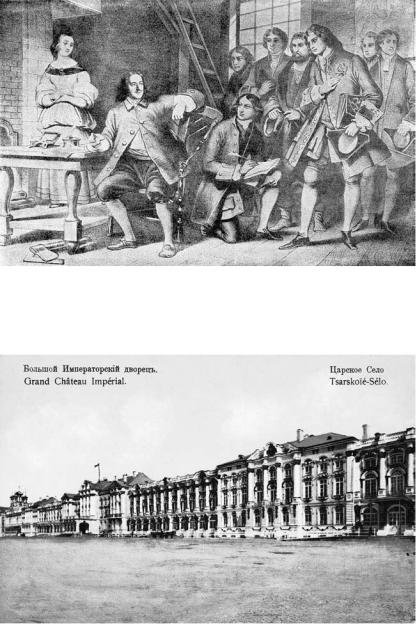
Figure 1. Imperial mythology: Peter the Great examines young Russians returning from study abroad.
Figure 2. Imperial grandeur: the Great Palace (Catherine Palace) at Tsarskoe Selo.
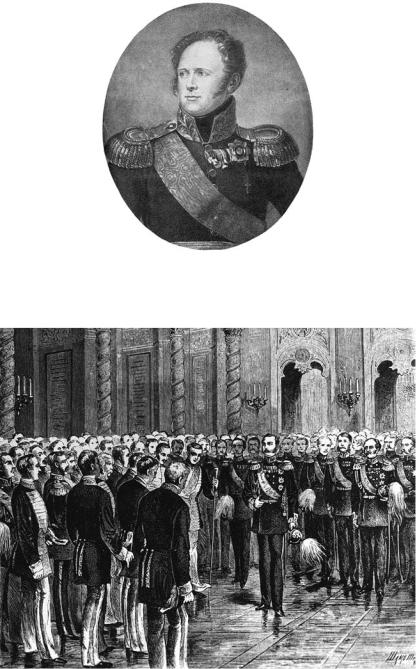
Figure 3. Alexander I: the victor over Napoleon.
Figure 4. Alexander II addresses the Moscow nobility on the emancipation of the serfs.
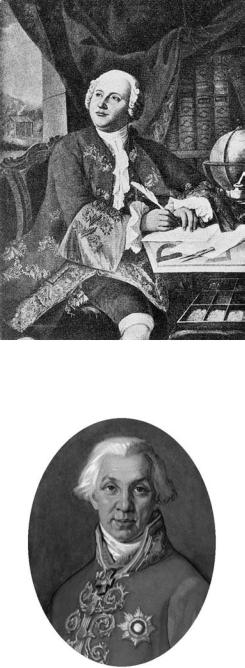
Figure 5. Mikhail Lomonosov: the grandfather of modern Russian culture.
Figure 6. Gavril Derzhavin; poet and minister.
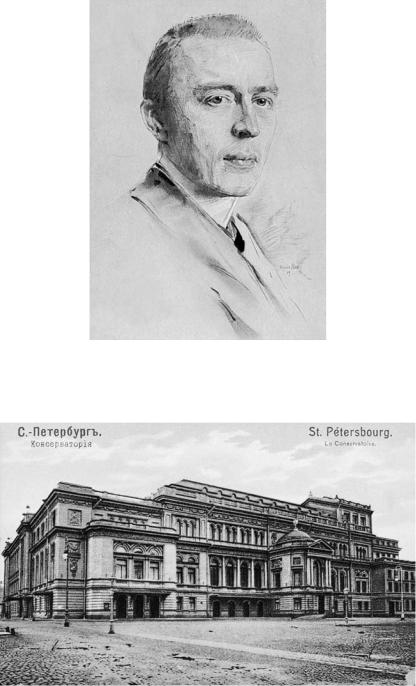
Figure 7. Sergi Rachmaninov: Russian music conquers the world.
Figure 8. The Conservatoire in St Petersburg.
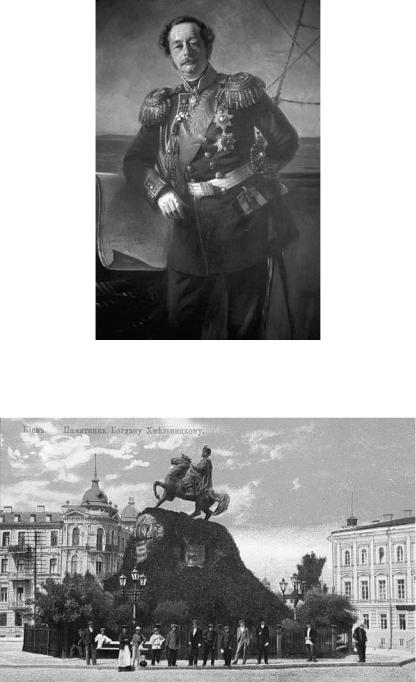
Figure 9. Count Muravev (Amurskii): imperial pro-consul.
Figure 10. Imperial statuary: the monument to Khmel’nitskii in Kiev.
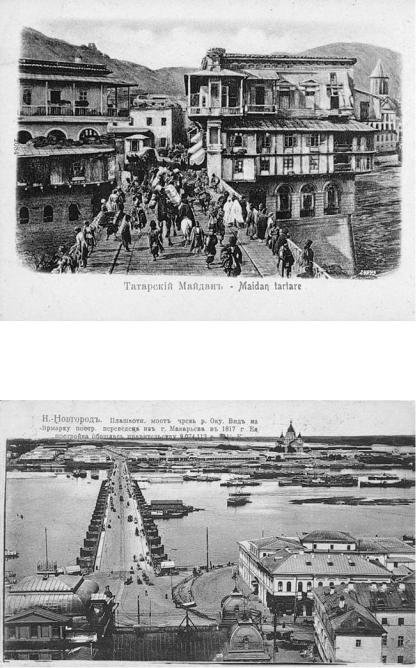
Figure 11. Tiflis: Russia in Asia?
Figure 12. Nizhnii Novgorod: a key centre of Russian commerce.
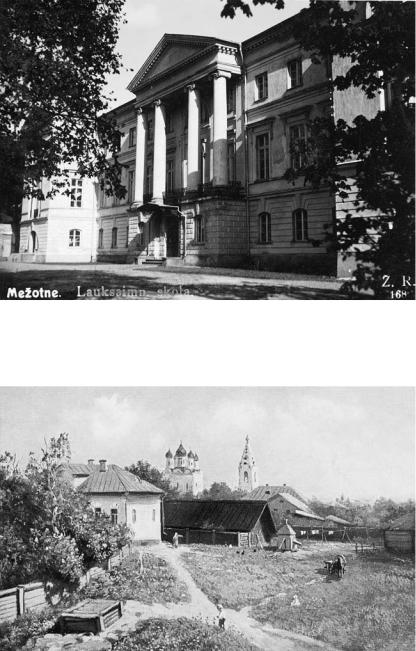
Figure 13. Rural life: an aristocratic country mansion.
Figure 14. Rural life: a central Russian village scene.
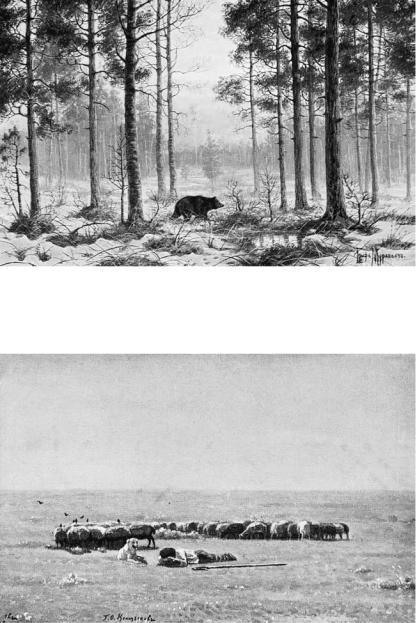
Figure 15. Rural life: the northern forest zone.
Figure 16. Rural life: the Steppe.
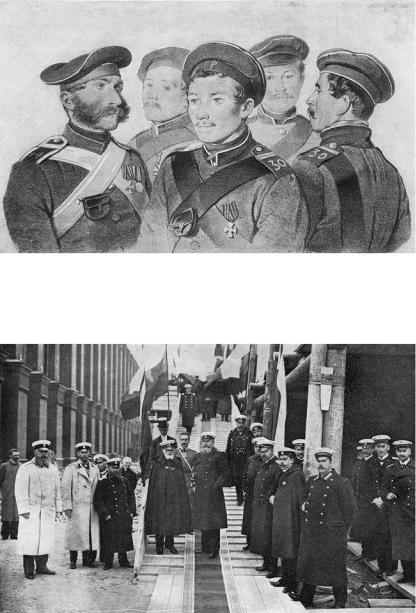
Figure 17. Naval ratings: the narod in uniform.
Figure 18. Sinews of power? Naval officers in the St Petersburg shipyards.
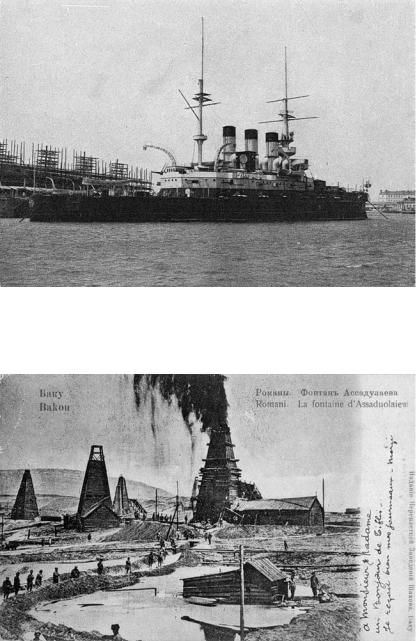
Figure 19. The battleship Potemkin fitting out.
Figure 20. Baku: the empire’s capital of oil and crime.
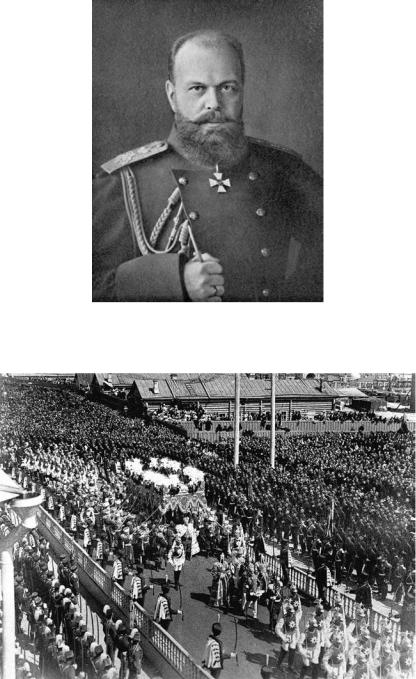
Figure 21. Alexander III: the monarchy turns ‘national’.
Figure 22. The coronation of Nicholas II.
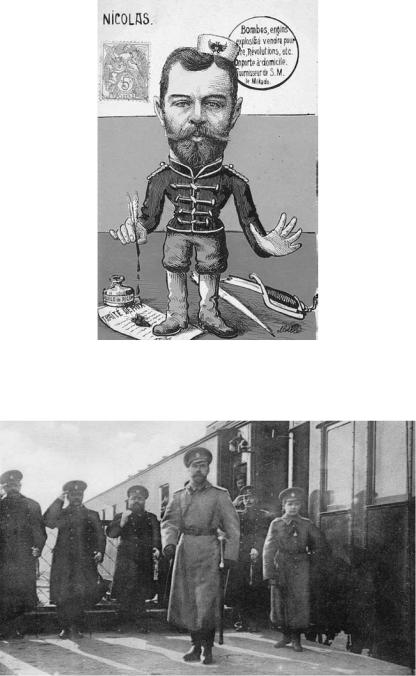
Figure 23. A different view of Russia’s last emperor.
Figure 24. Nicholas II during the First World War.
